SPRING 2024 UNIVERSITY OF MIAMI SCHOOL OF LAW
3rd in the Nation



Update your contact information and BE SURE YOU GET THE LATEST NEWS AND INFORMATION on Miami Law.

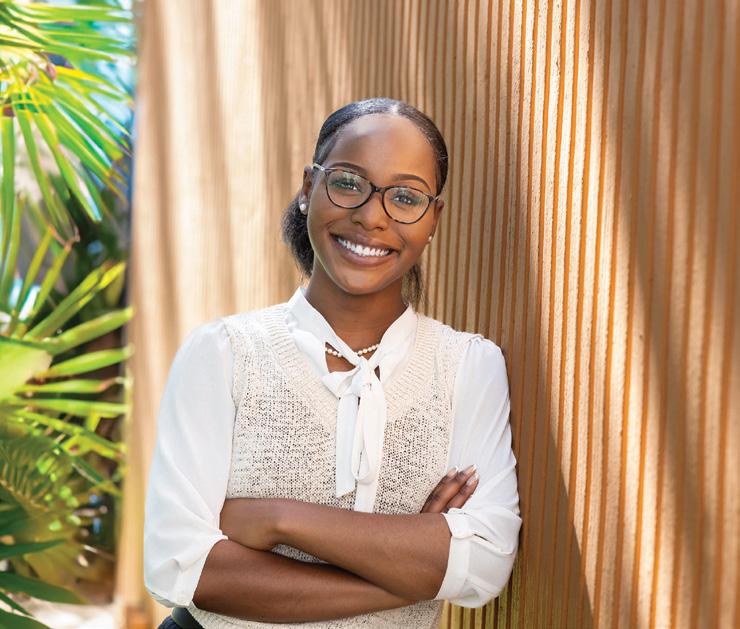
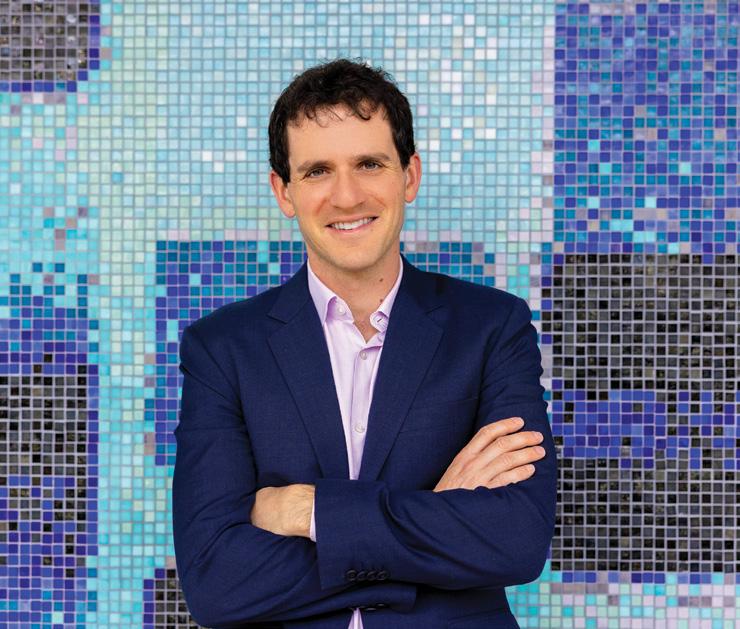
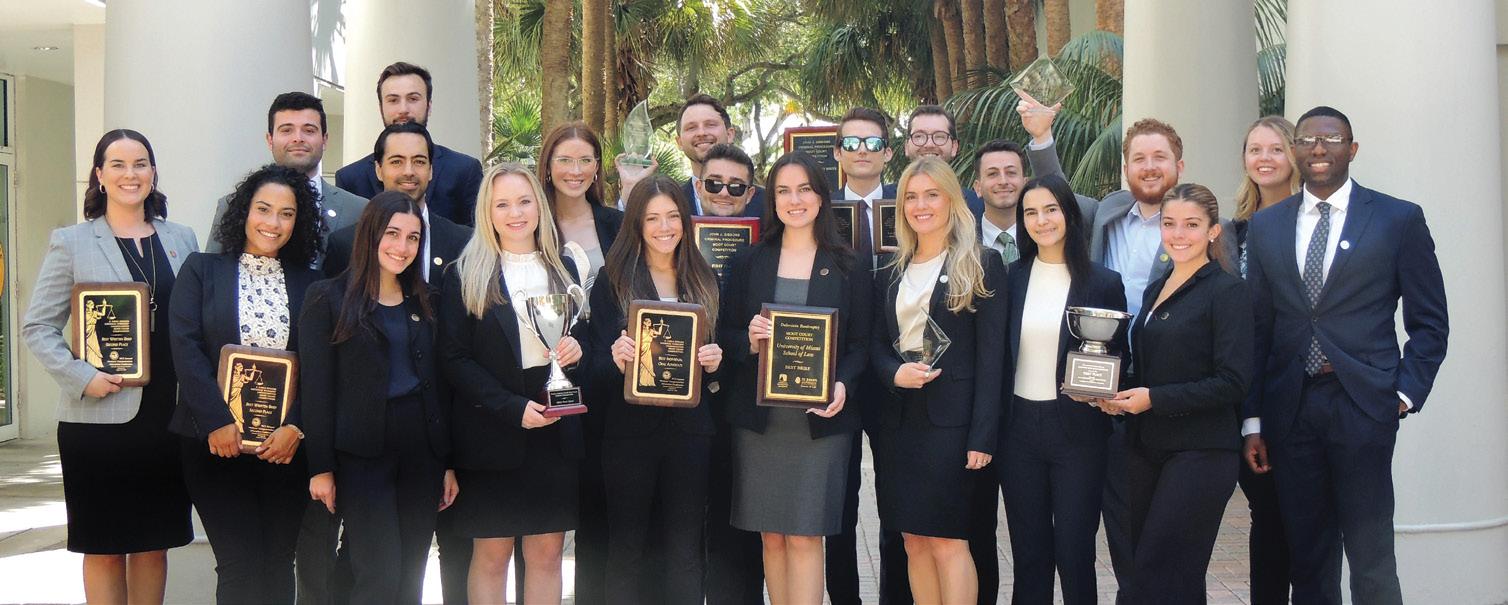
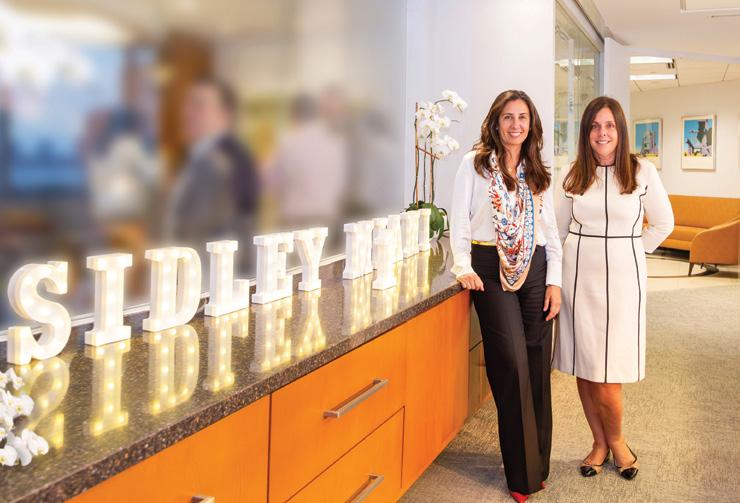
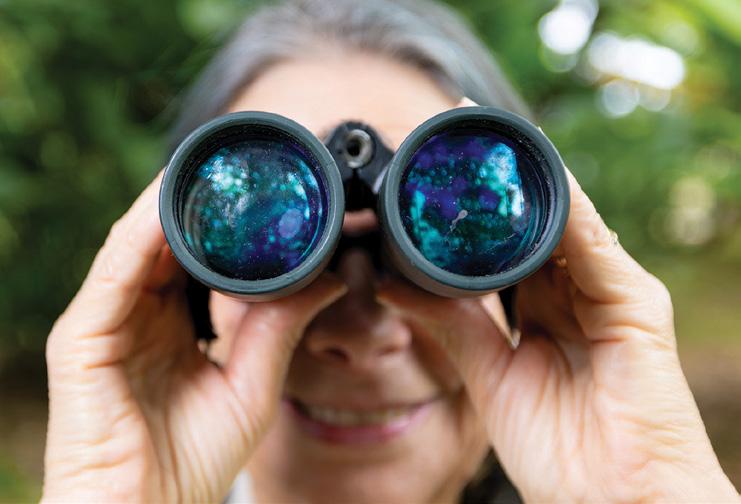
In 2023, U.S. News and World Report ranked Miami Law in the top 25 in clinical training and international law.
Experiential education is central to Miami Law’s mission of preparing students for modern legal practice. Miami Law’s clinical program consists of nine clinics, with 300+ students participating in direct client representation a year.
“Our trailblazing clinical program is hands down the best in the state and one of the best in the country. We have nine clinics taught by faculty who are experts in their fields and well-versed in clinical pedagogy,” said Rebecca Sharpless, associate dean for experiential learning, professor of law, and director of the Immigration Clinic.
With a 70-year history of engagement with international and comparative law and 20+ faculty members who teach or do scholarly research in the area, Miami Law also ranked #25 in international law.
With an extensive course catalog of 65+ international law-related courses and seven specialized graduate and concentration programs, the law school provides the intersectionality of today’s diverse areas of international law. The broad offerings enable students to address significant international law issues and practice and engage with global policy issues relating to human rights, climate change, migration, international arbitration, international business, trade, finance, law of the sea, health, and education.
Miami Law’s Entertainment, Arts, and Sports Law LL.M. program offered a seven-week intensive course in fall 2023 to focus on copyright, trademark, and business affairs through the lens of the singer-songwriter. Titled “Intellectual Property Law Through the Lens of Taylor Swift,” and taught by Vivek Jayaram, renowned intellectual property attorney and codirector of the LL.M.’s Arts Law track, the course discussed big topics through an assessment and analysis of Swift’s remarkable career.
“Taylor Swift is a musical and cultural phenomenon,” said Jayaram. “She has also built an empire with some of the most valuable IP in the music business. This course discussed some of the many IP issues the artist has encountered and navigated throughout her career.”
Rerecording of albums, thorny copyright disputes, privacy, the paparazzi, and contract dos and don’ts, Swift’s career is a veritable IP 101 for anyone interested in the creative world.
“One of the most exciting aspects of the EASL program is the agility of the leadership team in supporting the development and delivery of new courses that allow students to grapple with the most pressing issues facing these industries,” said Associate Dean Greg Levy, director of EASL.

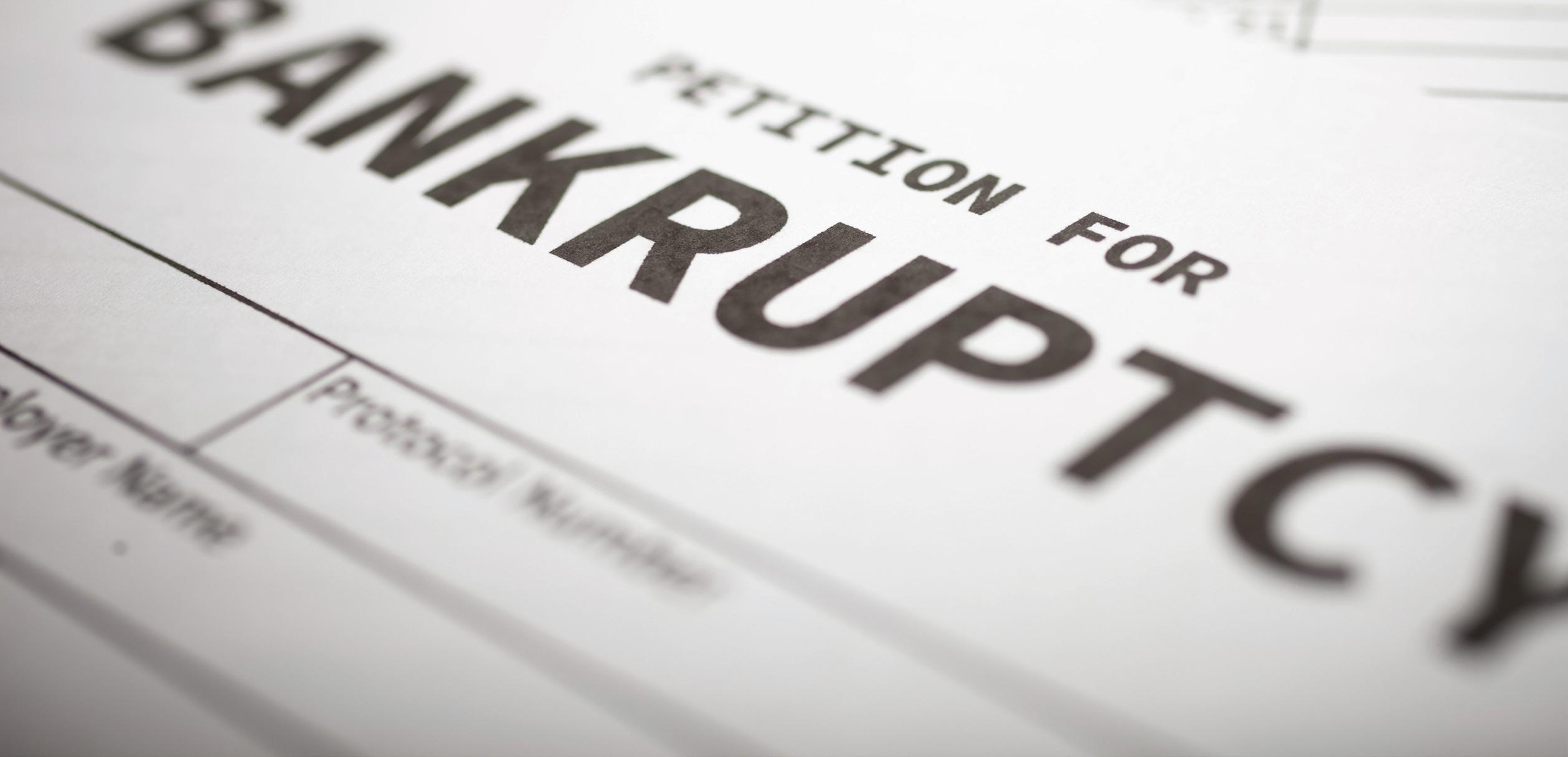
Since 1995, Miami Law’s Eleanor R. Cristol and Judge A. Jay Cristol Bankruptcy Pro Bono Assistance Clinic has allowed current students to deliver life-changing pro bono legal services to indigent clients throughout South Florida. Bankruptcy attorney Patricia “Trish” Redmond founded the clinic at the school, where she serves as its director and adjunct professor.
Bankruptcy cases are far from easy. A simple Chapter 7 can last up to six months, while a more complex Chapter 13 can take up to five years, which makes the case Redmond and her team completed all the more compelling.
“This case came to the clinic around 2010,” Redmond said. “Thirteen years’ worth of law students worked on this case.”
As Redmond explained, the debtor, a construction worker on dialysis, had lost his home in a Chapter 13 bankruptcy case. The only thing he had left was a little rental house in Homestead that his father had left him. Redmond said her team of law students went through several strategies but ultimately decided to initiate a Chapter 13 case. The case went through several years of mediation, which was unsuccessful, and Redmond’s team changed strategies.
“With Chapter 13, he had to pay it [mortgage] all off in five years,” Redmond said. “He couldn’t do that even at a minimal rate of interest. He could make payments over a longer term, and under Chapter 11 you could make payments over a longer term, so we filed that.”
As the team went from Chapter 13 to Chapter 11, and the years went on, Redmond says the debtor’s health began to deteriorate. When the team transitioned to Chapter 11, the debtor finally succumbed to his health issues and passed away. Then, the bankruptcy case needed a probate attorney to handle the late debtor’s estate.
Enter Jerry Markowitz, founding shareholder of Markowitz Ringel Trusty + Hartog. Markowitz concentrates his practice on creditor and debtor rights. His firm is no stranger to pro bono work, having won the Florida Supreme Court’s 2002 Law Firm Commendation Pro Bono Service Award.
“When the debtor died…the bankruptcy case was a ship without a rudder,” Markowitz said.
Markowitz said his law partners Lian De La Riva and Carly Weiss appeared before the probate court to ask if the debtor’s son could be named personal representative over the father’s probate estate, with the understanding that the bankruptcy court would deal with paying the creditors.
As the case moved to Chapter 11, Redmond said her law students learned the lessons of the Chapter 13 failure.
“As we worked through stuff, we got smarter about the process and smarter about mediation,” Redmond said. “We knew that mortgage companies were very respectful of what a judge says. In our second mediation, rather than going with a private mediator, we went with one of the bankruptcy judges.”
The bankruptcy judge in question was Judge Paul G. Hyman, Jr.
During Hyman’s mediation, Redmond says they agreed with the mortgage company on the property’s value and to pay that amount and sell the property to the debtor’s son so that he could pay off the mortgage based on the home’s actual value.
“Ultimately, the bankruptcy case continued, the property was going to be sold, and the son could sell it,” Markowitz said.
During the settlement, Redmond said that her former students who worked on the case returned to help.
“A lot of the students who are practicing now from all over the United States called into the Zoom hearing,” Redmond said. “It was an awesome result.”
Markowitz, who is also Redmond’s husband of 38 years, acknowledged his firm’s role in the case but said, “I was just the tail wagging the dog; 95% of the work was by Tricia and her students.”
Redmond says 13 years’ worth of students received a wealth of training during the case.
“They learned so much on it,” Redmond said. “For example, they cross-examined an appraiser and got experience doing evidentiary hearings in bankruptcy court while they were still students. I think everybody who worked on this case was committed to it because the client was such a good guy.”
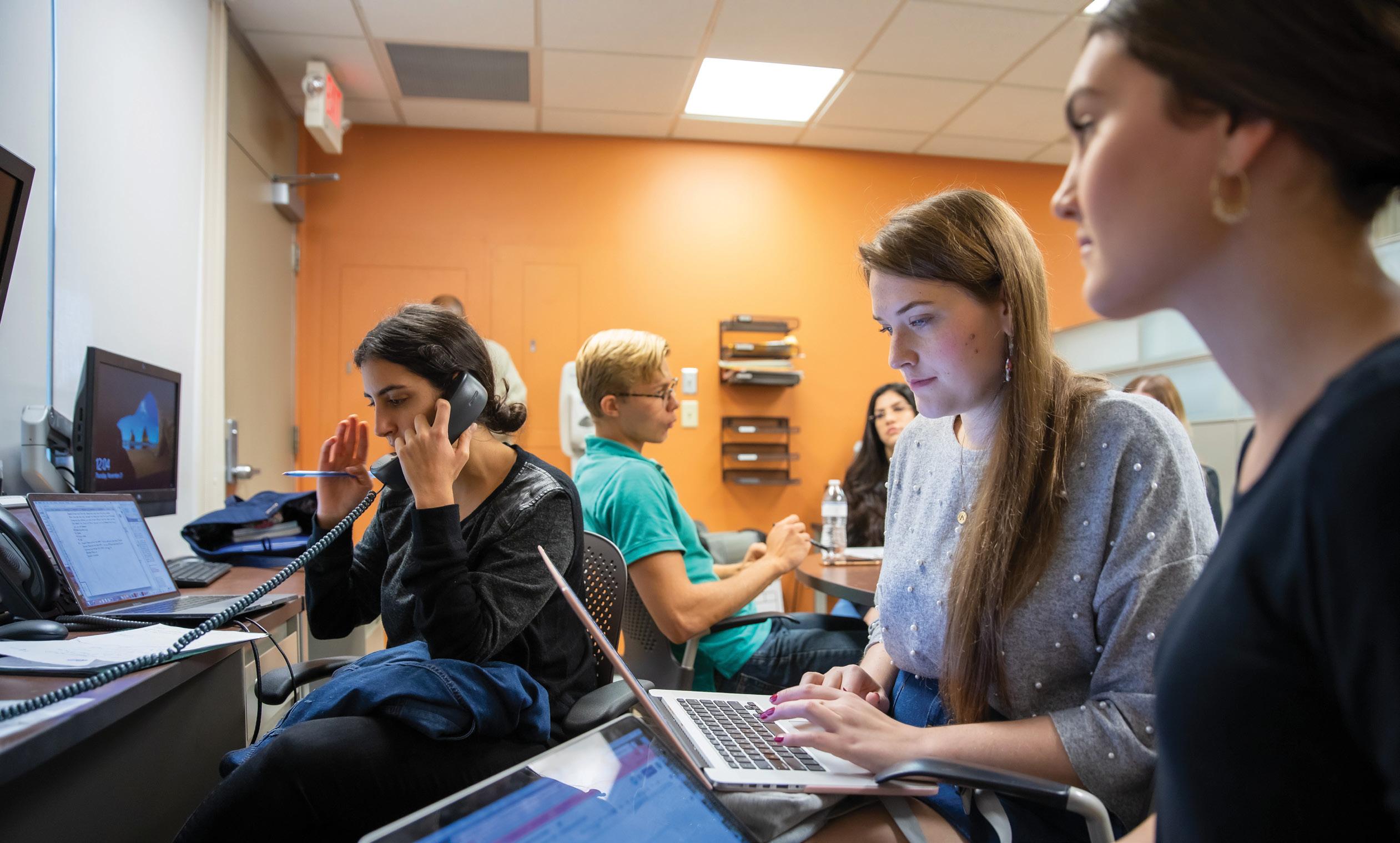
Immigration Clinic students won protection from deportation for a Somali-American client who had been fighting his case for more than 20 years.
Second-year law student Andy Co and 3L Gianna Balli, under the supervision of Acting Associate Director Rachel Maremont, spent hundreds of hours preparing all aspects of the case. They then litigated a four-hour contested hearing conducted via Webex in front of the Miami Immigration Court.
“The Immigration Clinic drew me to Miami Law, and the opportunity to have hands-on litigation experiences applying immigration law concepts is incredible,” said Co. “Advocating for our client was one of the most rewarding experiences of my life and one I will never forget.”
The clinic’s client is an outspoken radio host and reporter. On his radio show, he openly criticized Al-Shabaab, the powerful terrorist group linked to Al-Qaeda that has controlled much of Somalia for two decades. In response to his reporting, Al-Shabaab made death threats against him, stalked him, and targeted his family in Somalia.
Along with 91 other Somalis, the clinic’s client was subject to inhumane and shocking conditions aboard an Immigration and Customs Enforcement failed deportation flight to Somalia in 2017. The clinic’s advocacy following the flight allowed the client to reopen his immigration case and seek previously denied relief.
With the court’s favorable decision, the clinic’s client will be protected from deportation and can safely live and work in the United States.
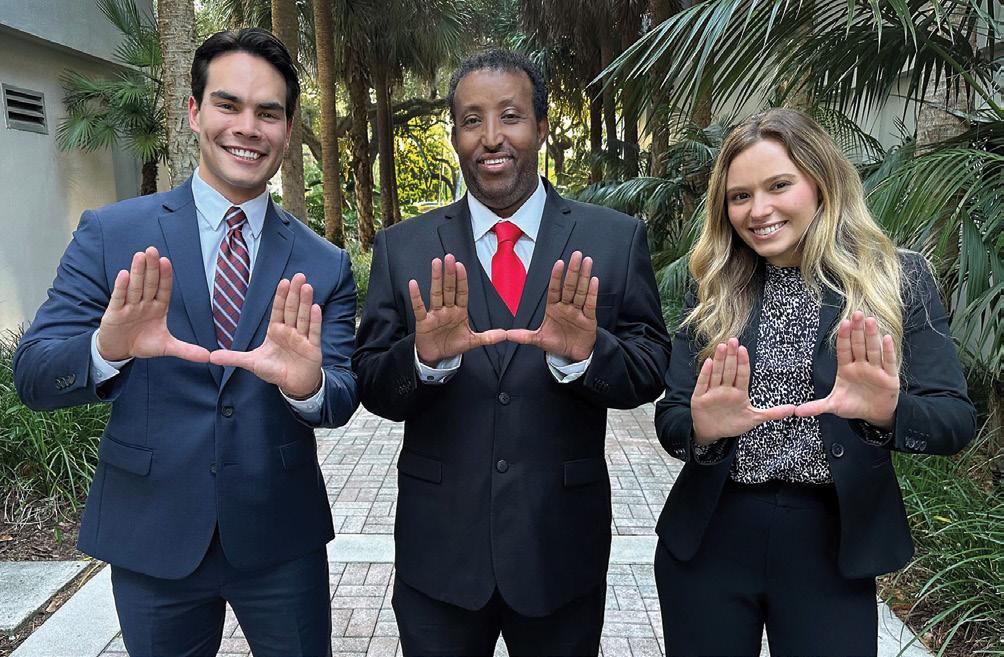
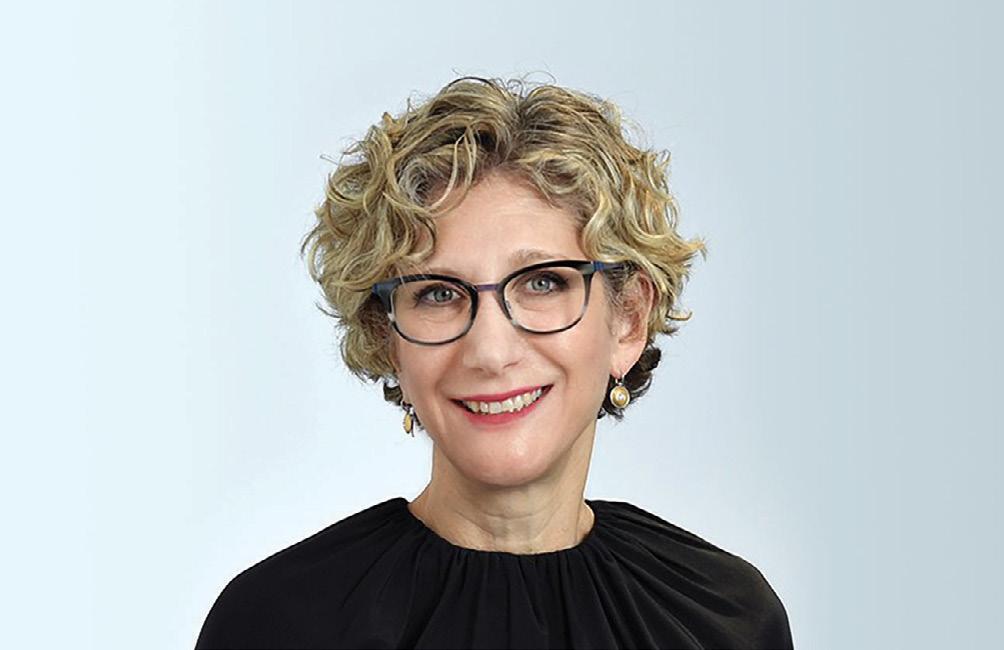
The prestigious White & Case International Arbitration lecture series hosted two prominent individuals in fall 2023. Meg Kinnear, the secretary-general of the International Centre for Settlement of Investment Disputes, and Claudia Salomon, president of the International Chamber of Commerce International Court of Arbitration, spoke at the annual lectures.
The lecture series began when the global law firm White & Case LLP, in 2014, committed to supporting the continued excellence and impact of the International Arbitration Institute at the University of Miami School of Law. That gift also provided essential resources for developing the LL.M. degree program, an endowed scholarship, and an annual lecture series to bring leading scholars and practitioners in international arbitration worldwide to campus.
Kinnear’s lecture examined the origins of investment protection, highlighted recent reforms to investor-state dispute settlement procedure, addressed some of the misunderstandings about the topic, and discussed some of the challenges ahead. It also considered the role of ISDS in attracting and retaining foreign direct investment as governments seek to establish policy, legal, and institutional environments conducive to mobilizing private capital.
On the occasion of the Centenary of the I.C.C. International Court of Arbitration, Salomon discussed the characteristics of arbitral awards in the early days of the court, the most common issues that arise during the court’s scrutiny of awards, and how arbitral awards may be drafted in the future.
The University of Miami School of Law and Investor Rights Clinic Director Scott Eichhorn were honored at the Florida Legal Awards.
Eichhorn was honored with the Unsung Hero Award because of his work this last year helping vulnerable investors and advocating to improve the rules governing brokers/dealers. Through his work in the clinic, Eichhorn represents vulnerable investors defrauded by their broker/dealers in securities arbitration and mediation cases before the Financial Industry Regulatory Authority.
The Investor Rights Clinic is the only securities arbitration clinic in Florida providing free assistance to small claim investors.
Miami Law was also honored with an Environmental, Social, and Governance Impact Award. The category recognizes organizations demonstrating social responsibility through client-focused efforts, pro bono work, charitable drives, special projects, or other avenues. The award was primarily based on Professor Tamar Ezer’s work with the Human Rights Clinic seeking justice on housing and maternal health.
“These awards recognize Miami Law’s deep commitment to making the world a better place,” said Rebecca Sharpless, associate dean for experiential learning. “Professor Eichhorn’s work helping vulnerable investors helps to correct the power imbalance between small-time investors and their brokers. The E.S.G. award honors the nationally recognized work of our law clinics, particularly in the areas of human rights and criminal justice.”


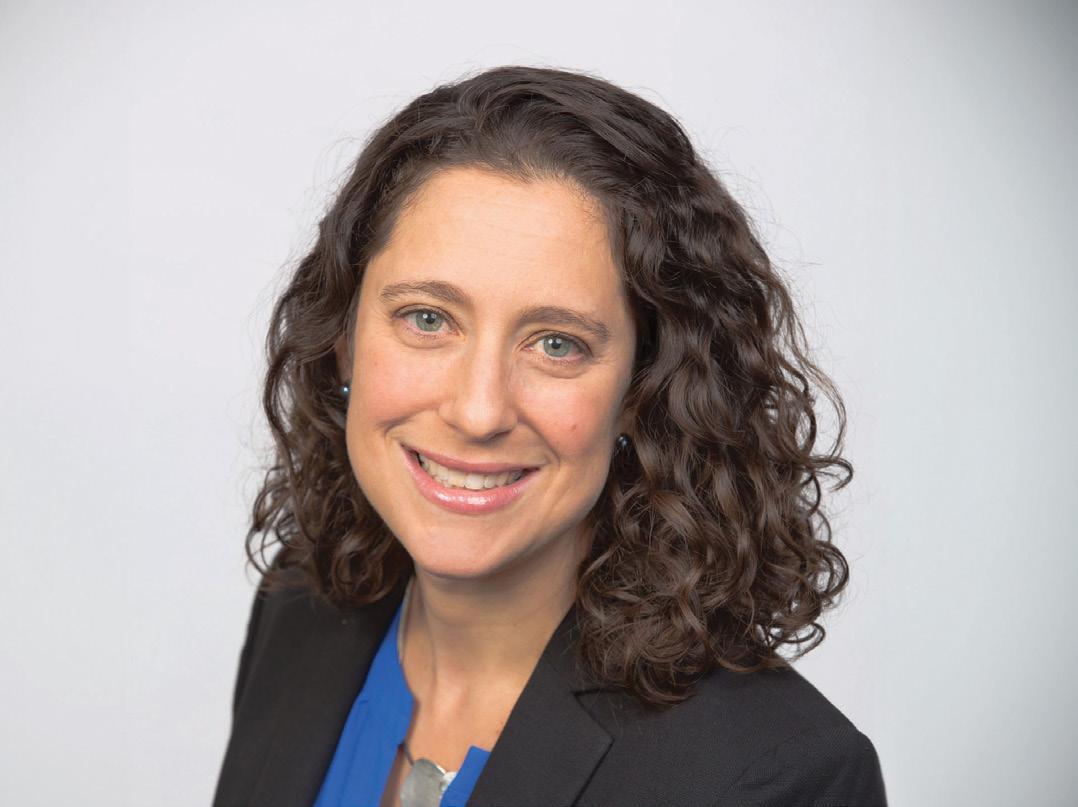
In 2021, the Biden Administration named Professor Caroline Bettinger-López as senior advisor to the Gender Policy Council, charging her with assisting in developing a National Action Plan to End Gender-Based Violence in the United States.
In May 2023, the White House Gender Policy Council released the National Plan to End Gender-Based Violence: Strategies for Action. This first-ever national plan advances an unprecedented and comprehensive approach to preventing and addressing sexual violence, intimate partner violence, stalking, and other forms of gender-based violence.
Bettinger-López is the founder and director of Miami Law’s Human Rights Clinic. She is on leave while serving as a senior advisor on Gender and Equality at the U.S. Department of Justice. Bettinger-López’s scholarship, practice, and teaching concerns international human rights law and policy advocacy, violence against women, gender and race discrimination, immigrants’ rights, and clinical legal education.

Miami Law’s incoming 2023 class was stronger than ever, as the most diverse and highest credentialed in the law school’s history. The incoming class began their law school journey with students arriving from 35 states, 118 institutions, and 24 countries around the globe.
Miami Law received 4,194 applications for the 1L class and an additional 99 transfer applications—a testament to Miami Law’s appeal. This resulted in welcoming over 450 new students as part of the J.D. program, LL.M. programs, and the S.J.D. program in early August.
Miami Law enrolled a talented student body representing a broad range of experiences. Fifty-five percent of the incoming class identified as students of color—close to 200 future lawyers. In addition, 74% of the class are first-generation law students, while 15% are first-generation college students. In addition, 65% speak one or more foreign languages. These numbers genuinely reflect Miami Law’s commitment to access and opportunity.
From climate change to indictments galore to the crisis at the Darién Gap, Miami Law faculty chimed in on all the legal news of the day.
The Miami Law Explainer, a legal podcast that educates its listeners on everything from the basics of the legal system to complex legal issues, dropped its 150th episode, marking the end of Season 11. The show has gained a large following over the years, thanks to its informative and engaging content, with more than 49,000 downloads from listeners as far away as Japan and Germany since its unveiling in 2018.

“Podcasts are a great modern means of communicating ideas but they tend to come and go fairly quickly,” said David Yellen, former dean and M. Minnette Massey Professor of Law. “It is fabulous that our Miami Law Explainer has now reached 150 episodes of important, interesting content.”

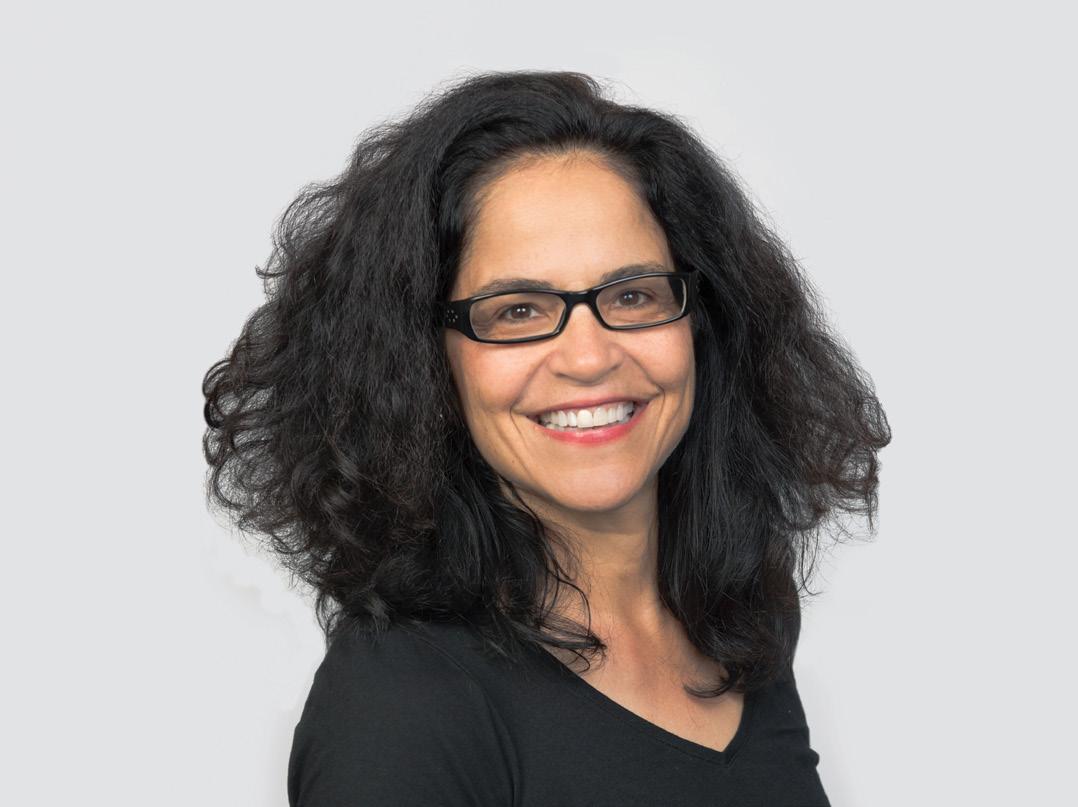
Elizabeth M. Iglesias, professor of law, has taken over as director of the law school’s Doctor of Juridical Science program. The S.J.D. program is an advanced research degree program designed for aspiring legal academics, members of the judiciary, and public policymakers.
Under the guidance of expert faculty, students in the program develop, research, and complete a scholarly dissertation that constitutes an outstanding contribution to legal scholarship.
Iglesias co-founded Latina and Latino Critical Theory, Inc., which she incorporated in 1998 and co-directed until 2003. In 1997, she designed the Project for Legal Economic, Development, Justice, and Equality, an innovative clinical program to promote micro-business development, immigrant rights, and the use of NAFTA labor and environmental side accords through workshops, community-based study circles, and outreach to underprivileged high school students. The PLEDJE project became the blueprint for and continues today as incorporated by the law school’s Center for Ethics and Public Service.
Professor of Law Emeritus and Dean’s Distinguished Scholar for the Profession Emeritus Elliott Manning died in September 2023 at 88. Second in his Harvard law class, published scholar, keen legal mind, educator, and lover of Hawaiian shirts and country music, Manning was many things to legions.
“All of us who had the privilege of being Professor Manning’s colleagues have a profound sense of loss and a deep sense of gratitude for his many contributions to tax teaching and tax scholarship at Miami Law,” said Frances Hill, professor of law and Dean’s Distinguished Scholar for the Profession. “He built the Graduate Tax Program into a position of national prominence. He worked with students who found in his classes their life’s work as leading tax lawyers.”
Before joining the University of Miami School of Law faculty in 1980, Manning was a senior partner in the New York firm of Cleary, Gottlieb, Steen & Hamilton LLP and had yet to consider an academic career. “But I took a sabbatical and taught for a semester at Stanford University,” he said in a 2014 interview. “I found I liked teaching, and when the University of Miami needed someone to run the Graduate Program in Taxation, my wife and I came here.”
At the University of Miami, Manning was the former director of the Graduate Program in Taxation and the Graduate Program in Real Property Development (now Robert Traurig-Greenberg Traurig LL.M. in Real
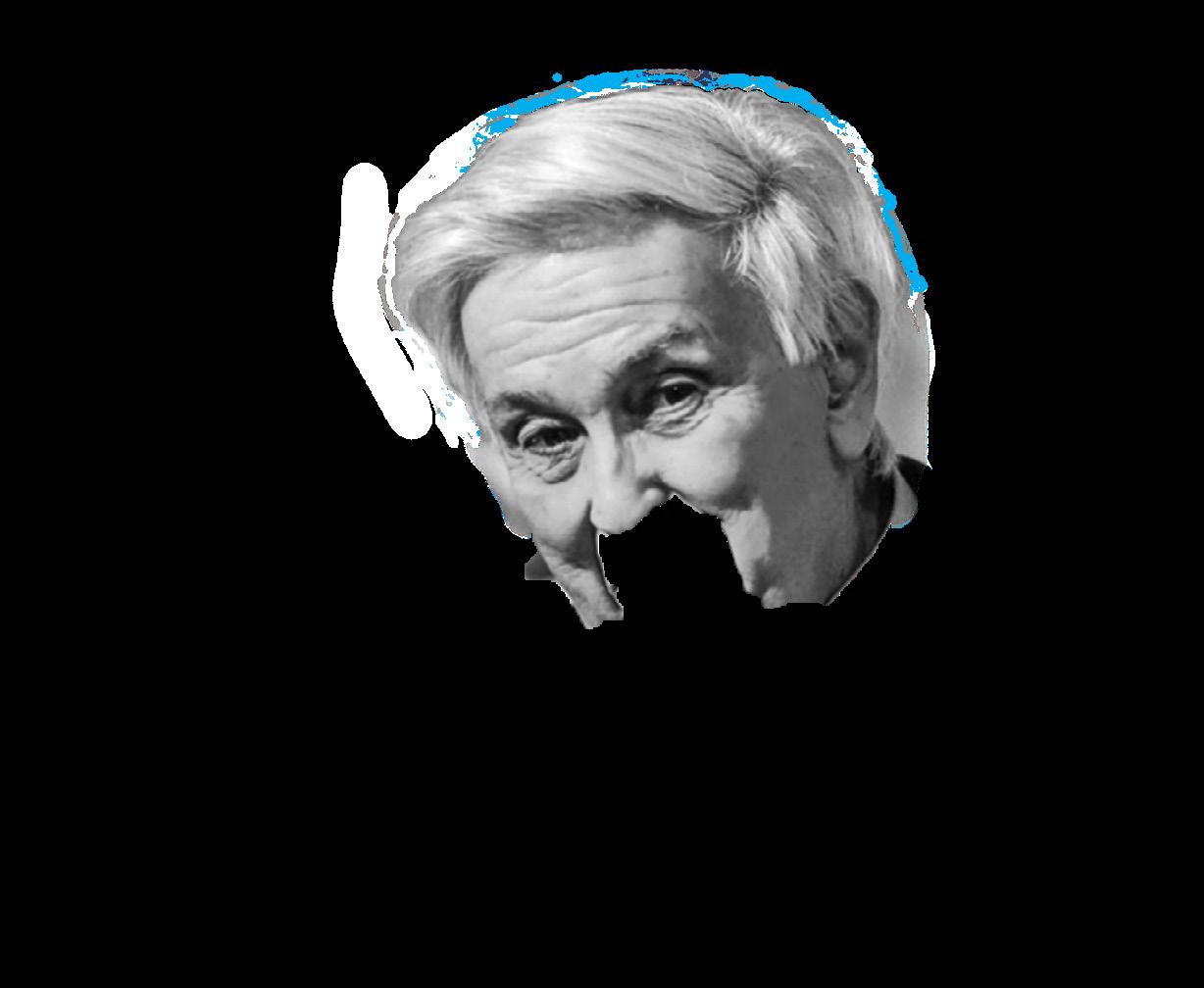
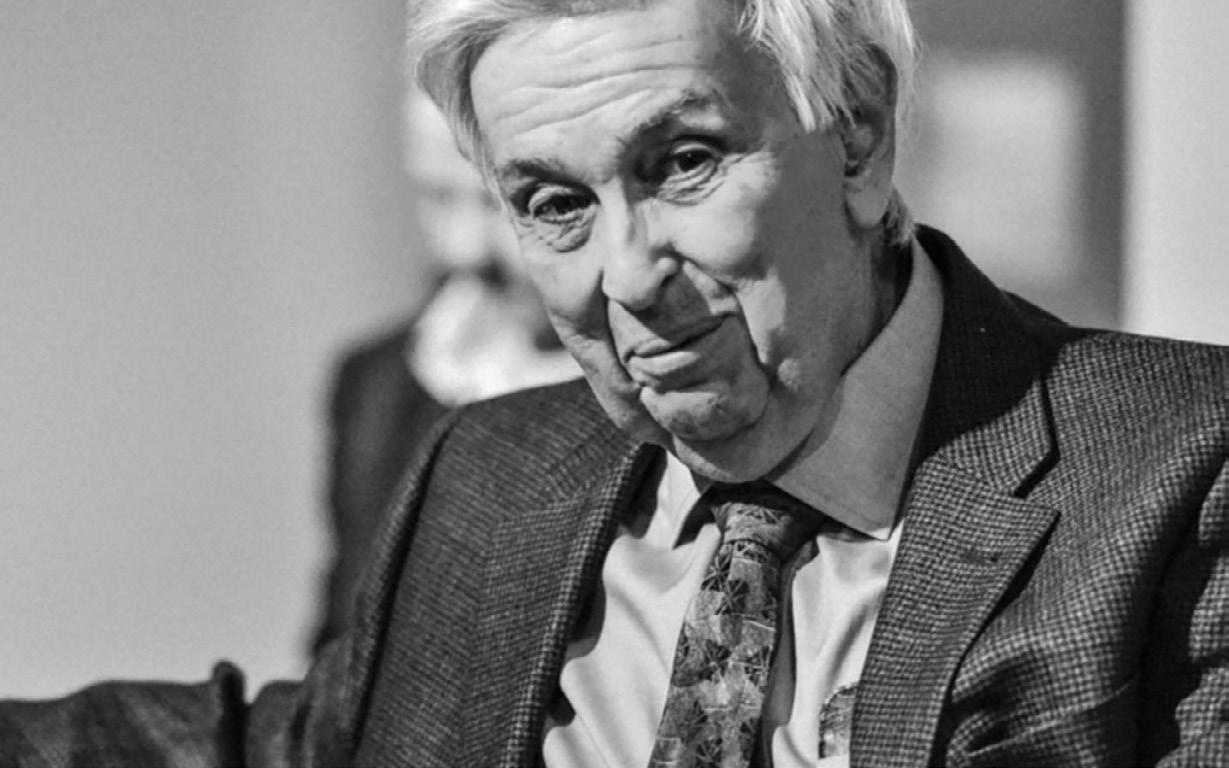 /// Professor Elizabeth Iglesias
Photo by Jenny Abreu
/// Professor Elizabeth Iglesias
Photo by Jenny Abreu
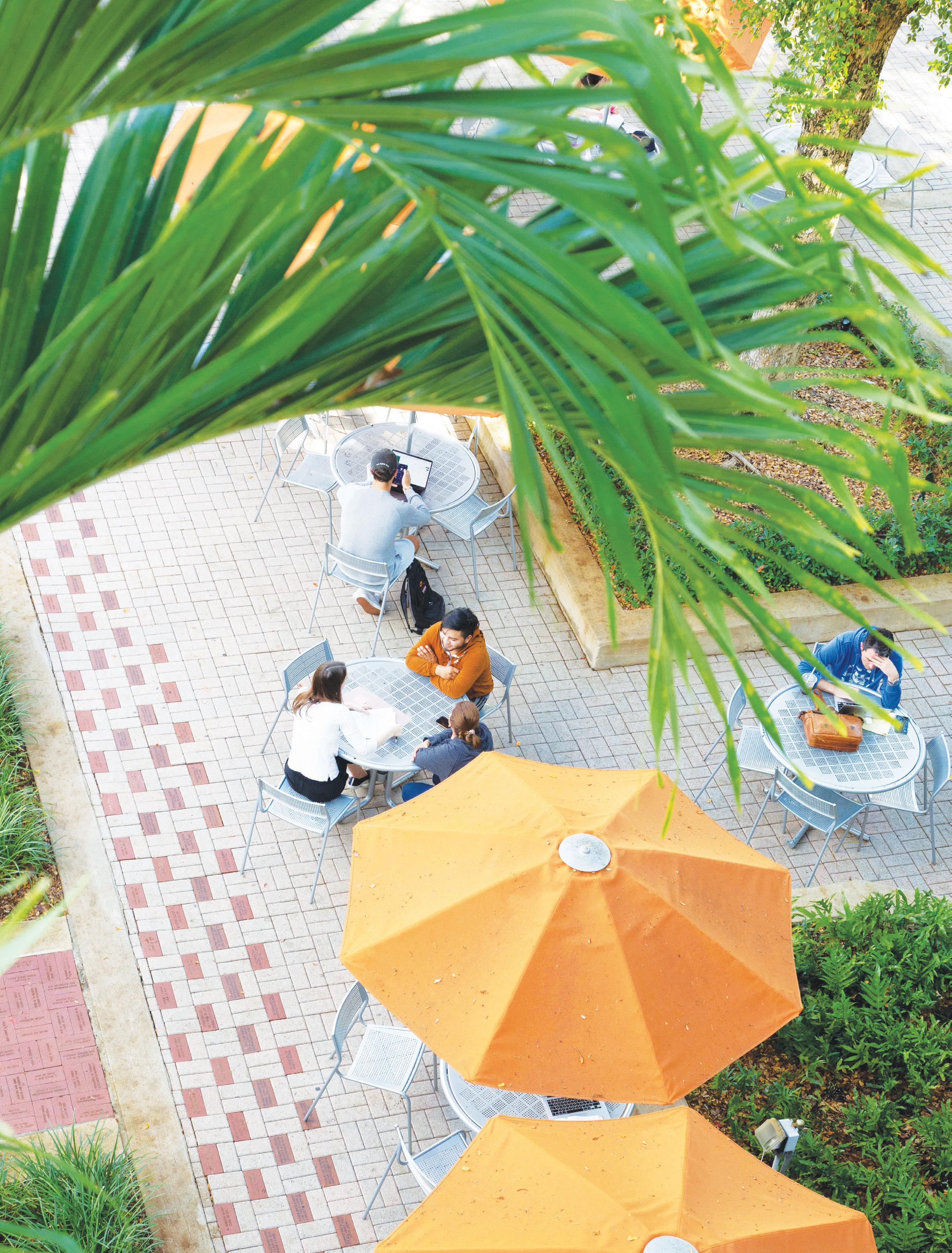 Photo by Joshua Prezant
Photo by Joshua Prezant
Not only can these four walk and chew gum, but they probably could also juggle cats and solve the traveling salesman conundrum in their head simultaneously.
These joint degree law students have accomplished impressive feats, demonstrating their dedication to their legal studies and chosen fields. With a diverse range of backgrounds and interests, they have each made significant contributions in their respective areas of expertise. From groundbreaking research to advocacy work, these individuals have proven exceptional leaders in their fields.
Jordan Brooks, Randy Fitzgerald, Gabriella Kayal, and Delaney Reynolds are pursuing multiple advanced degrees and interests across the schools and colleges of the University of Miami in medicine, business, history, and science.
J.D./M.D.
JORDAN BROOKS, A 32-YEAROLD FROM RURAL MOUNT
VERNON, OHIO, is set to graduate in May with a J.D. and M.D. from the Miller School of Medicine. Growing up, Brooks witnessed firsthand the adverse impact the lack of health care access can cause and vowed to join the fight to fix it.
“Rural towns have a lot of health disparities compared to cities,” he said. “And being Black can worsen those disparities. Watching my parents, who had chronic diseases, struggle to get the appropriate specialist care they needed for their conditions was very difficult.
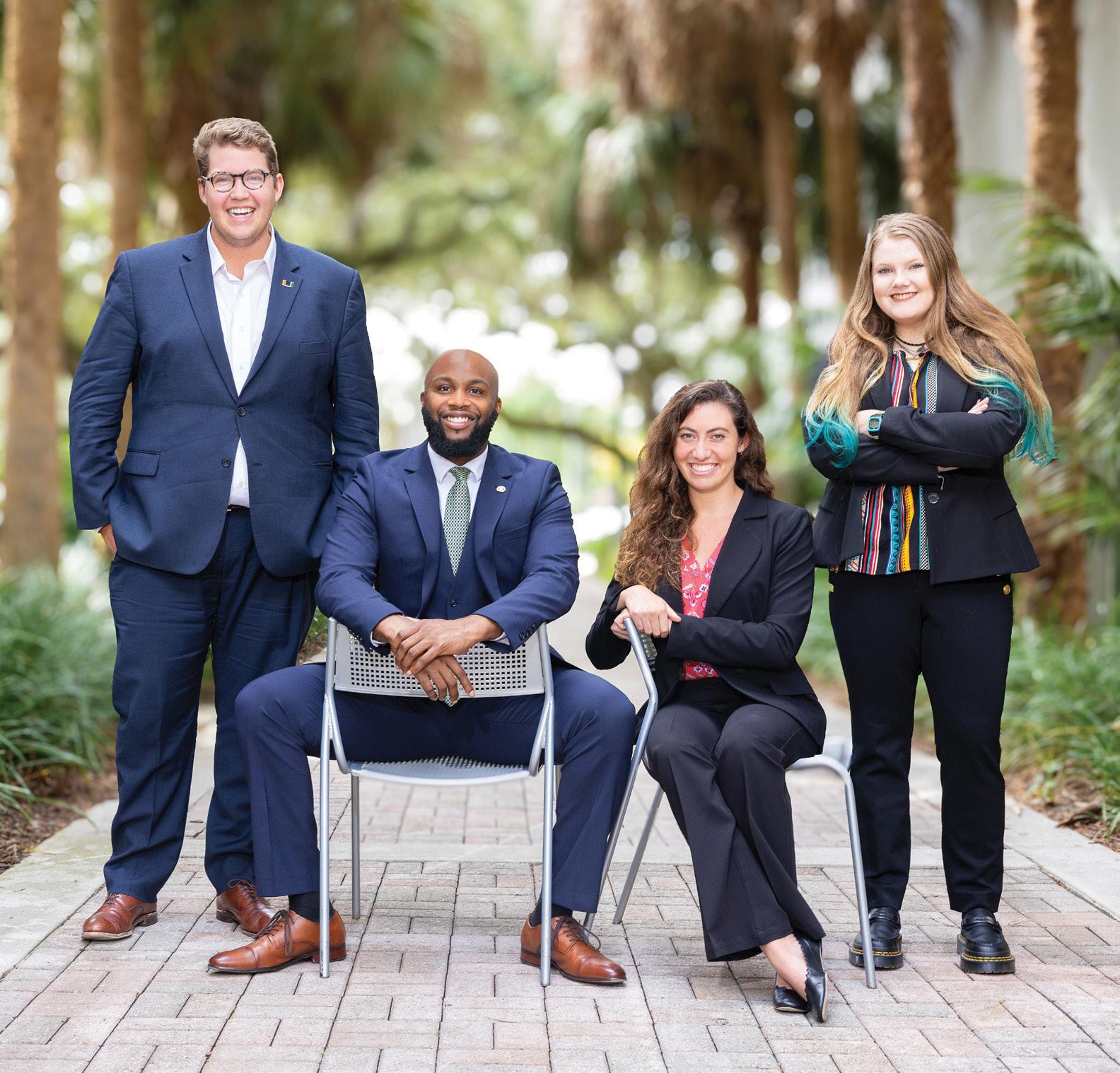
“They had to drive an hour and a half for care and many times to visit medical specialists who often did not have the means of curing their health issues. Watching their struggles and the struggles of many families while working at the University of Pittsburgh Medical Center definitely made me want to really understand how to improve the health care system for families like our own.”
Even in high school, Brooks thought a lot about positively influencing the
world. He went to nearby Kenyon College to be close to home to his family after his mother passed and to prepare himself for law school. He earned a degree in neuroscience, an interest that, in part, grew from her Multiple Sclerosis diagnosis.
“I had never really understood what the nervous system was,” he said, “And I was blown away when I learned of the incredible things that it does. That’s what made me want to go to med school. Then I did a Master of Public
Health at the University of Pittsburgh, and then I wanted to do both,” he said.
Brooks said that learning about all the social determinants of health outcomes and how businesses significantly influence health care delivery has steered his educational path.
“Ultimately, health care delivery is largely dictated by laws that regulate health care entities and public health by policies that aren’t traditionally associated with health care, like access to food, housing, and transportation,” he said. “So, understanding public health and health law has revolutionized my understanding of medicine and paved the way for me to serve as a bridge between health care providers, attorneys, and administration in the health management and policy space.”
Brooks hopes to use this understanding to help the most marginalized populations attain health equity at the national and international levels. Upon graduating, Brooks will start his career at Boston Consulting Group, focusing on health care, life science, and social impact management consulting.
At Miami Law, the 3L is finishing a paper with Professor Gabriel Scheffler on harmonizing the regulation of and integration of traditional, complementary, and alternative medicine. Brooks is a Steven Chaykin Fellow for the Health Equity Project at the Center for Ethics and Public Service, where he is helping to embed health equity into their affordable housing initiatives. He is also a fellow at the Human Rights Clinic, where he has played a leading role in the clinic’s work on maternal and infant health. Brooks has worked with his Human Rights Clinic colleagues this spring on a town hall for Miami-Dade County for
the U.N. Permanent Forum on People of African Descent.
J.D./M.A. AND J.D./LL.M.
RANDY FITZGERALD IS A FORCE OF NATURE, with a resume as impressive as his 6’3” stature and collection of bow ties. The third-year law student, with a concentration in litigation and dispute resolution, will also add a master’s in Latin American studies, building off his B.A. from the University of Miami, with four majors: economics, history, international studies, and political science. He even attended a joint summer program with the University of Oxford, where he studied political behavior surrounding Brexit. He is following up with a Tax LL.M. as he finishes his graduate thesis on Argentine judicial independence. “I saw the jointdegree program as a feasible opportunity to refine my Spanish language skills and enhance my competency for the needs of future clients.”
It seems contradictory that, from a young age, he was all about science. “I was accepted to the dual B.S./M.D. program with Miller Medicine and started undergrad here in an invited honors cohort for STEM research.” But he grew jealous of those around him studying social sciences and gave in to the feelings. “Medical school was always my goal; I would’ve been the first doctor in my family. Instead, I’ll be the first lawyer in my family.”
At Miami Law, Fitzgerald has been the Student Senate speaker, an admissions ambassador, and a member of the St. Thomas More Catholic Legal Society and OUTLaw, the LGBTQ+ student organization. He’s the very collaborative chapter president of the Federalist Society, where he co-hosts events with progressive student
organizations like Environmental Law and American Constitution Societies. “We create spaces for ’Canes to respectfully engage with different perspectives. We must be able to disagree while remembering our common humanity. It starts with listening; there’s more that unites than divides us,” he said.
Never wasting an opportunity, Fitzgerald, an Eagle Scout, has worked or interned in all three branches of the federal government, including in Washington, D.C., for Rep. María Salazar and the White House in the Executive Office of the President, and Miami’s federal and appellate judiciaries. He gained private sector exposure as a summer associate assisting with federal appeals at the maritime boutique firm Horr, Skipp & Perez. He was a civil rights fellow at the Center for Equal Opportunity, a D.C. think tank.
After finishing school, Fitzgerald plans to complete a judicial clerkship before entering the private sector to assist the legal needs of multinational businesses navigating the hemisphere’s markets. “All these work experiences were possible thanks to the amazing alumni network of the U. This school has changed the trajectory of my life for good,” he said.
GABRIELLA KAYAL HAS ’CANES LEGACY FOR MILES. Among her family are 17 University of Miami grads holding 23 degrees, including her mother, a triple ’Cane, eight months pregnant with Gabriella when taking the Florida Bar Exam. Kayal is proud to be part of her multicultural Miami family, where her mother is Cuban American, and her father is Lebanese/ Syrian American.
The 26-year-old is cutting her own trail through higher education and is scheduled to complete her joint J.D./M.B.A. Program in May 2024. Her focus on law and business is thoughtful and steeped in her personal interests and family legacy.
Kayal’s family owns a successful third-generation retail business; her parents are University of Miamieducated attorneys. “My undergraduate majors were Spanish and philosophy, with a minor in exercise physiology,” said Kayal. “So, even though I had no formal business education background, I grew up seeing and participating in almost every aspect of our family business. I decided that I would like to have a better understanding from an academic perspective to help me interact with business professionals in various environments.”
She spent her 2023 summer as a summer associate in New York at Paul Hastings LLP, a prestigious global law firm representing some of the world’s most successful and influential organizations and individuals.
“I wanted the experience of a traditional law student in Big Law for my 2L summer. I love Miami, so New York was not initially on my radar, but the opportunity to spend time in that professional environment was too important to pass up,” said Kayal.
“I loved it. I went in with an open mind and I loved it. I loved the city, the energy, and the firm itself was amazing, filled with so many smart, friendly, well-rounded people. I could envision that the environment will help me be the best version of myself,” she said.
Kayal accepted a full-time position at Paul Hastings and will start in October 2024.
While at Miami Law and the
Miami Herbert Business School, Kayal participated in the De Paul University College of Law Madrid Summer Program, where she completed courses in European business and commercial law and European human rights law held at Universidad Pontificia Comillas. She was also a research assistant at Miami Law’s Center for Ethics and Public Service, where she worked on a redistricting effort for the West Coconut Grove Community, and was a team leader at the University's Global Business Consulting program.
Kayal is excited for the future, and thankful and appreciative to the University of Miami for helping build her foundation.
“Go ’Canes!”
J.D./PH.D.
DELANEY REYNOLDS STARTED OUT AS A CHILDREN’S BOOK WRITER. A 10-YEAR-OLD CHILDREN’S BOOK WRITER.
She grew up between homes in Miami and the Florida Keys and drew inspiration from her love affair with the ocean and nature.
“We were constantly fishing, snorkeling, diving, you name it,” she said, “and in between elementary and middle school, I wrote some books about ecology topics based on the Florida Keys. That is how I learned about climate change.”
Today, the joint J.D./Ph.D. student from the Abess Center for Ecosystem Science and Policy runs her personal nonprofit, Sink or Swim, to engage the generations who will inherit sea level rise and work together to solve it. She has given a TED talk, addressed the General Assembly of the United Nations, and has written laws that have been implemented.
Reynolds realized early on that she needed to learn about climate change in her primary school education. “I am thinking, ‘There is some scary stuff that I’m reading, maybe I should learn more.’ And I decided to write my fourth book on sea level rise. And that’s how I started to interview scientists and read the science.”
In her spare time, Reynolds has appeared on National Geographic Channel’s Years of Living Dangerously with explorer Philippe Cousteau of Xploration Awesome Planet and done a townhall with former Vice President Al Gore on MTV’s “An Inconvenient Special.”
Reynolds, 24, holds a B.S. from the University of Miami's Rosenstiel School of Marine, Atmospheric, and Earth Science. There she double majored in marine science and coastal geology and, during that time, was the lead plaintiff in a suit that argued that the then governor was not protecting Floridians from climate-driven sea level rise and that his energy policies were making climate change worse.
“I always knew that I wanted to pursue obtaining a Ph.D., but the closer I got to applying for graduate school, and the more I thought about what I wanted my thesis to explore, I realized that it is, at this moment in time, impossible to explore climate change solutions without policy,” she said.
After her May graduation, Reynolds will complete her Ph.D., focusing on the viability of climate change solutions in South Florida and political involvement/prioritization in solution implementation. She would love to become a professor to continue to conduct research and follow her true passion: working alongside youth and future generations who ultimately will solve the climate crisis.
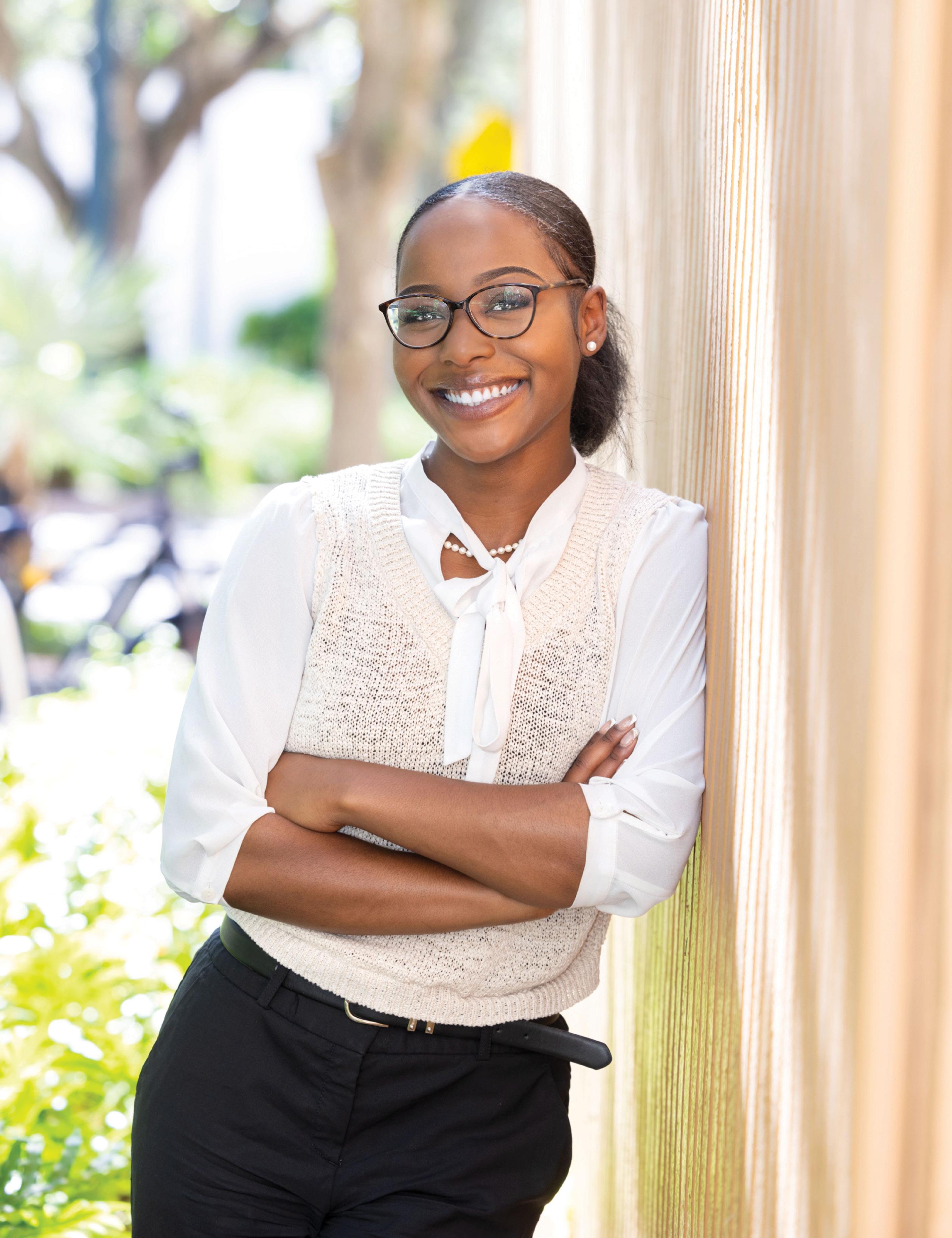 Photo by Joshua Prezant
Photo by Joshua Prezant
watching her late grandmother, Catherine, keep her family and community together.
“There are so many words to describe my grandmother,” the 23-yearold second-year law student said. “She was resilient in every way I can think of. She was unbelievably strong and independent, and in a way and without thinking, it rubbed off on me. Seeing those traits now, in myself, and being able to identify that I got so much of that from her, I realize it was she who made me want to learn so much more about leadership.”
Williamson applied and was accepted to the Jepson School of Leadership Studies at the University of Richmond, the first-ever program of its kind in the United States. Williamson said the program was extraordinary, and it wasn’t what people think of conventionally as a school of leadership, not a boot camp that trains you how to be a leader.
“It’s more a study of what leadership is and what draws people to leaders,” she said, “and the concept of leadership as a theory opposed to crafting someone into a leader. I had never really thought about it; I thought that it was something
that happened naturally. It was fascinating,” she said.
She graduated in 2022, double majoring in political science and leadership before coming to Miami Law, drawn by the work of the school’s Innocence Clinic.
Williamson, the middle child of five, sought opportunities to learn and lead far before her admission into Jepson. At 14 years old, she joined A Better Chance, a four-year residential program for academically gifted high school students of color, which required her to board 45 minutes from her home in inner-city Bridgeport, Connecticut. There, she excelled not only in academics but also in athletics, in running track, and on the cheer team, as well as in other activities like mock trial. But she always kept her hometown at heart no matter where she went.
“I love Bridgeport,” Williamson said. “It’s got its rough parts like every inner city across the nation, but it made me who I am. It gave me the tenacity that I have not only as a person but in school, and work, and in everything I do.”
It was that doggedness and perseverance, paired with the impact of losing her oldest sister, Keijahnae, to gun violence, that propelled Williamson to achieve academic excellence and into her interest in the legal field.
“Growing up in Bridgeport and seeing the criminal legal system’s impact on the people around me and the environment that it was able to engender, I knew that I wanted to have a role in its reformation,” she said. “I saw it from a perspective that not a lot of people did—the condition of the inner city because I was in the mix of it. A lot of people who live in the inner city don’t get the opportunity to get out to be able to tell the story. My academic achievements gave me that chance, and I intended to use it.”
Williamson has yet to decide what lies beyond law school but knows that there are communities in need across the United States and at home in Bridgeport. At the same time, she loves South Florida and the opportunities here, including last summer’s judicial internship with Judge Adalberto Jordan at the United States Court of Appeals for the 11th Circuit and a summer associate position with Strader Paschal, PLLC. where she explored her interest in commercial litigation.
“I’ve gained relationships with attorneys and judges here, and I can see myself staying. No matter where I end up, though, I plan to give back to my community in whatever capacity I can,” she said.
Stay tuned.
More than a dozen passports later, Bergmann graduated in December with a J.D./LL.M. in international arbitration. She took the February Florida bar exam and started work at the Miami-Dade State Attorney’s Office in March.
Starting as a 1-month-old, the dual citizen was traveling back to her familial home in Brazil, having been born in Blacksburg, Virginia, while her father completed his Ph.D. at Virginia Tech.
Bergmann says she first started thinking about a career in law after watching a 2001 movie where a sorority girl tries to win back her former boyfriend by going to Harvard Law School, and in the end, puts to rest anti-blonde stereotypes.
“After I watched ‘Legally Blonde’ for the first time, I just started saying that I wanted to be a lawyer,” Bergmann said. “I was just a kid, maybe 10 years old, so it wasn’t some kind of last-minute thing. After that, I started watching crime dramas on TV—like ‘Law and Order’ and ‘CSI Miami.’ My mom and I loved them. I still watch them.”
The 31-year-old comes from a large multicultural family; her father is Spanish and German, and her mother is Italian and Portuguese. Growing up in Brazil, she said, was very fun because of the diversity of her relatives. “My family has all kinds: Some are quiet and serious, and some love parties.”
Following her love of all things legal, Bergmann graduated from law school in Brazil in 2015, specializing in criminal science and business associations, and began building a career in Belo Horizonte in southeastern Brazil. She liked the litigation and trial parts but was disappointed by the practice of criminal law.
“Brazil is a civil law country and it is not as open to litigators as it is here,” she said. “It felt like it wasn’t my happy ending and something was missing. So, in 2021, I decided to go back to the U.S.A. and restart my academic and professional life.”
Bergmann started an LL.M. in international arbitration and enjoyed Miami Law so much that she also enrolled in the J.D. program. While a student at Miami Law, she interned at the Bronx District Attorney’s Office, the U.S. Department of Homeland Security on the government side, Bacardi-Martini, and the offices of John H. Rooney, Jr. PA. She was also a dean’s fellow for all the international students for Legal Communication & Research, including Professors Renee Schimkat and Christina Frohock’s international students.
Bergmann found her internships through Miami Law’s Office of Career and Professional Development and Yazmyne Vasquez, the International LL.M. career advisor, and checked the office’s Simplicity system frequently.
“I advise every student to contact their career advisor as soon as possible and to do internships every semester.
“It’s funny because people ask me what is the field of endeavor you like?” she said. “I like three! Criminal, my passion. I like immigration, and I like business contracts. So, I decided to do internships in all three to see which is truly my passion. If one day I decide to change fields, I have experience and I know some people there. But, still, criminal is the top one.”
Bergmann took the MPRE, the professional responsibility part of the bar exam, in November 2023. She intends to take the New York Bar exam in the future, but for now, she will focus on Florida because of her work as an assistant state attorney in Miami-Dade.
“It’s so tempting because I really love the environment, and I loved everyone there in New York,” she said. “It was an amazing experience. But I got offers from the Miami-Dade and the Broward State Attorneys Offices, accepted the Miami-Dade one, and I hope to work in the special victims unit. That’s something I care about, and I think that—or homicide—would be great experiences.”
Bergmann chose Miami Law because of the city’s Latin community, which brings a home-like environment and opportunities for international lawyers. “I also love the fact that, in Miami, you always feel like you are out for holidays,” she said. “After a hard day of work, exams, and studies, you can still look out the window and watch the sea or the prettiest sunset ever. The city vibes recharge our energy automatically.”
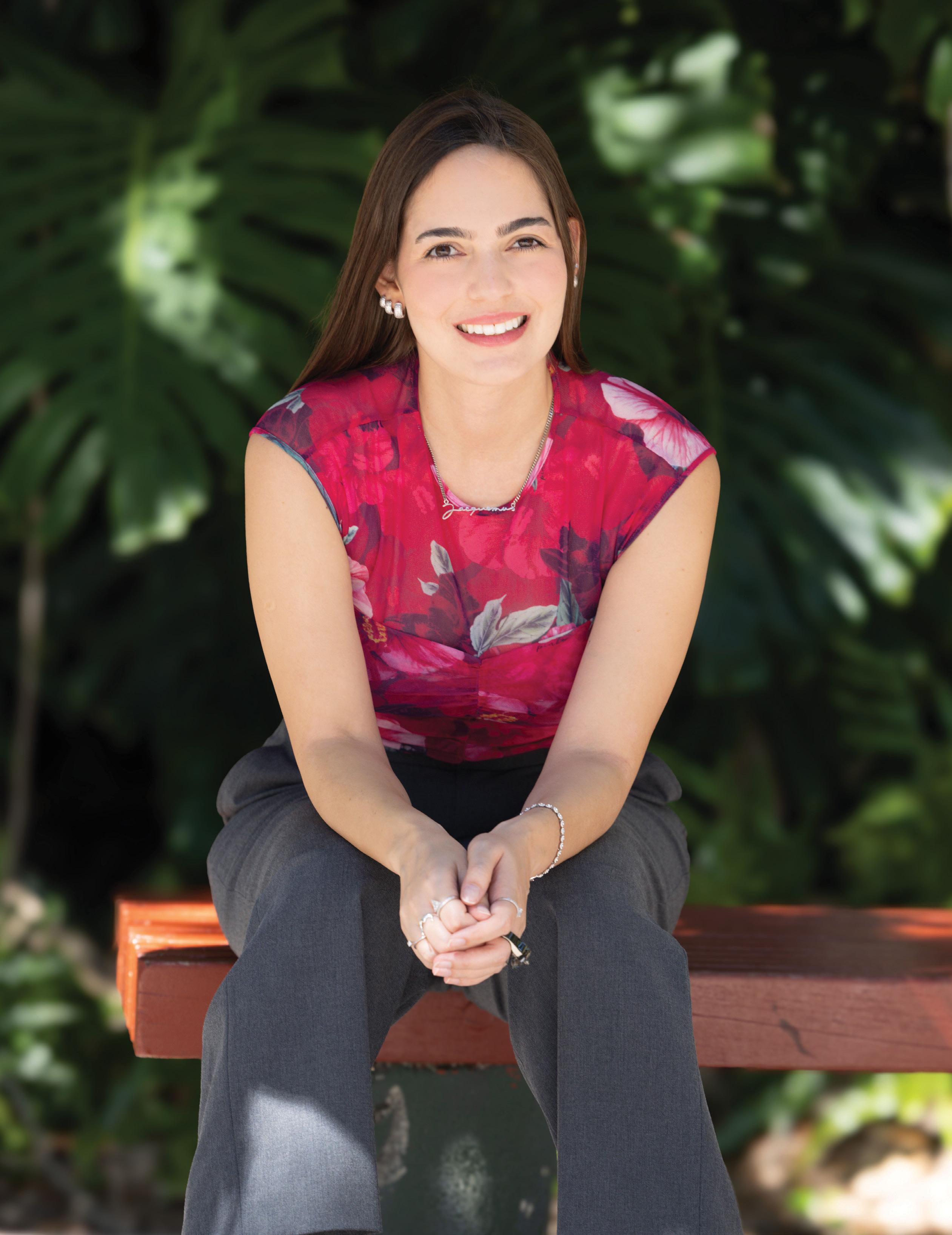 Photo by Joshua Prezant
By Catharine Skipp
Photo by Joshua Prezant
By Catharine Skipp
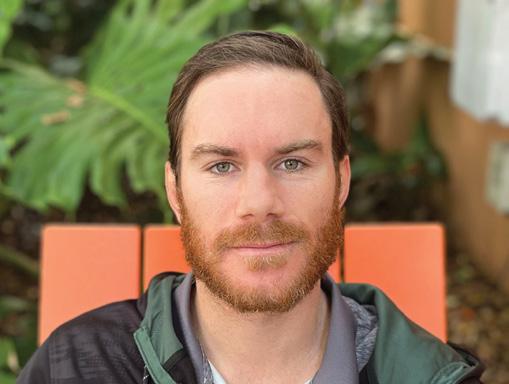
Costa Mesa, California native STARNES ARNOLD, 1L, spent the last nine years living in Asia. He became a professional Muay Thai fighter in Thailand, and later moved to Taiwan to study Chinese. He continued competing in juijitsu, kickboxing, and MMA, once becoming the #1 ranked amateur MMA middleweight in Southeast Asia. He used his language skills to become a Muay Thai instructor and taught Taiwanese students at various gyms across the island. Additionally, he worked as an English teacher for middle school students and says he learned more from them than he did from most adults. As a first-year student, he plans to study international law and hopes to work in a global setting as an international litigator.

From professional ballet to medicine and now law, ADRIANA BÁEZ’s journey has been fueled by passion and advocacy. Between medical school courses, she advocates for clients facing health disparities with the Florida Health Justice Project. Earlier, she coordinated care and services for patients, serving in leadership positions with the Mitchell Wolfson Sr. Department of Community Service and as a legal intern with Miami Law’s Children and Youth Law Clinic. UM’s first female M.D./J.D. candidate, she promotes diversity and inclusion within professional communities through mentorship. She is a twotime recipient of the CALI award for excellence and was awarded University of Miami’s 30 Under 30.
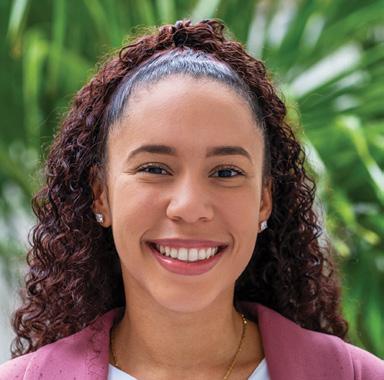
SIN, 2L, and a Dean’s Merit Scholar, is a Peter Palermo Fellow for the Center for Ethics and Public Service. She is a Jack Kent Cooke Foundation Graduate Scholar and an NAACP LDF Earl Warren Scholar. She is involved in the Black Law Students Association, Miami Law Women, and the Hispanic Law Students Association on campus. Off-campus, she is a Wilkie D. Ferguson, Jr. Bar Association member, and an American Institute of Architects associate member. This past summer, she served as a HOPE Summer Public Interest Fellow with Legal Services of Greater Miami. Currently, she is a zoning analyst intern at the National Zoning Atlas.
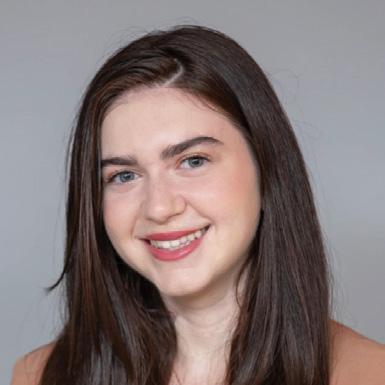
PHOTINI KAMVISSELI SUAREZ, 3L, is a fellow in the Human Rights Clinic’s Right to Food team. She is also working on environmental justice as a research assistant to Professor Abigail Fleming. During her 2L year, she received the CALI Excellence for the Future Award and the HOPE Exemplary Service Award as a student intern for her work with the HRC. In this role, she supported a growing national human right to food movement, with a focus on Maine, which recently enshrined the first-ever right to food amendment in its constitution. She was also the Summer 2022 Kozyak Minority Mentoring Foundation Harley and Sheryl Tropin Fellow.
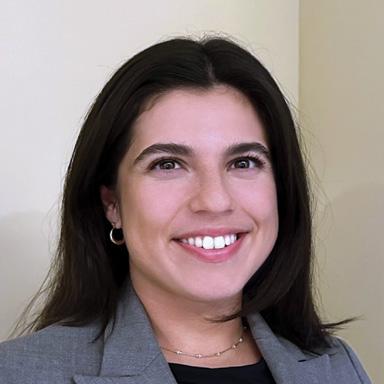
Third-year Miami Scholar PAULA MANRIQUE is completing an environmental law concentration as a joint J.D./M.P.S. student focusing on coastal zone management at the Rosenstiel School of Marine, Atmospheric, and Earth Science. She has interned with the Everglades Law Center, the Southern Poverty Law Center, and Earthjustice Washington D.C. Regional Office. As a 3L, she worked as a certified legal intern at Miami-Dade State Attorney’s Office Felonies Unit and attended the United Nations Climate Change Conference in Dubai as an observer with the environmental law program. She is on the executive boards of the Environmental Law Society and the National Lawyers Guild.
TIMOTHY MONDLOCH, 3L, is the current Race and Social Justice Law Review editor-in-chief. He hopes to use the skills and connections he has gained at Miami Law to advocate for positive change in reparations, criminal defense, and human rights and further explore his passion for litigation. As a law clerk and summer associate with McDermott Will & Emery and an intern with Bread for the City (a D.C.-based nonprofit), Mondloch has worked on a variety of commercial litigation matters and pro bono cases. These include helping people from various South American countries gain a path toward citizenship and providing support for individuals in gaining access to government benefits and family law services.
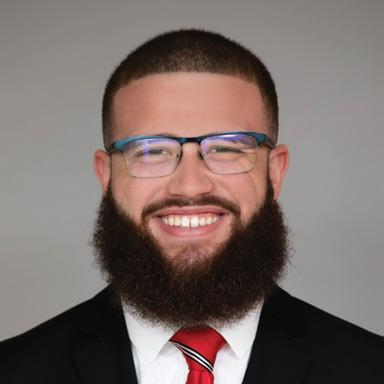
University of Miami Law Review and Charles C. Papy Moot Court Board member GABRIELLA PINZON, 3L, was awarded two CALI Excellence for the Future Awards in Civil Procedure and Torts in her first year. She then served as an intern for Judge Jose E. Martinez in the Southern District of Florida and at the United States Attorney’s Office, gaining valuable insights into the complexities of the legal system. During her second year, Pinzon triumphed in moot court, winning both the John T. Gaubatz and John J. Gibbons Moot Court Competitions and a Best Oralist award. Most recently, Pinzon served as a summer associate at Jones Day and accepted a first-year associate position upon passing the bar.
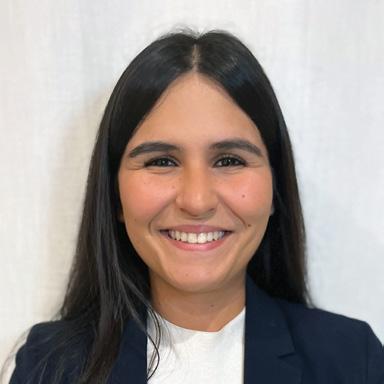
GABRIELA RIVERO, a 3L Miami Scholar, is earning her J.D./LL.M. in International Law. As a 1L, she received the Innovative Service in Public Interest Award for her work with the ACLU of Florida’s Immigrant Detention Database. She completed a HOPE Summer Fellowship at the Center for Gender & Refugee Studies. As a 2L, she joined the Immigration Clinic, served on multiple executive boards, and clerked at Kurzban, Kurzban, Tetzeli & Pratt, P.A. As a 3L, Rivero is the Public Interest Leadership Board fundraising co-chair and externed with the Southern Poverty Law Center.

First-year ELLIE WHEELER is a Dean’s Merit Scholar pursuing a J.D. and an LL.M. in Real Property Development. She graduated cum laude from the University of Florida as a marine sciences major with a minor in agricultural and natural resource Law. She spent most of her undergraduate career interning in the Behringer Laboratory, studying crustacean disease ecology. She was drawn to UM’s J.D./LL.M. program to help bridge the gap between water law and property development in South Florida and help advise developers and policymakers to ensure that future growth is attainable. She is passionate about helping the greater community by leading breathwork and yoga classes.
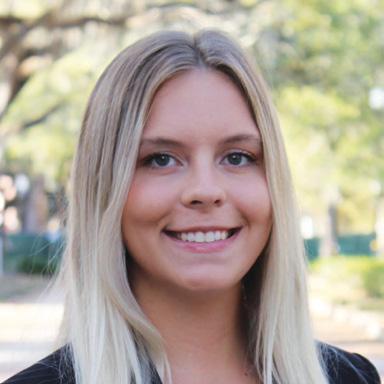
OLIVIA ZUKOWSKI, 2L, and a Miami Public Interest Scholar, credits the HOPE Public Interest Resource Center for her 1L year pro bono involvement, including her time as a Health Disparities Project Intern with the Center for Ethics and Public Service. She spent her 1L summer learning more about employment discrimination litigation with the Equal Employment Opportunity Commission as a Squire Patton Boggs Public Policy Fellow. As a 2L, she participates in Exchange for Change, a legal writing program with the Everglades Correctional Center, and is a junior staff editor for the University of Miami Law Review. She will join Carlton Fields as a summer associate in 2024.
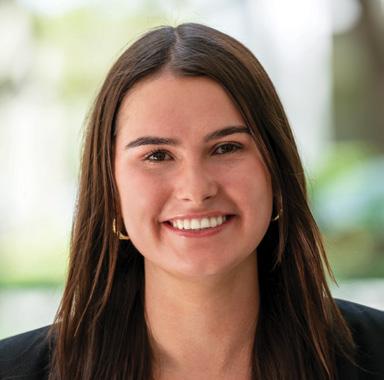

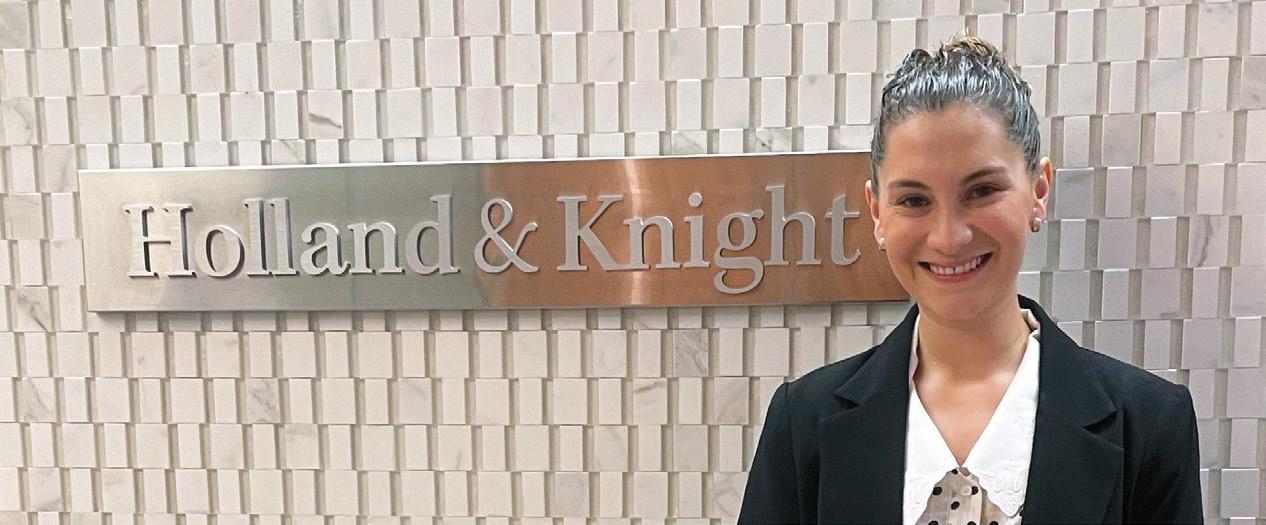
The growth in experiential learning—clinics, simulation classes, and externships—has been one of the most crucial developments in legal education in recent decades.
Miami Law’s outstanding LL.M. programs feature many practicum experiences in their curricula. A “practicum” is a course combining in-depth study of a particular subject with practical work experience using the knowledge and skills learned in the classroom.
International lawyers benefit significantly from the connections and experiences forged through practicums. The White & Case International Arbitration LL.M. launched its practicum offering in 2016, allowing students to obtain experience with law firms for academic credit while pursuing the LL.M. degree.
Before arriving at Miami Law, Tamara Galeota, a J.D./LL.M. in International Law specializing in U.S. and transnational law, studied business in Paris and law at the University of Law in London. She appreciates her practicum for giving her multi-jurisdictional experience. “The most rewarding aspect of my practicum at Holland & Knight in international arbitration and litigation has been the invaluable opportunity to work on complex and highprofile cases,” Galeota said. “I never thought I would become this comfortable navigating the laws of so many different jurisdictions.”
The Robert Traurig-Greenberg Traurig LL.M. in Real Property Development appreciates the need for hands-on
learning. J.D./LL.M. student Nathan Boyd harnessed the practicum opportunity to work with Crescent Heights, the nation’s leading urban real estate firm.
Boyd’s experience was significant as he worked with fellow ’Cane and the company’s general counsel, Jonathan Newberg, J.D. ’10. “Working with Jonathan has been an eye-opening experience in the dynamic world of one of the nation’s largest developers,” Boyd said. “Under his guidance, I’ve gained valuable insights into the strategic and operational dimensions of the legal profession within the context of development.”
The LL.M. in Entertainment, Arts and Sports Law, the only program of its kind in the U.S., is taught by prominent faculty members and practitioners—all willing to share insights with students looking to get a foot through the professional door. Many do so through practicum placements with entertainment heavyweights, including NBC Universal/Telemundo, HBO Latin America, BBC Worldwide Americas, Warner Music, Universal Music, Spotify, and the Ultra Music Festival.
Alexis Masciarella, a J.D./LL.M. in Entertainment, Arts, and Sports Law, did practicums in the summer of 2023 with Sony Music Entertainment Group and Sesame Workshop, both in New York City. Reflecting on the Sesame Workshop experience, she said, “What an incredible summer I had on the friendliest street in town! I had the invaluable opportunity to learn and grow as a legal professional.”
Boyd, who is set to graduate in spring ’24, sums up the true benefit of the practicum experience. “Working alongside industry trailblazers has not only fortified my legal acumen but has significantly shaped my academic journey, guiding me toward a future defined by excellence,” he said.
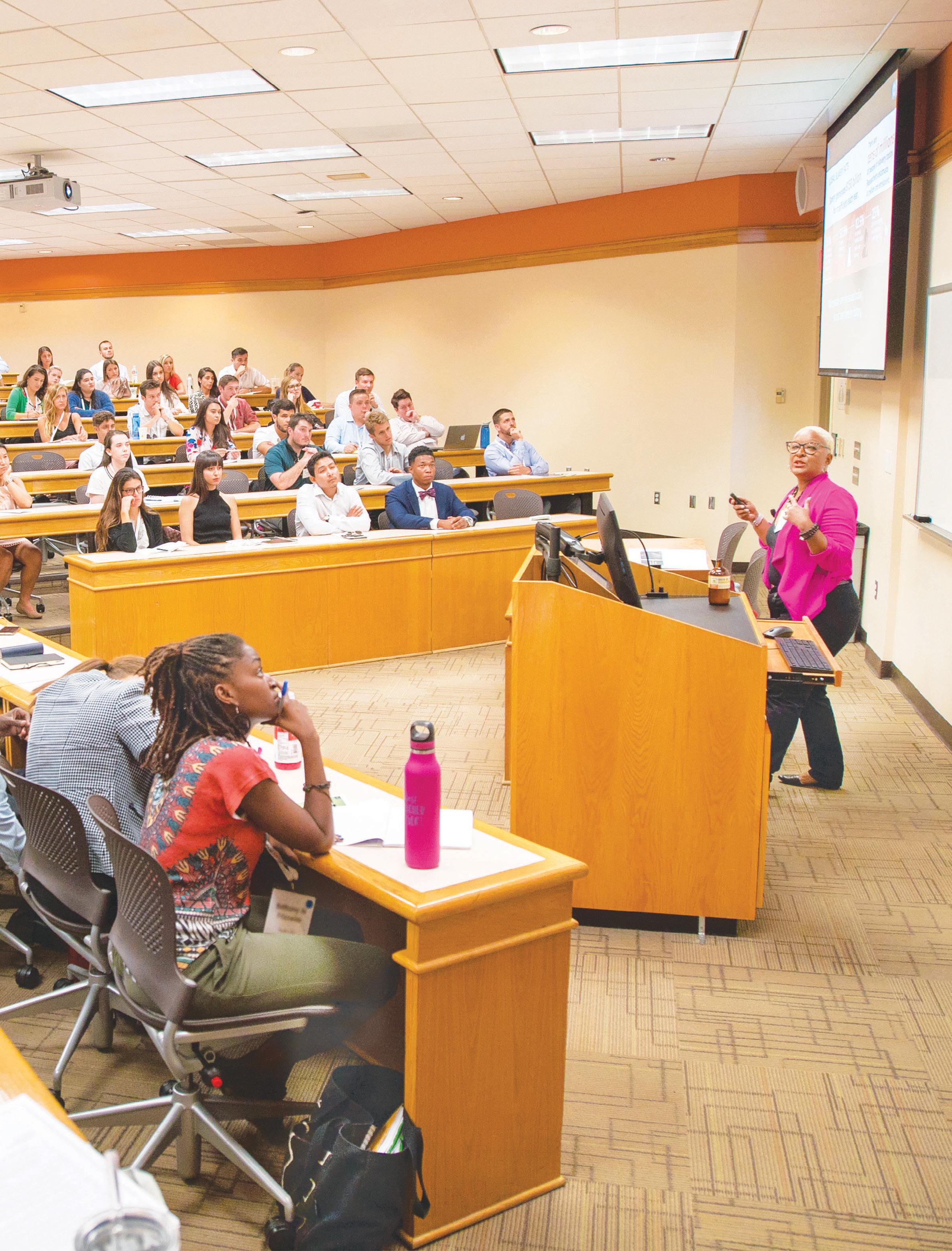 By Richard Westlund
By Richard Westlund
CAROLINE MALA CORBIN IS A FIERCE DEFENDER OF THE RIGHTS OF MINORITIES. “I have always been a feminist who believes in women’s rights,” said Corbin, professor of law and former Dean’s Distinguished Scholar. “In today’s challenging times, I am deeply concerned about how U.S. Supreme Court decisions affect people of color, the LGBTQ community, and religious minorities, as well as women.”
A noted constitutional scholar on First Amendment issues relating to freedom of speech and freedom of religion, Corbin considers these issues through an equality lens. “There is often tension between the ideals of liberty and equality in constitutional law,” she said. “In a fight between liberty and equality, I root for equality, and it is so important to speak up for individual rights in these challenging times.”
In her 15 years at Miami Law, Corbin has seen the importance of constitutional law move from the classroom to students’ personal lives. “Today, students who become pregnant in Florida no longer have autonomy over their bodies,” she said. “LGBTQ students and teachers have been erased in Florida public schools, and students of color can’t truly learn what this country has done to their forebearers.”
Corbin encourages Miami Law students to advance social justice in their legal careers to combat these challenges. “Our graduates should use their skills to shape the world in beneficial ways,” she said. “In addition
to trying to persuade judges or lawmakers on behalf of their clients, our students should consider becoming the judges and lawmakers, so they themselves have the power to do the right thing.”
Corbin grew up in New York City, where her mother, Diane, was a robust role model for advancing equal opportunities for women. As an undergraduate at Harvard University, Corbin focused on the humanities, studying art history and English literature. “These fields are actually very useful for law, because they involve interpreting and making persuasive comments about texts,” she said. “But I was interested in promoting women’s rights, and law school was the logical next step for me.”
Corbin enrolled at Columbia Law School and was recognized as a James Kent Scholar. She also won the Pauline Berman Heller Prize and the James A. Elkins Prize for Constitutional Law. After earning her J.D. in 2001, Corbin litigated civil rights cases as a pro bono fellow at Sullivan & Cromwell LLP and as an attorney at the American Civil Liberties Union Reproductive Freedom Project. “It soon became apparent that in the United States, you cannot work on reproductive rights without running into religion,” she said.
One of Corbin’s cases as an American Civil Liberties Union attorney involved a state issuing anti-abortion specialty license plates
but not abortion-rights ones. That led Corbin to write a law review article on free speech during the postdoctoral research fellowship at Columbia Law School she held before joining the faculty at Miami Law in 2008.
She now teaches U.S. Constitutional Law I, U.S. Constitutional Law II, the First Amendment, the Religion Clauses, The Free Speech Clause, Feminism and the First Amendment, and Advanced Topics in Reproductive Rights. Her articles have been published in numerous law reviews. As well as writing for Take Care Blog, ACSblog, and NBC Think, she frequently comments on First Amendment questions on local, national, and international media.
For Corbin, the U.S. Supreme Court’s recent rulings on freedom of speech and religion clash with the Constitution’s equal protection mandate. “The Supreme Court’s conservative supermajority seems intent on remaking the Constitution in its own image, with little regard for precedent or for the less powerful,” she said. “The court is privileging conservative Christians and ignoring religious minorities or other minority groups that are harmed by its newly created religious right to discriminate.”
Concerning reproductive rights, the court is imposing its religious views about when life begins onto the entire U.S. population in a problematic way, added Corbin. “The Supreme Court’s decision reversing Roe v. Wade was out
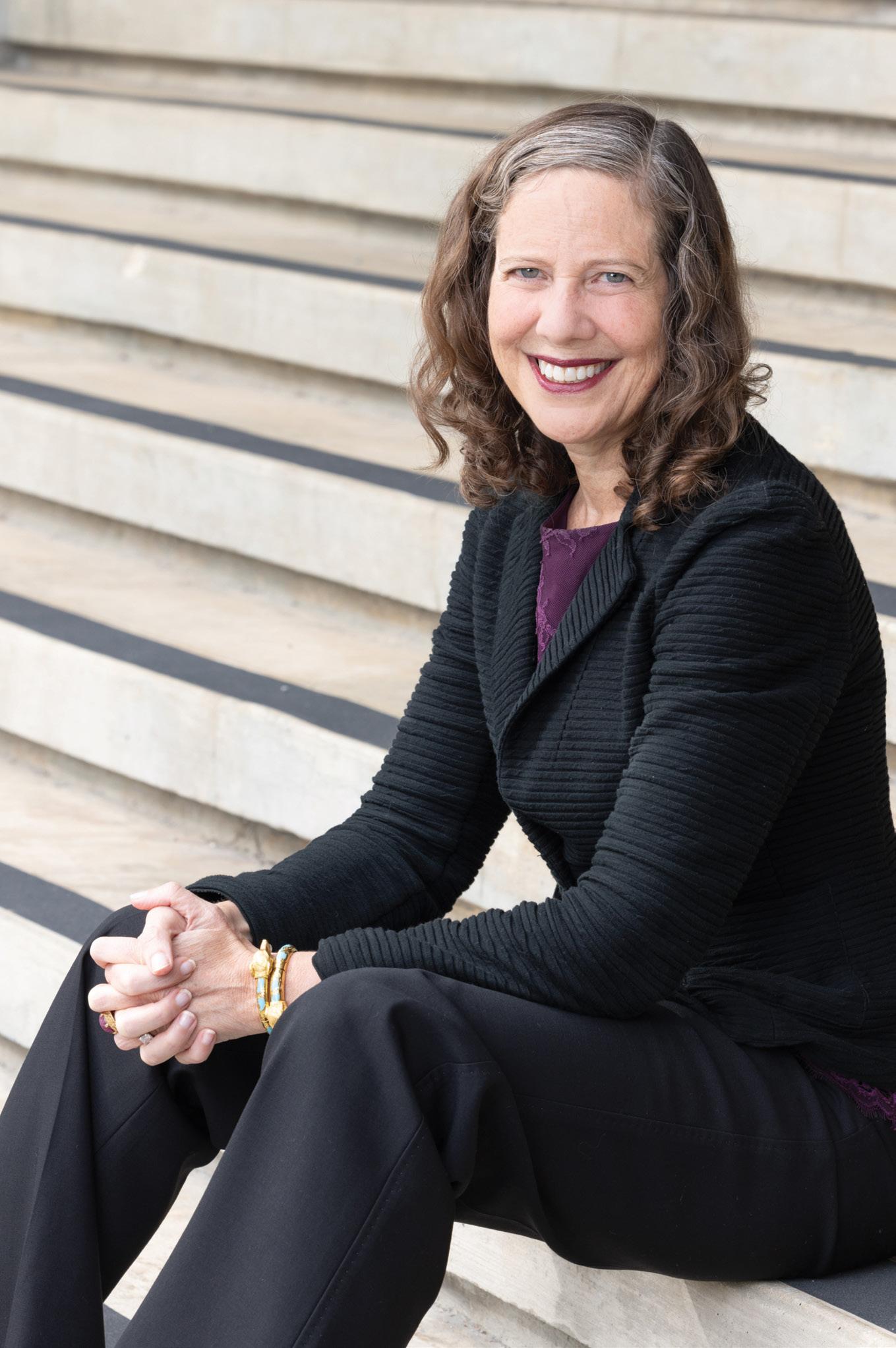
of step with the rest of society,” she said. “It is a huge step backward for women to lose something as fundamental as autonomy over their own bodies. Government-mandated pregnancy is not a good look for a democracy. But, if the Supreme Court is going to create extraordinarily expansive protection for religious observers, then Jewish women should have a religious right to abortion despite state abortion bans.”
The U.S. Supreme Court is also expanding free speech protection for
powerful interests at the expense of the American public, said Corbin. She cites the court’s striking down campaign finance limits protecting the political process from corrupting monetary influences, consumer protection disclosures, and anti-discrimination laws meant to protect the most vulnerable members of society.
Corbin has followed the NetChoice LLC cases that focus on the First Amendment rights of social media companies. “These cases are surprisingly straightforward in terms of the law,” she said. “Social media companies, like
newspapers, have the right to control the speech on their platforms. For the government to compel them to say things is presumptively unconstitutional as the whole point of the free speech clause is to prevent the government from dictating what private speakers must or must not say.”
Consequently, social media companies should feel free to take down hate speech and disinformation, not only because they have the right to control their own speech but because neither contributes to the marketplace of ideas or American democracy, Corbin added. Another negative influence comes from government propaganda, which Corbin outlined in a recent article, “The Unconstitutionality of Government Propaganda,” published in the Ohio State Law Journal, and republished in The First Amendment Law Handbook.
“Under the government speech doctrine, the Free Speech Clause does not apply to government speech, including government propaganda,” Corbin wrote. “It is time to revisit that conclusion. Government propaganda sufficiently undermines the core goals of free speech such that the Free Speech Clause ought to address it.”
For Corbin, other troubling free speech issues include public school teachers deliberately misgendering their transgender students, as well as Florida’s “Don’t Say Gay” law and ban on anti-critical race theory. “When I see something that seems wrong or off, I try to understand the constitutional principles at stake and articulate that in my writing,” she said. “I believe applying First Amendment freedoms appropriately is fundamental to the future of our democracy.”
In today’s society, health care is one of the most important—and contentious—issues. Who can access care? Who pays for services? How do changing laws impact providers? What about regulations affecting technologies
like electronic medical records and telehealth services?
GABRIEL SCHEFFLER, ASSOCIATE PROFESSOR OF LAW, WRESTLES WITH QUESTIONS like these IN HIS TEACHING AND RESEARCH. “With health law, the complexity and sheer breadth of the
material are challenges,” he said. “But it’s an endlessly fascinating field. The readings often prompt strong reactions from students, and there is always some aspect of health law in the news. My goals are to introduce our students to some of the most important bodies of law governing the health care system
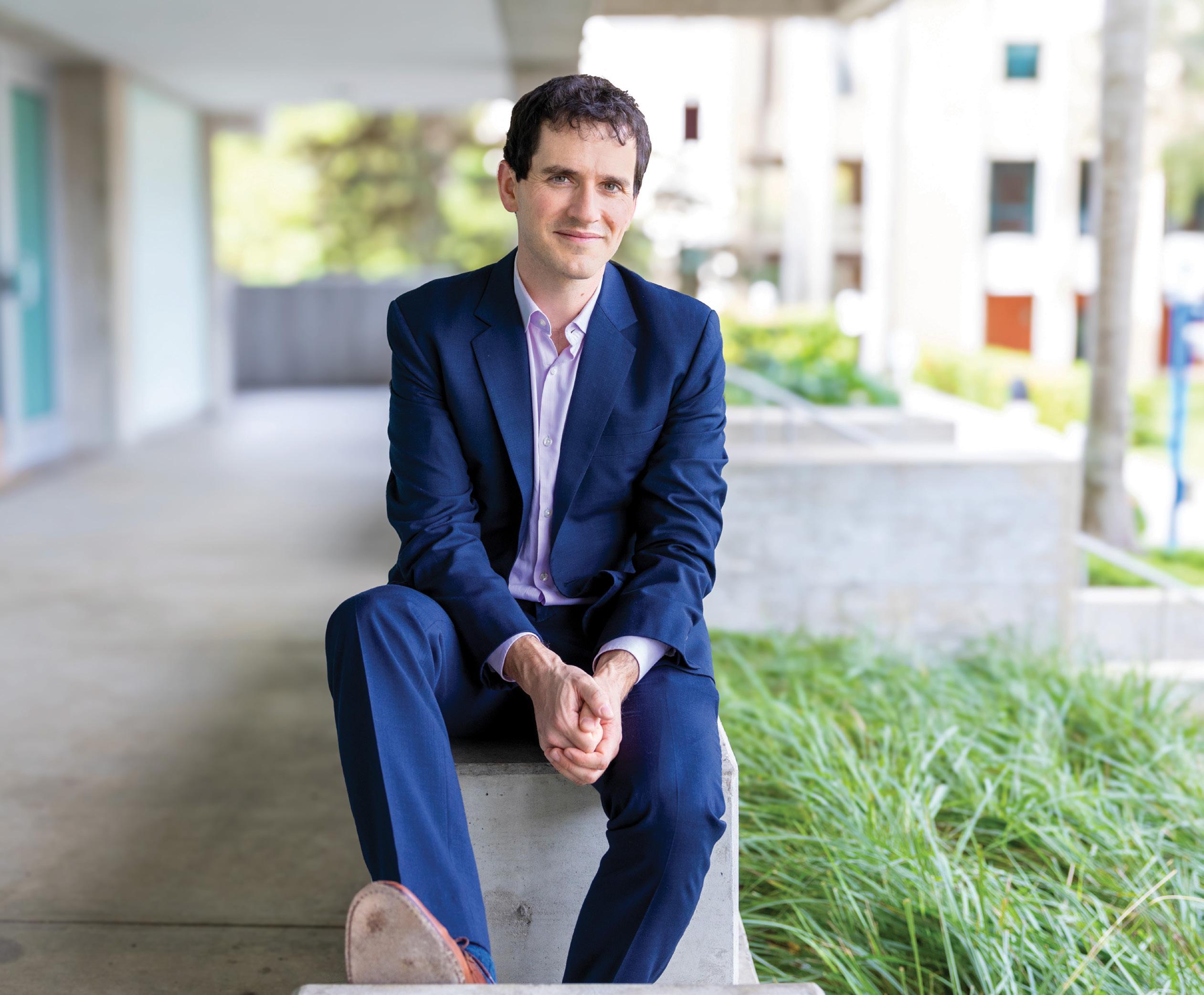
and to give them the tools to practice in this area.”
Growing up in Berkeley, California, Scheffler was interested in environmentalism and the natural world. His interest in the law was sparked by taking a course in constitutional law as an undergraduate at Harvard University. After earning his bachelor’s degree, Scheffler became a research assistant to two economists at the Harvard Kennedy School, where he was involved in projects relating to public sector corruption in developing countries and U.S. health care policy.
Deciding on a career in law and public policy, Scheffler earned his J.D. at Yale Law School and went on to serve as a staff economist at the White House Council of Economic Advisers in the Obama administration, working on health care and labor market policy.
Scheffler then joined the Penn Program on Regulation at the University of Pennsylvania as a regulation fellow and the Solomon Center for Health Law and Policy at Yale Law School as a research fellow before joining Miami Law in 2019. “I had never been to Florida before my job interview here, but I loved the people I met at the university and felt right at home in the community,” he said.
Four years later, Scheffler and his wife, Dr. Elizabeth Bast, a primary care physician at the Veteran’s Administration Hospital in Miami, have two young children and an overly protective mixed-breed rescue dog.
At Miami Law, Scheffler teaches courses in Health Law and Policy, Torts, and Administrative Law and serves as
faculty advisor for the student Health Law Association. He also serves as the faculty coordinator for the law school’s area of focus in Health Law.
“Decisions by the courts, Congress, and regulatory agencies change the landscape of the nation’s health care system,” said Scheffler. “Health law and administrative law are incredibly important fields for our students, who have many professional opportunities beyond the traditional career paths.”
Scheffler adds that administrative law is a field that raises fundamental questions about values, including democratic responsiveness and efficiency, he said. “It might seem dry, but this is a very active and far-reaching field of law. As others have observed, more U.S. laws are now made by agencies than courts or legislatures: the air we breathe, the water we drink, the food we eat, and the fuel for our vehicles are all touched by agencies.”
One of the themes of Scheffler’s research has been the political and economic barriers to reforming the health care system. One of his articles, recently published in the Washington University Law Review, focuses on what he calls the “ghosts” of the Patient Protection and Affordable Care Act—by which he means the provisions of the ACA that have been repealed, struck down, or scaled back since the law was enacted in 2010. One example is the controversial individual mandate requiring the purchase of health insurance, which still technically exists but is effectively gone, since there is no longer any penalty for noncompliance.
“That’s not to say that the ACA has not been successful or had extremely important effects,” Scheffler said. “But I think we can learn something
from these ‘ghosts’ about the kinds of compromises that are necessary to enact important social legislation in the United States today—and how these compromises can make such legislation more vulnerable to repeal or erosion down the road.”
Scheffler’s interest in health law evolved during the COVID-19 pandemic as federal, state, and local governments adjusted rules, regulations, and mandates in response to the dangerous infectious disease. In a forthcoming article, “The Future of Anti-Poverty Legislation,” Scheffler and his co-authors critically assess Congress’s response to the COVID-19 pandemic and other recent crises and ask how Congress can make antipoverty programs more responsive to changing economic and social circumstances.
The solution, Scheffler and his co-authors suggest, is to incorporate what they refer to as “automatic fiscal policies” that adjust safety net programs without action from policymakers based on external conditions. Scheffler and his co-authors write that they envision “a future of anti-poverty legislation where antipoverty programs are dynamic—not succumbing to policy drift but primed to withstand and adapt to future challenges.”
With many Americans unable to access or afford medical care, Scheffler says it’s vital to pay attention to how the distribution of services will play out in the years ahead. “We need to build a more egalitarian health care system with a strong safety net,” he said. “As COVID-19 demonstrated, a new health crisis could erupt at any time, and we need to be prepared for the future.”
J.D.
LIBRARIES ARE DYNAMIC KNOWLEDGE REPOSITORIES. “Our jobs change constantly, as we need to understand how best to use technology in legal research and teach those skills to students and faculty,” said Schard, librarian professor and director of Miami Law’s Law Library. “While we stay on the leading edge of new automated and digital tools, our fundamental commitment is to provide friendly service to law students and faculty members using our resources.”
Widely recognized for her deep understanding of the evolving role of libraries in higher education, Schard is dedicated to supporting the Miami Law community through her teaching, research, and in-depth knowledge of the school’s archival resources. “We have gone from print to microfiche to online and AI-assisted searches,” she said. “While we provide guidance about these tools—including the ethical issues—who knows what tomorrow will bring.”
Schard is also a dedicated alumna who was honored with the Thomas Davison III Memorial Alumni Service Award in 2006 from the school’s Office of Law Alumni & Community Relations and Bar & Gavel’s Alumni Leadership Award in 2022. “I love working with alumni and seeing my former students
again,” she said. “It’s a pleasure to be here at my law school alma mater.”
Schard grew up in Wildwood Crest on New Jersey’s southern shore, a town so small it relied on private support for its public library. “Our librarian supported my reading on any and every subject, even if it wasn’t something that my peers would be reading,” she said. “I returned to the little public library overlooking the ocean as my first professional position and loved providing the same encouragement and courteous customer service that I had received as a child.”
After high school, Schard earned a bachelor’s degree in Spanish and political science from Rutgers University before considering a career in law. When looking at her academic options, she chose Miami Law largely because of its international orientation. As an undergraduate, she spent her junior year in Spain, and Miami offered the ideal combination of learning opportunities.
At Miami Law, Schard worked as a part-time student assistant in the Law Library and served as an associate editor of the Inter-American Law Review. “I had so many wonderful professors and really enjoyed working with my fellow students on the law review,” said Schard, who liked the writing and research aspects of law school. “I didn’t know it at the time, but finding the most obscure resources for
this journal was great preparation for my future career.”
After earning her J.D. cum laude, Schard completed a state court judicial clerkship before deciding to pursue a career in librarianship rather than law, so she returned to Rutgers to pursue a master’s in library science. She served as the head of reference services at Marquette University Law Library and as a reference librarian at the Atlantic City Free Public Library and the Wildwood Crest Public Library.
In 1999, Schard returned to Miami as assistant director for public services at the Law Library. In 2010, she was promoted to associate director and became director a decade later. Now, she leads a team of library faculty and staff who support students and faculty every day, including evenings and weekends. “We have a very active library and are always glad to answer questions and offer guidance,” she said. “That includes tracking down details about the history of the law school.”
In addition, Schard serves on the editorial board of the peer-reviewed journal Internet Reference Services Quarterly, whose articles focus on legal technology, digital issues with copyright, legal information, collaboration, and teams. She is also an active American Association of Law Libraries member, participating in several committees.
At Miami Law, Schard pays close attention to the evolution of research tools over the decades. “When the internet took off, there were conversations about how libraries would disappear because all the
information you needed would be online,” she said. “Of course, it didn’t quite work out that way.” However, information gets lost with each new generation of technology, including printed publications that still need to
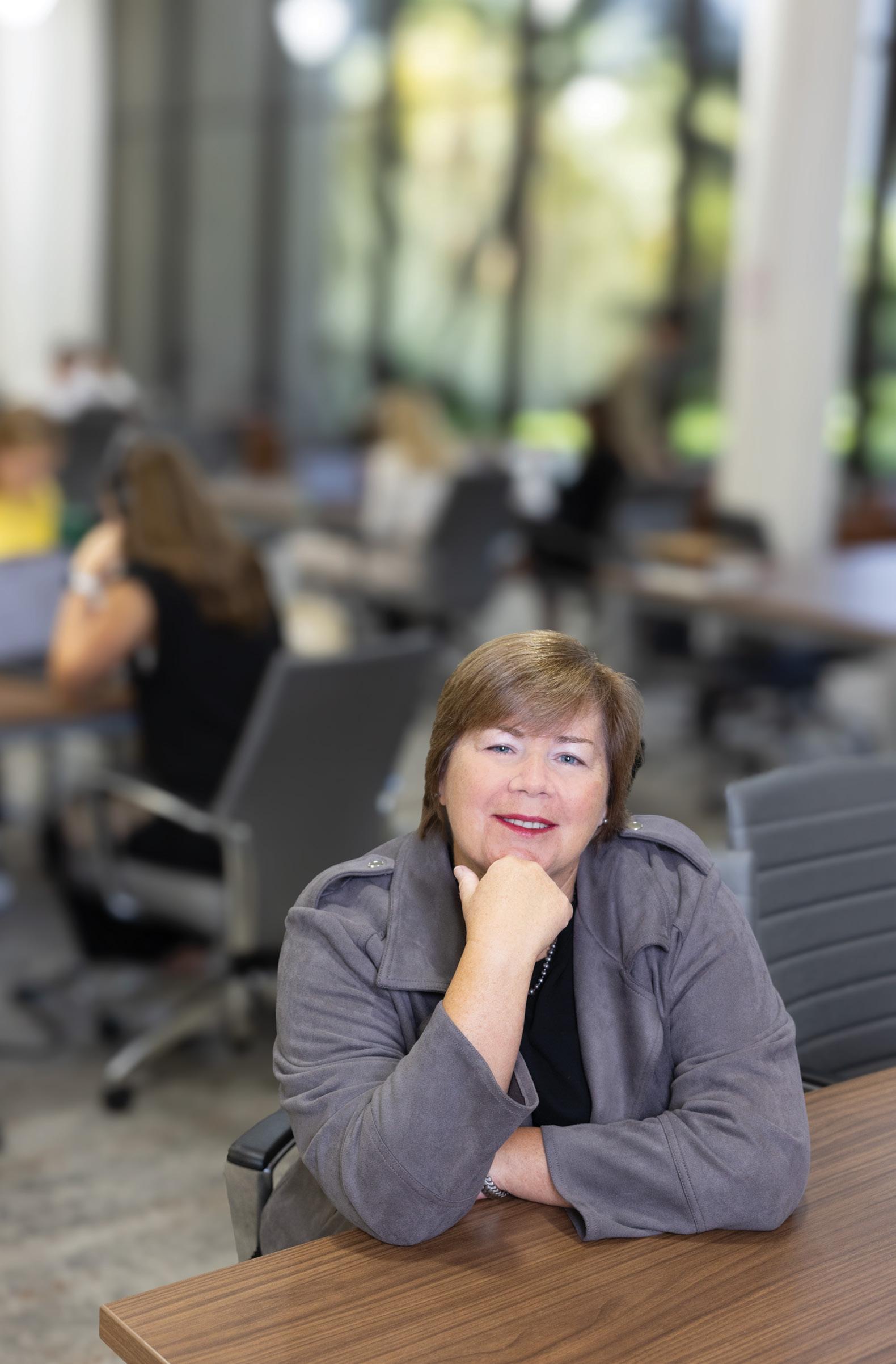
be digitized and information stored in older digital formats.
Each year, Schard teaches two upper-level courses: Legal Research Techniques and Law, Technology, and Practice, that cover the growing array of tools available to attorneys and firms. “I tell students that today’s technology is not what they will have in the future,” she said. “I also teach them how to distinguish hype from substance, as well.”
Today, the hottest topic in legal research involves generative artificial intelligence tools like Open AI’s ChatGPT, which can write content and create images or videos. Generative AI is changing the education model, including how faculty teach law students and test their skills, according to Schard. “We want to leverage AI and other legal technology for Miami Law’s programs and projects, as well.”
To use tools like ChatGPT effectively, law students and faculty need training, said Schard. That includes constructing effective prompts, reviewing the results for accuracy and ethical issues, and incorporating the output into their own research and writing. “It’s fun learning how to use these tools,” Schard said. “We’re just at the start of this exciting new technology, and who knows what tomorrow might bring.”
But regardless of technological advancements, Schard says there is still no substitute for in-person legal research and education. “The pandemic showed us the benefits of going virtual, as well as the limitations,” she said. “We want everyone to feel comfortable coming to the Law Library and talking with our team. After all, our people are Miami Law’s greatest resource.”
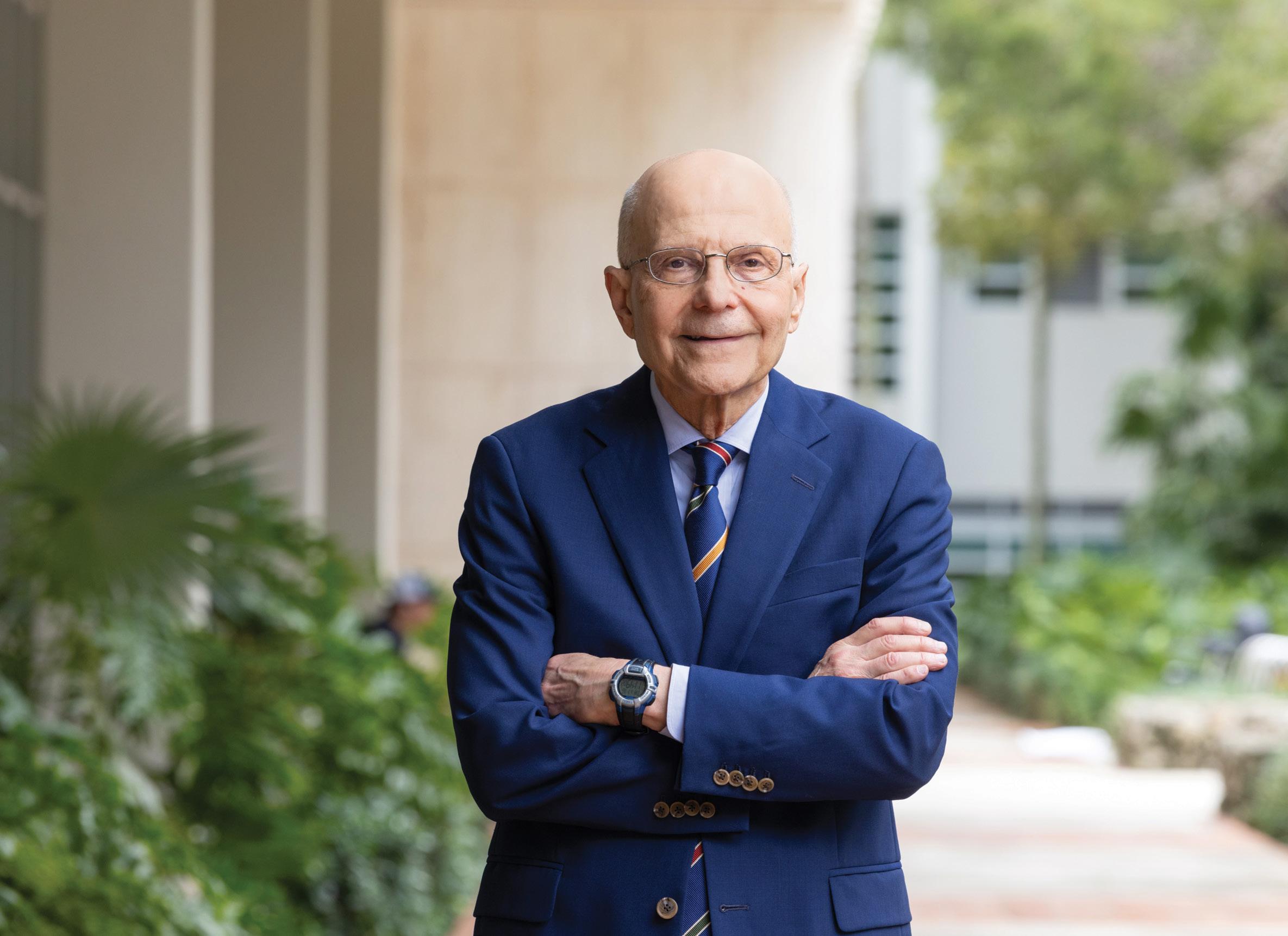 By Irwin P. Stotzky
By Irwin P. Stotzky
In the 2022-23 term, the U.S. Supreme Court issued a number of questionable and harmful decisions. It ruled that the Biden Administration had overstepped its authority to wipe out more than $400 billion in student debt, dashing the hopes of millions of borrowers and imposing new restrictions on presidential power in the absence of clear congressional authorization. The decision, the last of a tumultuous term, was part of a trio of “muscular” and outrageous rulings issued on June 29 and 30, 2023, on which the court divided 6 to 3 along partisan lines. In addition to rejecting the loan forgiveness program, the court’s conservative majority also sharply limited affirmative action in higher education, in a majority
opinion that disingenuously invoked stare decisis to support its ruling, and by creating standing where none existed, reached out and dealt a serious blow to gay rights. Indeed, the court held that Colorado’s public accommodation law, which prohibits businesses from discriminating on the basis of sexual orientation, violated the free speech rights of a web designer who refused to create wedding websites for same-sex couples based on her religious beliefs because the law compelled her to express a message with which she did not agree.
In the most important decision of the term, which some commentators claim may be “the most important case for American democracy in the almost two-and-a-half centuries
since America’s founding,” the court correctly rejected the so-called “independent state legislature theory.” Rather than resolving the many questions raised by this theory, however, the decision still leaves important issues open for future determination, including the broader issue of its decision for democracy and voting rights.
The ISL theory claims that state legislatures have exclusive power to regulate federal elections within a state without any interference from state constitutions, courts, governors, or other bodies. The ISL theory stems from a narrow reading of the Elections Clause of Article I, § 4, Clause 1: “The Times, Places, and Manner of holding elections for Senators and Representatives, shall be prescribed in each State by the Legislature thereof; but the Congress may at any time by Law make or alter such Regulations, except as to the places of chusing [sic] Senators.” Proponents of ISL theory also support their interpretation with the Presidential Electors Clause of Article II, § 1, Clause 2, which states, in part, that “each state shall appoint, in a manner the legislature thereof may direct.” Those who support ISL theory interpret the term “legislature” to refer solely to state legislatures to the exclusion of all traditional checks and balances. Thus, the theory asserts that state legislatures can enact and implement federal election regulations even if they directly conflict with state constitutions without constraint or review from state courts or governors.
In Moore v. Harper , the Supreme Court, in a 6-3 opinion authored by Chief Justice Roberts, rejected the ISL theory, ruling that the “Elections Clause does not insulate state legislatures from the ordinary exercise of state judicial review.” Even with the thorough analysis he engages in, his argument fails to list the consequences of the opposite result, a result that would allow state legislatures freedom to disregard state constitutional provisions or even governor vetoes.
The ISL theory is antithetical to the framer’s intent, text, fundamental design, and architecture of the Constitution. Indeed, the proponents of ISL theory offer little proof that the framers intended to foreclose state judicial review. There is overwhelming evidence in the text and structure of the Constitution and in the pre- and post-ratification history that the framers understood and assumed that there would be judicial review of the legislatures’ redistricting decisions. This is as would be expected given the framers’ obvious acceptance of the judicial role in the states’ governments and the natural partisan tendencies of state legislatures. But even more important to the rejection of ISL theory are the consequences of accepting that theory. If the court had agreed that there is an ISL theory, it would confer on state legislatures plenary,
exclusive, and judicially unreviewable power both to redraw congressional districts for federal elections and to appoint state electors who quadrennially cast votes for president and vice president on behalf of the voters of the states. It would mean that the partisan gerrymandering of congressional districts by state legislatures would not be reviewable by state courts, including the states’ highest courts under state constitutions. Moreover, the ISL theory was at the heart of Trump’s effort to overturn the 2020 presidential election. If the Supreme Court had accepted the ISL theory, as applied to the Electors Clause, the court could have decided that it enabled the state legislatures to appoint electors who would cast their votes for the former president, even though the lawfully certified electors were bound by state law to cast their votes for Joe Biden because he won the popular vote in those states.
The chief justice found that state courts “do not have free rein.” He argued that in interpreting state law in this area, state courts may not unconstitutionally intrude on the role reserved to state legislatures by Article I, Section 4, of the U.S. Constitution. Federal courts must ensure that state court interpretations of the Elections Clause do not evade federal law. But his opinion does not outline a standard for federal courts to use in such cases, which leaves an opportunity for the Supreme Court to narrowly interpret state court powers. As Justice Thomas suggests, the proposed test in Chief Justice Robert’s majority opinion (and the other tests listed in Justice Kavanaugh’s concurrence) is so broad that the court is free to limit state court interpretations in a manner harmful to the people’s voting rights when deciding whether the state court has overstepped its boundary in analyzing and deciding Election Clause issues. The argument that federal courts “must not abandon their own duty to exercise judicial review” authorizes courts to determine that state courts have overstepped their boundaries in Election Clause cases and even in state court interpretations of state constitutions. This will allow the court to overturn or change procedures for voting, which may be harmful to our democracy. The court’s decision in Moore has not yet freed our nation from partisan politics in the form of Supreme Court decisions inimical to democracy.
Irwin P. Stotzky, professor of law, has published numerous articles and books on democracy and human rights, criminal law and procedure, and the role of the judiciary in the transition to democracy. For over four decades, he has represented Haitian and other refugees on constitutional and human rights issues in many cases, including several in the U.S. Supreme Court.
December 10, 2023, marked the 75th anniversary of the Universal Declaration of Human Rights. This foundational instrument on human rights prominently recognized economic, social, and cultural rights as indispensable to ensure a life of dignity. However, there have been long-standing debates about the justiciability of Economic, Social, and Cultural rights. While the debate has been settled in many countries worldwide as courts have shown that adjudication of ESC rights is well within their powers, the debate continues in the United States.
Not only are ESC rights missing from the U.S. Constitution, but the U.S. is also one of a handful of countries that still need to ratify the International Covenant on ESC Rights. Hunger and food insecurity in the U.S. stem partly from the country’s refusal to guarantee its citizens a universal right to adequate food, a right enshrined in ICESCR.
However, ESC rights are being implemented in the U.S. in many ways at the subnational level. The right to food, more specifically, has started to see recent support in the U.S., with several states, counties, and cities adopting laws and policies recognizing the dimensions of the right to food. On November 2, 2021, Maine voters overwhelmingly supported a statewide referendum approving an amendment to enshrine the right to food in the Maine Constitution. Maine is the first state in the nation to enshrine the right to food in its constitution. It was a stunning victory, not just for Maine, but for the right to food movement in the U.S. overall.
The amendment adds the following to Maine’s constitution: “All individuals have a natural, inherent and unalienable right to food, including the right to save and exchange seeds and the right to grow, raise, harvest, produce and consume the food of their own choosing for their own nourishment, sustenance, bodily health and well-being, as long as an individual does not commit trespassing, theft, poaching or other abuses of private property rights, public lands, or natural resources in the harvesting, production, or acquisition of food.”
With the amendment, the U.S. joins other nations seeking
to address gaps in ESC rights via national and subnational constitutions. Today, other states, such as West Virginia and Washington, are actively looking to follow in Maine’s footsteps and amend their constitutions. Experiences in Maine serve as a reference point and an educational tool for states on successful advocacy and lessons learned throughout the process, highlighting the international right to food standards and how these standards were molded into Maine’s right to food vision. Furthermore, in part prompted by the need for legal support for Maine’s legislative efforts, a group of people with lived experiences of hunger, legislators, food justice advocates, human rights scholars, practitioners, and students from around the country have come together to mobilize around the right to food in the U.S.
Since 2019, the Miami Law’s Human Rights Clinic has supported the growing movement’s strategic engagement with international human rights mechanisms to build awareness and accountability around hunger in the U.S. Use of the international human rights framework has helped to exert political pressure, contributed to social mobilization, and sought to develop further international standards and recommendations that could then be implemented domestically. As part of this advocacy, people with lived experiences of hunger, advocates, and scholars engaged in self-education and training, supporting organizing efforts around a human rights framework. They convened strategy meetings with other movements also focused on ESC rights and engaged with several United Nations human rights mechanisms, including the U.N. Human Rights Committee, Universal Periodic Review by the U.N. Human Rights Council, and the U.N. Committee on the Elimination of All Forms of Racial Discrimination.
U.N. advocacy has been highly successful. Recently, advocacy with the CERD Committee resulted in the adoption of the first set of U.N. recommendations to the U.S. focused on its obligation to realize the right to food of Americans. More specifically, in August 2022, the U.N. CERD Committee issued the following powerful concluding observations to the U.S.:
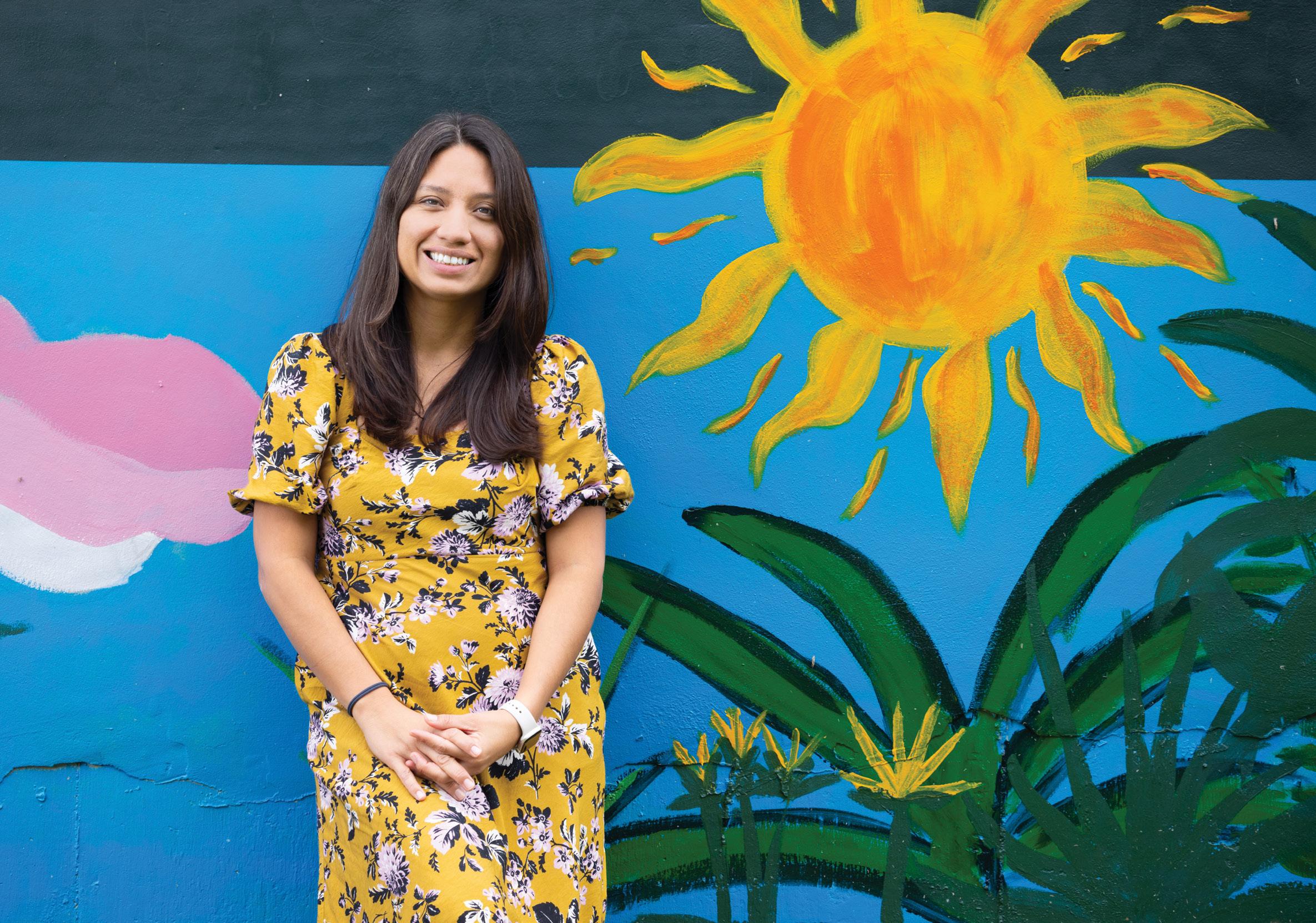
“The Committee recommends that the State party take all necessary measures to guarantee the right to adequate food, to strengthen its efforts to combat hunger and food insecurity, which disproportionately affects racial and ethnic minorities, and especially women and children, including by strengthening the institutional framework and adopting a comprehensive and rights-based national plan to end hunger. The Committee encourages the State party to take effective measures against hunger, in consultation with all relevant stakeholders, including members of the communities most affected by food insecurity.”
While everyone eagerly awaits how Maine’s right to food constitutional amendment is interpreted and applied via litigation and legislation, Maine’s efforts should be understood in the context of a broader political mobilization effort around food as a human right in the U.S.
Most recently, in April 2023, the clinic hosted a symposium on Food, Housing, and Racial Justice in the U.S., which sought to provide a space for deep reflection and strategizing by foregrounding lived experiences and strategies of survival and resistance of communities of
color around food insecurity; food system governance; access to housing, land, and natural resources; and the environment. The symposium began to unpack the meaning of the human right to food in the U.S., given our context of colonization, slavery, and corporate control of the food system.
At the symposium, the current U.N. Special Rapporteur on the right to food, Michael Fakhri, powerfully summarized the discussions by saying: “At its simplest form, the right to food is people’s ability to access good food through their relationship with the land, or through fair and stable markets,” he said. “To be free from hunger is to be free from exploitation and to be free from oppression.”
R. Denisse Córdova Montes is acting associate director of the Human Rights Clinic at Miami Law. From 2012 to 2018, Córdova Montes was based in Germany, where she coordinated the Gender and Women’s Rights Program at FIAN International, where she oversaw human rights fact-finding and advocacy in Africa, Asia, and Latin America around rural, peasant, and Indigenous women’s rights.
Did you know there are many ways to support your law alma mater ?
PARTICIPATE in a virtual panel with prospective applicants
CONNECT with a prospective student via email, phone, Zoom
HOLD a Zoom session based on your undergrad, hometown, or practice area
HOST a reception for admitted students in your city
JOIN the alumni association
CONDUCT mock interviews with law students
ATTEND an informational career fair
RECRUIT our students for jobs



Contrasting 19th- and 20th-century legal, political, and economic thought, the book situates this transformation in the philosophical crisis of modernism and the rise of the administrative state. 5

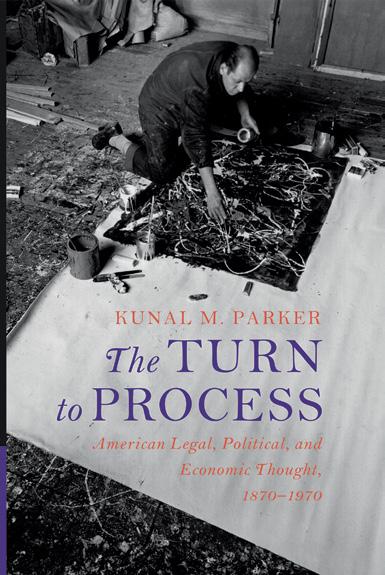
Kunal M. Parker’s book explores the massive reorientation of American legal, political, and economic thinking between 1870 and 1970. American conceptions of law, democracy, and markets went from being oriented around truths, ends, and foundations to being oriented around methods, processes, and techniques.
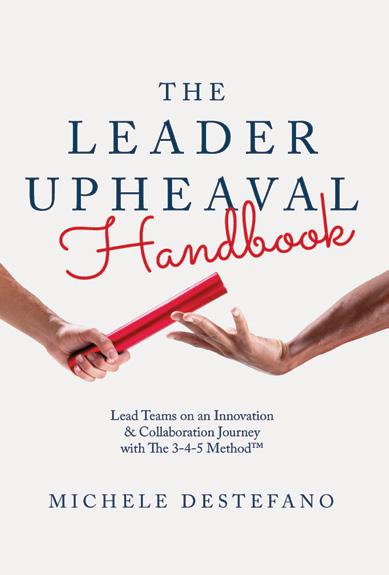
One of the barriers to innovation in professional services is a lack of training in how to apply design thinking principles and lead multidisciplinary teams in collaborative problem solving. With real examples, Michele DeStefano’s handbook, which accompanies her other books LeaderUpheavaland Legal Upheaval,helps teams proactively collaborate on solving problems or seizing opportunities of any kind and enhance collaboration, inclusivity, creative thinking, and actionable results.
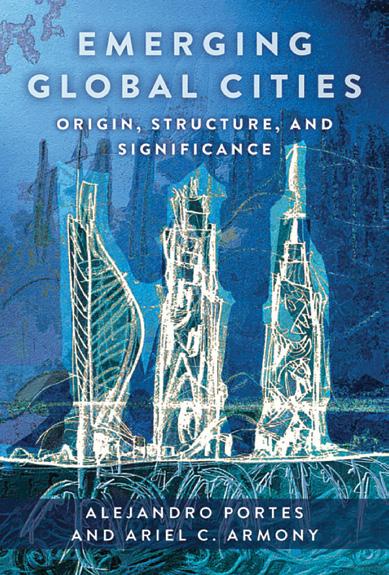
In this groundbreaking book, Alejandro Portes and Ariel C. Armony demonstrate how the rapid and unexpected rise of Dubai, Miami, and Singapore recasts global urban studies. The book traces the transformations of these three cities, identifying key features common to these emerging global cities. They identify the constellation of factors that allow certain urban places to become “emerging global cities”— centers of commerce, finance, art, and culture for entire regions.
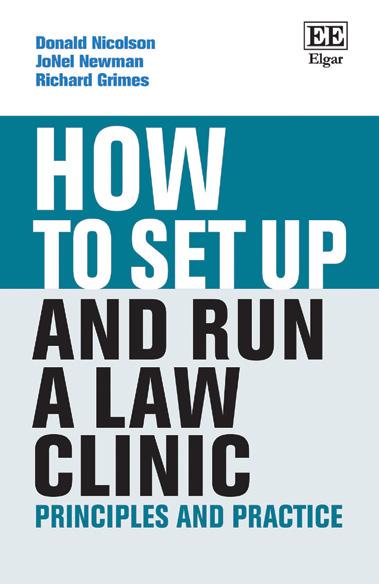
JoNel Newman, Donald Nicolson, and Richard Grimes’s accessible how-to guide provides practical, expert guidance on how to set up and run a law clinic successfully. Based on the authors’ firsthand experiences, the guide explores the theory, practice, and process of designing a clinic to address unmet legal needs, enhance student learning, and maximize the additional benefits of a clinic. The book analyses a variety of day-to-day issues and provides invaluable solutions to these commonly occurring challenges.
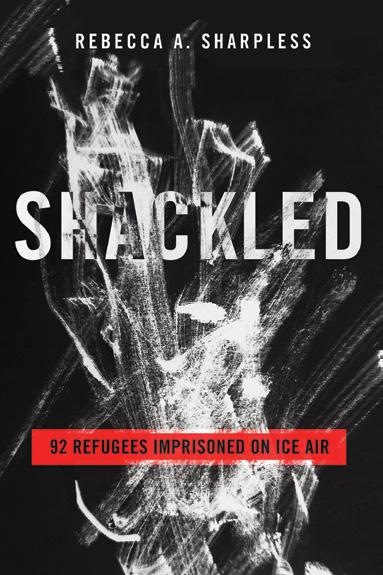
In December 2017, U.S. immigration authorities shackled and abused 92 African refugees for two days while attempting to deport them to Somalia. When the story broke, U.S. officials lied about what happened. Shackledtells the story of this harrowing failed deportation, the resulting class action litigation, and two men’s search for safety in the U.S. over the course of three years. Rebecca Sharpless, as lead counsel, provides a rare look at the brute-force mechanics of U.S. deportation.
Selected list from November 2022 – November 2023

Alfieri, Anthony V.
Race Ethics: Colorblind Formalism and Color-Coded Pragmatism in Lawyer Regulation, 36 Geo. J. LeGaL ethics 353 (2023).
Bettinger-Lopez, Caroline S. Opinion, Domestic-Violence Service Providers Need Our Help as Reports of Abuse Surge During COVID, Mia heraLd, Feb. 4, 2022, at 13A (with R. Denisse Cordova Montes & Celia Davies).
Bratton, William
Special Interests at the Gate: The ALI Corporate Governance Project, 1978-1992, in the aMerican Law institute: a centenniaL history 315 (Andrew S. Gold & Robert W. Gordon eds., 2023).
Fair Value as Process: A Retrospective Reconsideration of Delaware Appraisal, 47 deL. J. corp. L . 497 (2023).
Cherdack, Melanie Pushes, Tweets, Emojis and FinTok: Emerging Tech Meets Old School Securities Regulation, 30 PIABA Bar J. 319 (2023).
Recent Arbitration Awards, 30 piaBa Bar J. 357 (2023).
Recent Arbitration Awards, 30 piaBa Bar J. 229 (2023).
Recent Arbitration Awards, 30 piaBa Bar J. 95 (2023).
Recent Arbitration Awards, 29 piaBa Bar J. 389 (2022) (with Sara E. Hanley).
Recent Arbitration Awards, 29 piaBa Bar J. 265 (2022) (with Sara E. Hanley).
Recent Arbitration Awards, 29 piaBa Bar J. 129 (2022) (with Sara E. Hanley).
Corbin, Caroline M. Religious Liberty for All? A
Religious Right to Abortion, 2023 wis. L. rev. 475.
When Teachers Misgender: The Free Speech Claims of Public School Teachers, 1 J. Free speech L . 615 (2022).
Córdova Montes, R. Denisse Using International Human Rights Law to Address Hunger in the U.S., 6 Bus entrepreneurship & tax L. rev. 1 (2022).
Gender Justice and Human Rights Symposium: Holistic Approaches to Gender Violence, 30 U. Mia int’L & coMp. L. rev. 217 (2022) (with Tamar Ezer et al.).
Opinion, Domestic-Violence Service Providers Need Our Help as Reports of Abuse Surge During COVID, Mia heraLd, Feb. 4, 2022, at 13A (with Caroline Bettinger-Lopez & Celia Davies).
Cortado, Xavier
“Communities That Care”: Incorporating Socially Engaged Artistic Practices into Clinical Legal Education, 29 CliniCal l. Rev 307 (2023) (with Bernard Perlmutter).
DeStefano, Michele
The Unconscious Conscience of Digital Transformation: The Chief Compliance Officer?, 9 coMpLiance eLLiance J., no.1, at 2 (2023) (with Isabel Parker & Giorgia Vulcano).
the Leader upheavaL handBook: Lead teaMs on an innovation & coLLaBoration Journey with the 3-4-5 Method (2023).
Chicken or Egg: Diversity and Innovation in the Corporate Legal Marketplace, 91 FordhaM L. rev 1209 (2023).
Don’t Let the Digital Tail Wag the Transformation Dog: A Digital Transformation Roadmap for Corporate Counsel, 17 J. Bus. & tech. L . 183 (2022) (with Bjarne P. Tellmann & Daniel Wu).
Ezer, Tamar
Gender Justice and Human Rights Symposium: Holistic Approaches to Gender Violence, 30 U. Mia int’L & coMp. L. rev. 217 (2022) (with R. Denisse Córdova Montes et al.).
Friedrich, Sandra International Commercial Arbitration Practice in the United States, in 1 internationaL coMMerciaL arBitration practice: 21st century perspectives 14-1 (Horacio A. Grigera Naón & Paul E. Mason eds., 2d ed. 2010 & rev. Dec. 2022) (with Richard L. Williamson & John H. Rooney, Jr).
Frohock, Christina M. Witness Hide-and-Seek: Why Federal Prosecutors Should Record Pretrial Interviews, 53 seton haLL L. rev. 743 (2023) (with Jeffrey E. Marcus).
Legal Fiction: Reading Lolita as a Sentencing Memorandum, 86 aLB. L. rev. 21 (2022).
Froomkin, A. Michael Safety As Privacy, 64 ariz. L. rev. 921 (2022) (with Phillip J. Arencibia & P. Zak ColangeloTrenner).
Haack, Susan
A Arte das Metáforas Científicas [The Art of Scientific Metaphors], 24 coGnito: rev de FiLosoFia 1 (Tomas Drunkenmolle trans., 2023).
James and Peirce on the Importance of Individuals: The Differences that Make a Difference, 18 wiLLiaM JaMes stud. 43 (2023).
The Erosion of Academic Virtue, 16 pizhūhishʹhā-yi FaLsaFī (Tabrīz.) 1 (2022).
Hill, Frances R. taxation oF exeMpt orGanizations (2023 ed.) (with Douglas M. Mancino).
Lave, Tamara R. Detecting Racial Inequalities in Criminal Justice: Towards an Equitable Deep Learning Approach for Generating and Interpreting Racial Categories Using Mugshots, 38 ai & soc’y 897 (2023) (with Rahul Kumar Dass et al.).
Levi, Lili
Disinformation and the Defamation Renaissance: A Misleading Promise of “Truth”, 57 u. rich. L. rev. 1235 (2023).
Mahoney, Martha
Judgment: State v. Norman, in FeMinist JudGMents: rewritten criMinaL Law opinions 236 (Bennett Capers, Sarah Deer & Corey Rayburn Yung eds. 2023).
Newman, JoNel how to set up and run a Law cLinic: principLes and practice (2023) (with Donald Nicolson & Richard Grimes).
Creating Blueprints for Law School Responses to Natural Disasters, in the caMBridGe handBook oF disaster Law and poLicy: risk, recovery and redeveLopMent 389 (Susan S. Kuo, John Travis Marshall & Ryan Rowberry eds., 2022) (with Jeffrey R. Baker, Christine E. Cerniglia, Davida Finger & Luz E. Herrera).
Nickel, James W. Moral Grounds for Economic and Social Rights, in The Oxford Handbook of Economic and Social Rights (Malcolm Langford & Katharine G. Young eds., 2022).
Owley, Jessica
The Afterlife of Confederate Monuments, 98 ind l.J 371 (2023) (with Jess Phelps).
Confederate Heritage Organizations and Confederate Monument Removal, 71 wash u J.L. & poL’y 77 (2023) (with Jess Phelps).


Vermin of Proof: Arguments for the Admissibility of Animal Model Studies as Proof of Causation in Toxic Tort Litigation, 34 Geo env’t l. Rev 303 (2022) (with Kristen Ranges).
Oxman, Bernard H.
The Fortieth Anniversary of the United Nations Convention on the Law of the Sea, 99 int’L L. stud 865 (2022).
Parker, Kunal M. the turn to process: aMerican LeGaL, poLiticaL, and econoMic thouGht, 1870-1970 (2023).
Professional and “Amateur” Historians: Contribution to a Symposium on Anne Orford, International Law and the Politics of History, 36 teMp int’L & coMp L.J. 31 (2022).
Perlmutter, Bernard H. “Communities That Care”: Incorporating Socially Engaged Artistic Practices into Clinical Legal Education, 29 CliniCal l. Rev 307 (2023) (with Xavier Cortada).
Porras, Ileana Book Review, 57 cistercian stud. Q. 134 (2022) (reviewing MichaeL patrick o’Brien, Monastery MorninGs: My unusuaL Boyhood aMonG the saints and Monks (2021).
Portes, Alejandro
eMerGinG GLoBaL cities: oriGin, structure, and siGniFicance (2023) (with Ariel C. Armony)
Introduction: Cities and Migration, 46 ethnic & raciaL stud. 2280 (2023).
Self-Employment as an Alternative to Labor Market Bifurcation: The Role of Human and Ethnic Social Capital, 62 popuLation rev., no. 1, 2023, at 1 (with Ryan Bagwell).
Bilingüismo y Logros en la Segunda Generación Española:
Investigación Longitudinal, 36 Mediterráneo econóMico 315 (2022) (with Brandon Martinez).
La MiGración venezoLana en Los andes: La respuesta sanitaria de perú, chiLe, coLoMBia y ecuador [venezueLan MiGration in the andes: the heaLth response oF peru, chiLe, coLoMBia and ecuador] (2022) (with Juan Arroyo Laguna et al.).
They Are Not All the Same: Immigrant Enterprises, Transnationalism, and Development, in diaspora Governance and transnationaL entrepreneurship: the rise oF an eMerGinG GLoBaL sociaL pattern in MiGration studies 33 (Ricard Zapata-Barrero & Shahamak Rezaei eds., 2022) (with Brandon P. Martinez).
Redmond, Patricia Navigating Zombies and AlterEgos: Eleventh Circuit Reaffirms Standards for Receiver Standing, aM. Bankr. inst. J., Oct. 2022, at 28 (with Ashley D. Champion).
Rogers, Scott L. Optimizing Performance and Mental Skills with MindfulnessBased Attention Training: Two Field Studies with Operational Units, 188 MiL. Med e761 (2023) (with Thomas H. Nassif et al.).
Rosenn, Keith S. Law and deveLopMent in Latin aMerica (2023) (with Kenneth L. Karst).
Rueda-Saiz, Pablo Targets, Fields, and Tactics: MultiInstitutional Legal Mobilization in the Campaign of the U’wa People in Colombia, 2 Mich. J.L. & soc’y 37 (2023).
Schard, Robin C. Island Musings: A Selective Bibliography of Early Key West, 12 Brit. J. aM. LeGaL stud. 377 (2023).
Sharpless, Rebecca A. shackLed: 92 reFuGuees iMprisoned on ice air (2024).
Human Frailty, Unbreakable Victims, and Asylum, 54 coLuM huM rts. L. rev. 726 (2023) (with Kristi E. Wintermeyer).
“What is a City But Its People”: Commentary on “Migration and Peripheral Urbanization: The Case of the Metropolitan Zone of the Valley of Mexico” by Raúl Delgado Wise, Francisco Caballero Anguiano and Selene Gaspar Olvera, 46 ethnic & raciaL stud. 2439 (2023).
Stewart, Kele M.
Educational Advocacy, in chiLd weLFare Law and practice: representinG chiLdren, parents, and aGencies in neGLect, aBuse, and dependency cases (Josh GuptaKagan ed. 4th ed. 2022).
Stotzky, Irwin P. Keeping Immigrants Out and Expelling Immigrants Who Are Here: Title 42 and the Migrant Protection Protocols Controversy, in 38 civiL riGhts LitiGation and attorney Fees annuaL handBook (Steven Saltzman ed., 2023).
Suman, Daniel O.
oceans and society: an introduction to Marine studies (2023) (edited with Ana Spalding).
Global Marine Aquaculture Development, in oceans and society: an introduction to Marine studies 59 (Ana Spalding & Daniel Suman eds., 2023) (with John D. Stieglitz et al.).
Oceans and the Changing Climate, in oceans and society: an introduction to Marine studies 99 (Ana Spalding & Daniel Suman eds., 2023).
Stewardship and Conservation of the Marine Environment, in oceans and society: an introduction to
Marine studies 175 (Ana Spalding & Daniel Suman eds., 2023) (with Manoj Shivlani).
Engaging the Tropical Majority to Make Ocean Governance and Science More Equitable and Effective, 2 npJ ocean sustainaBiLity 8 (2023) (with Ana K. Spalding et al.).
Trocino, Craig Jurisdiction and Review, in FLorida appeLLate practice 3-1 (12th ed., 2022).
Urice, Stephen K. When to Look a Gift Horse in the Mouth, in LeGaL issues in MuseuM adMinistration (2022).
Surprise! Managing Unexpected Bequests, in LeGaL issues in MuseuM adMinistration (2022) (with George D. Karibjanian & H. Sujin Kim).
Valdes, Francisco Mapping and Mobilizing Legal Criticalities: Making the Move from Diaspora to Collective or Legal Scholars Making a Difference as Cultural Warriors, 100 denv. L. rev. 625 (2023).
Van den Berg, Albert Jan Does an Annulled Award Constitute Legal Authority in Investment Arbitration?, in arBitration Beyond Borders: essays in MeMory oF GuiLLerMo aGuiLar áLvarez 447 (W. Michael Reisman & Nigel Blackaby eds., 2023).
National Report for The Netherlands (2020 Through 2023), in icca internationaL handBook on coMMerciaL arBitration (Lise Bosman ed., Supp. No. 127, July 2023) (with Gerard J. Meijer).
Widen, William H. Highly Automated Vehicles & Discrimination Against Low Income Persons, 24 N.C. J.L. & tech. 115 (2022)
Ella Duckworth, a 2L at the University of Miami School of Law, stood before 11th Circuit Court of Appeals Judge Adalberto Jordan, J.D. ’87, and insisted the judge oversimplified a choice faced by Duckworth’s client. “Yes, your honor, she does have a choice, but her choice is death,” she said.
Duckworth set her sights next on U.S. Bankruptcy Court for the Southern District of Florida Judge Laurel Isicoff, J.D. ’86, who asserted that Duckworth’s client did have options.
“No, your Honor,” Duckworth said. “Lack of reasonable alternatives should not be mistaken for a choice.”
When U.S. District Court for the Southern District of Florida Judge Roy Altman cited precedents established in previous cases with similar circumstances, Duckworth told the judge he had missed one significant difference.
“Those cases aren’t dealing with a global pandemic,” she said. “There’s a whole new jurisprudence right now about how to handle cases that deal with the COVID-19 pandemic, and this court has not set any precedent.”
That debate played out not in a federal courtroom but on UM’s Coral Gables campus during the final round of the 2023 John T. Gaubatz Moot Court Competition in October. The annual event, where law students argue a fictitious case before a panel of three sitting judges, is used to select members of the Charles C. Papy, Jr. Moot Court Board, a student organization that has been active for more than 70 years and grown to become one of the most successful in the nation.
Unlike most moot court programs nationwide, Miami Law’s program features more than 200 alumni, sitting judges, and practicing attorneys who help train the students and judge their competitions. Miami Law’s program also features the most robust international moot court program in the country, traveling worldwide to compete in multiple languages. Altogether, Miami Law’s moot court members have won 100 Best Oralist awards, 56 Best Brief awards, and 28 overall competitions over the past 20 years.
All that work culminated in Miami Law achieving its highest national ranking in 2023 when it reached No. 3. And, more importantly to their teachers and trainers, the students have received the written and oral advocacy training that allows them to start their careers more prepared than some practicing attorneys.
“We get lawyers in court every day who are fully barred and are getting paid in U.S. dollars by their clients who cannot compare to the level of poise and advocacy that you saw here today,” Altman said before the announcement that Duckworth and her partner, 2L student Samantha Viner, were named the winners of the 2023 Gaubatz competition. “That’s really a testament to the strength of the community that you’ve built and, of course, to the hard work that you put in.”
Miami Law started its moot court program in 1953. The team was small initially, just a handful of students who competed in one state tournament a year.
Then, in 1999, Patricia Redmond, J.D. ’79, returned to Miami Law to start teaching. She checked in on the moot court team and got the bug. “I thought I could help this team to advance,” said Redmond, now a bankruptcy and restructuring shareholder at Stearns Weaver Miller and director of the law school’s Eleanor R. Cristol and Judge A. Jay Cristol Bankruptcy Pro Bono Assistance Clinic.
Redmond dove in. She created a prep schedule for the students and started grilling them through practice rounds. She recruited bankruptcy lawyers and judges she’d worked with in South Florida to serve as practice round judges. She even convinced judges to let the students hold their practice rounds inside their courtrooms, which helped the students become comfortable in that intimidating space.
“When you walk into a courtroom and you stand at the podium, a lot of the students feel that it’s really real,” she said.
Redmond was so impressed by the students that she divided them into separate teams and started taking one team to a new competition: the Duberstein Bankruptcy Moot Court Competition, an annual event in New York City. After a year of Redmond’s coaching, the team advanced to the semifinals for the first time and won the Best Brief award. The following year, they won the entire competition.
As the years passed, Redmond asked graduating students to return and help train the team. They did, and the roster of oral argument trainers, brief editors, and practice round judges grew. “It started to be a community,” said Redmond, who still coaches the Duberstein team. “The lawyers, the judges, were invested in it. We were like a family.”
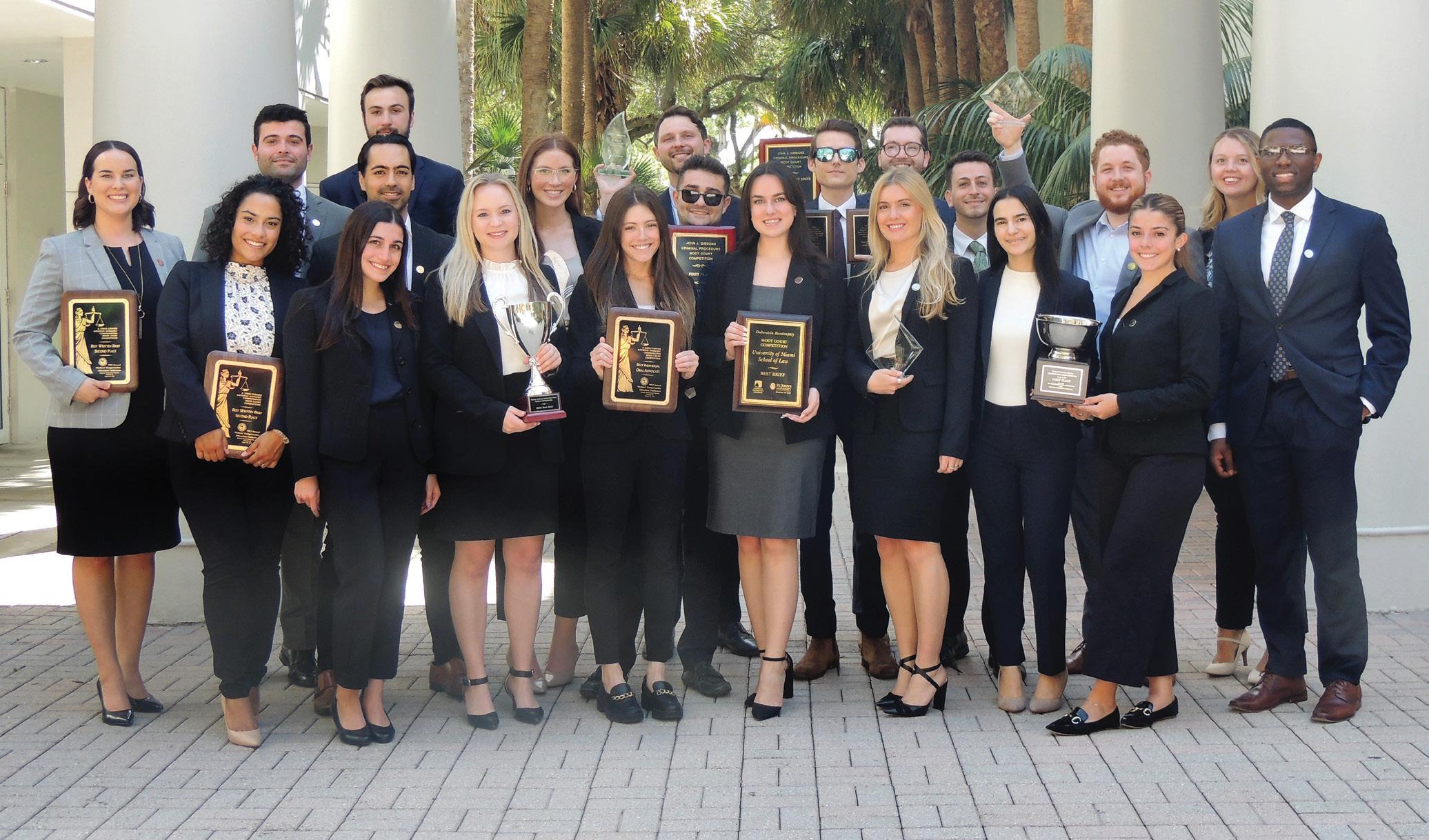
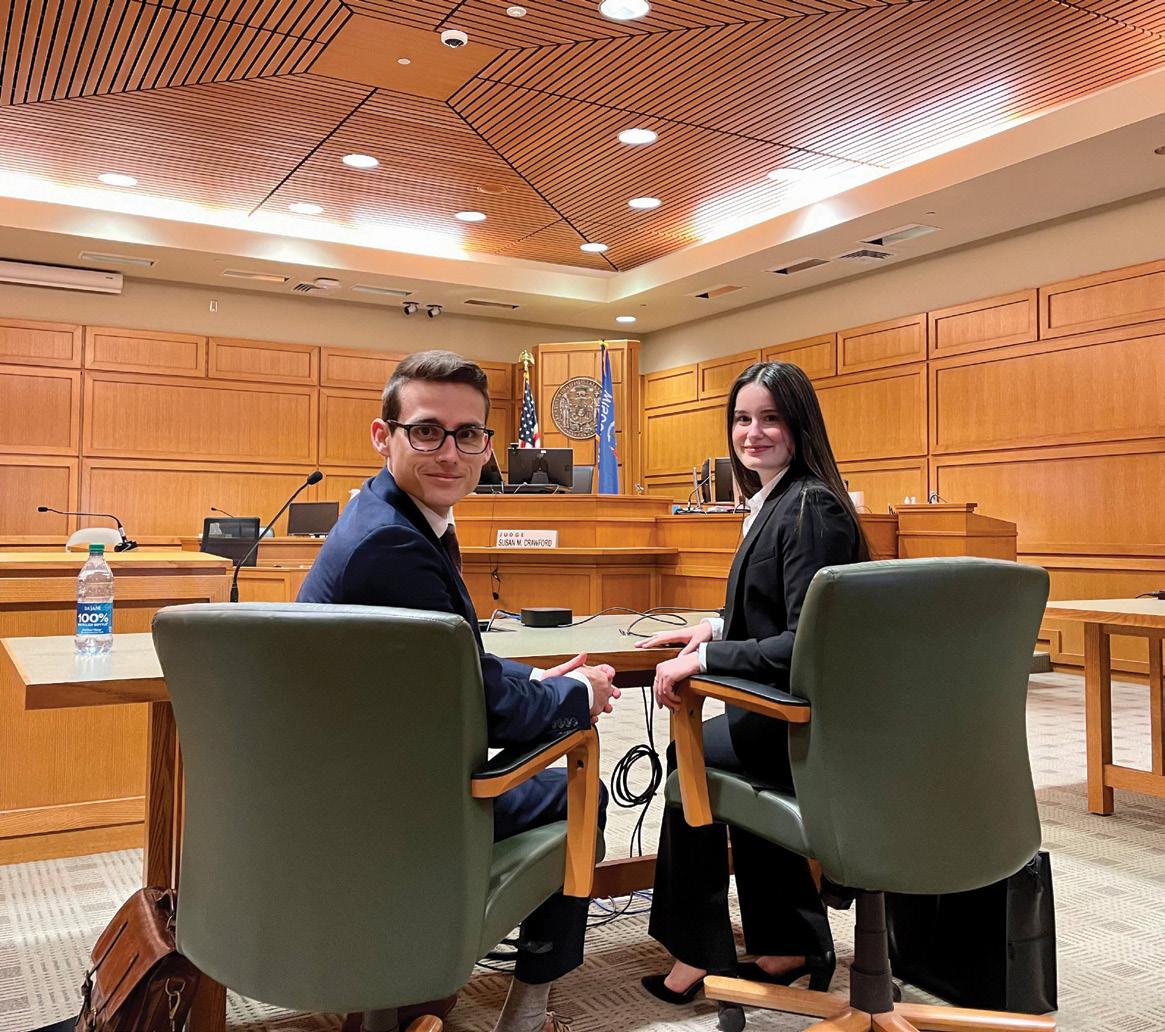
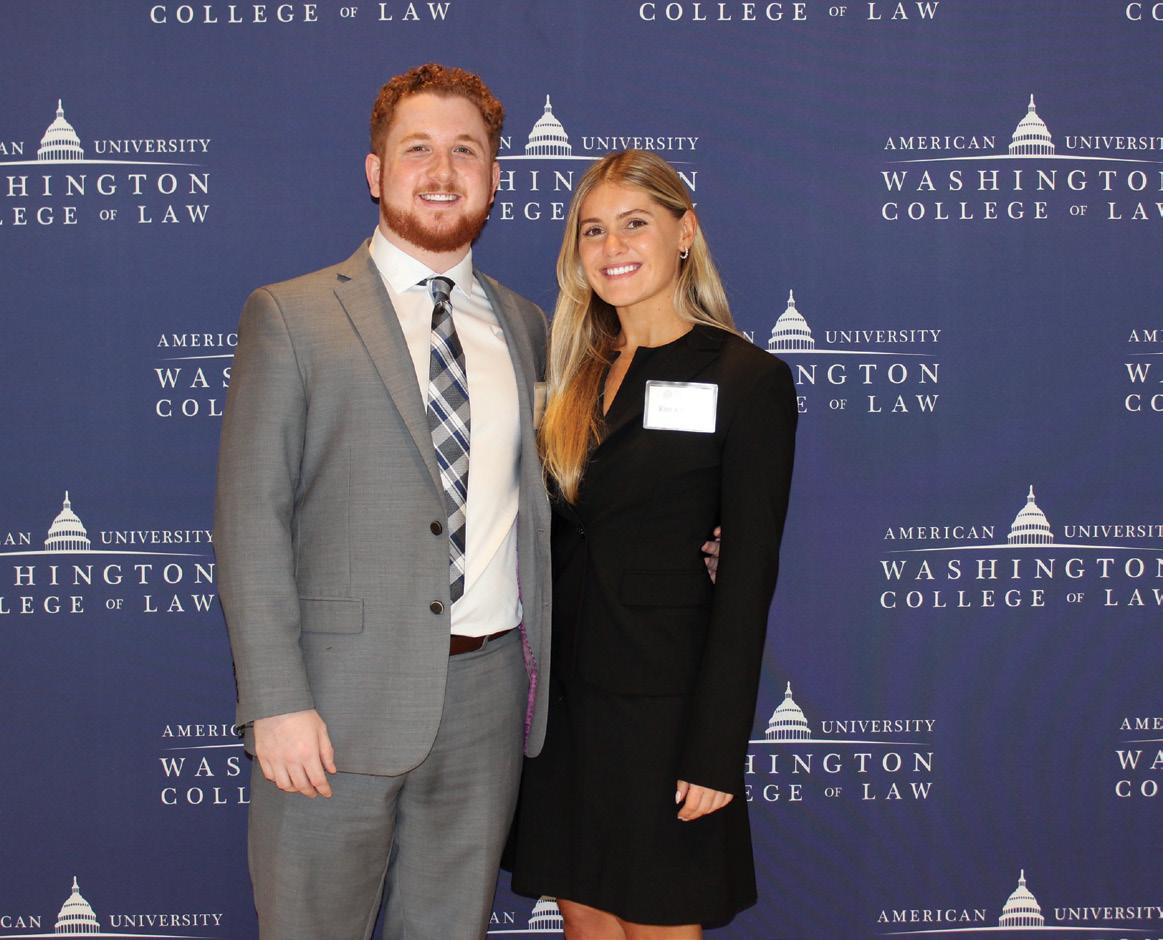
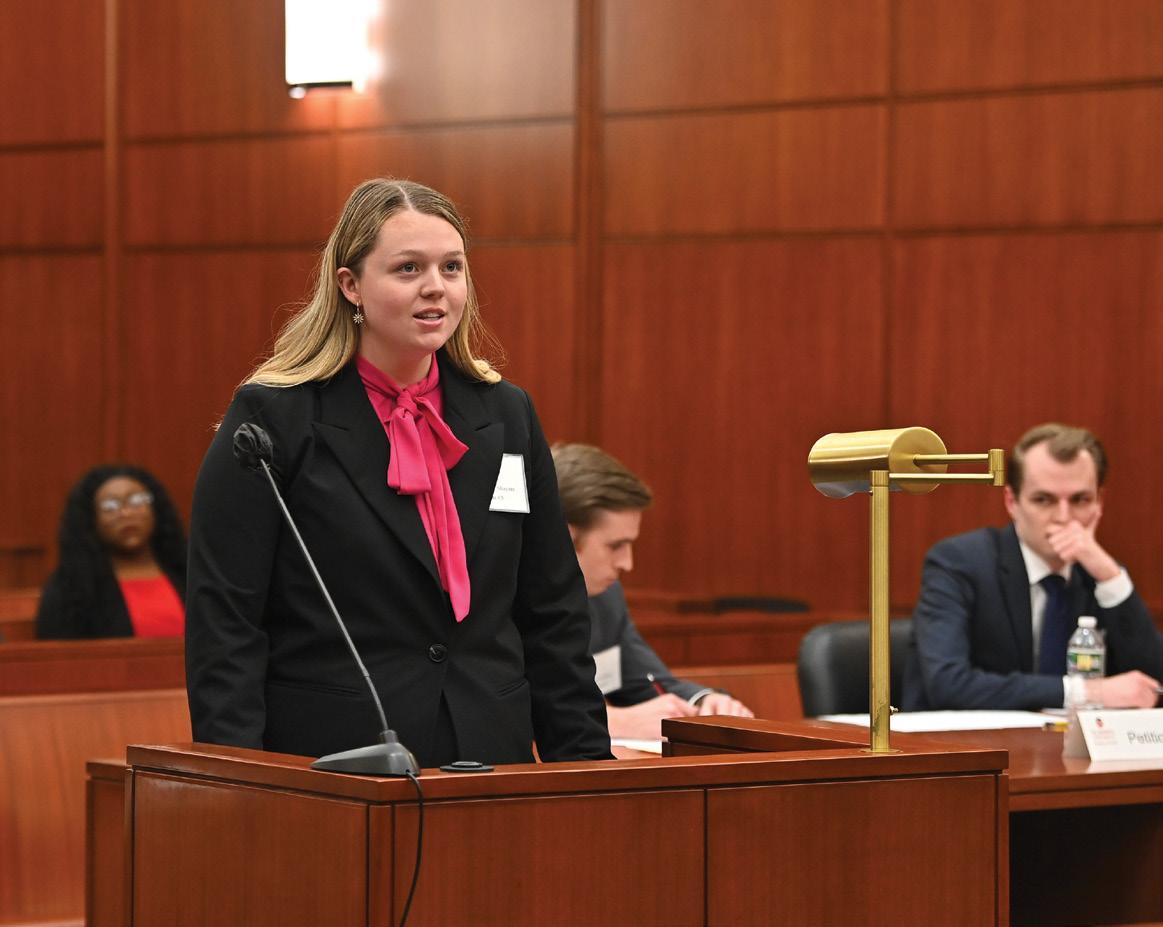
After becoming dean of Miami Law in 2009, Patricia White pushed to bolster the school’s international law program.
Miami was already unofficially known as the capital of Latin America, and White wanted to beef up the school’s international law curriculum to take advantage of that. So, she approached Paula Arias, a Colombian attorney who had just finished a one-year visiting professorship at Miami Law, with an offer to stay on board to coach a new international moot court team.
A handful of law schools around the country occasionally send their students overseas to compete in moot court competitions. Still, Arias’ mandate was to create a structured program to send students overseas to multiple competitions each year covering all aspects of international law.
Arias was uniquely qualified for the position, given her experience across multiple areas of international law, her fluency in two languages, and her familiarity with Portuguese. But she said the city of Miami has its benefit: the size of its international law community. “It’s easier for me to get a Brazilian attorney in Miami than if I’m in any other city,” she said.
Since becoming the International Moot Court director in 2010, Arias has crisscrossed the globe with her students, attending up to 10 yearly competitions. They’ve competed in London, the Netherlands, Budapest, Hamburg, and Madrid. Arias uses each trip as a learning experience beyond the moot court competition. For example, she tells her students they’ll spend most of their time hunkered down in hotel conference rooms rather than sightseeing.
“They think, ‘This is fun,’ and I have to say, ‘No, we’re working,’” she said.
The teams manage to squeeze in a little time away from their briefs. Arias took them on a tour of the United Nations complex when they traveled to Vienna, Austria. They visited maritime museums between rounds when they traveled to Brisbane, Australia, for a maritime law competition. But the students earn those trips because they have continued excelling. Over the past 10 years, the team has won five competitions (some of which have over 400 schools competing), and students have won 57 Best Oralist awards and 31 Best Brief awards.
Arias deflects any credit and instead praises her students and White. “She saw in me something that she thought she could pull out,” Arias said. “It is about teamwork among students, coaches, alumni, and supporters, and loving international law practice.”
The Papy moot program was already on the rise, but White recruited two more people who took it to the next level.
Susan Fleischner Kornspan, J.D. ’90, joined the moot court board as a student after looking for ways to put the lessons she was learning in class into practice. After growing up being told facetiously by her mother that she should become an actress, she loved the theatrics of the courtroom and moot court competitions. “It was everything that spoke to me,” she laughed.
Kornspan started her career in Washington, D.C., but when she moved back to South Florida, she wanted to become more involved with her alma mater. At the urging of White and Assistant Dean Georgina Angones, she sat in on a meeting of the moot court board in 2012 and was immediately drawn back in by the students’ hunger. The students complained that the administration wasn’t supportive enough of them. Kornspan empathized but responded by saying it was the students who had to force the administration to pay attention. “If you build it, they will come,” she told them.
First, Kornspan decided to turn the annual Gaubatz selection competition into a full-blown event that now features more than 150 members of the Miami legal community judging, watching, meeting, and mentoring the students. “I was very strategic in making sure we had as many potential employers in the courtrooms as possible,” she said. “The lawyers and judges like it, too, because they get to see the students in action. It’s a great interview.”
Kornspan then sent moot court board members to recruit more participants at student organization meetings and legal communication and research skills classes. And like Redmond had done before with the Duberstein team, Kornspan started recruiting colleagues and alumni to advise, judge, and coach all the other moot court teams. So many agreed that she was overwhelmed to see how many high-profile attorneys and judges came to help. They even had two teams argue before U.S. Supreme Court Justice Samuel Alito in competitions over the years.
Kornspan still coaches the Hunton Andrews Kurth Moot Court National Championship team and serves as the Papy Moot Court Alumni Advisory Board chair. But she and many others also credit the program’s dramatic rise to another newcomer: Farah Barquero.
The double ’Cane, who received a master’s degree in public administration, was offered to oversee the moot
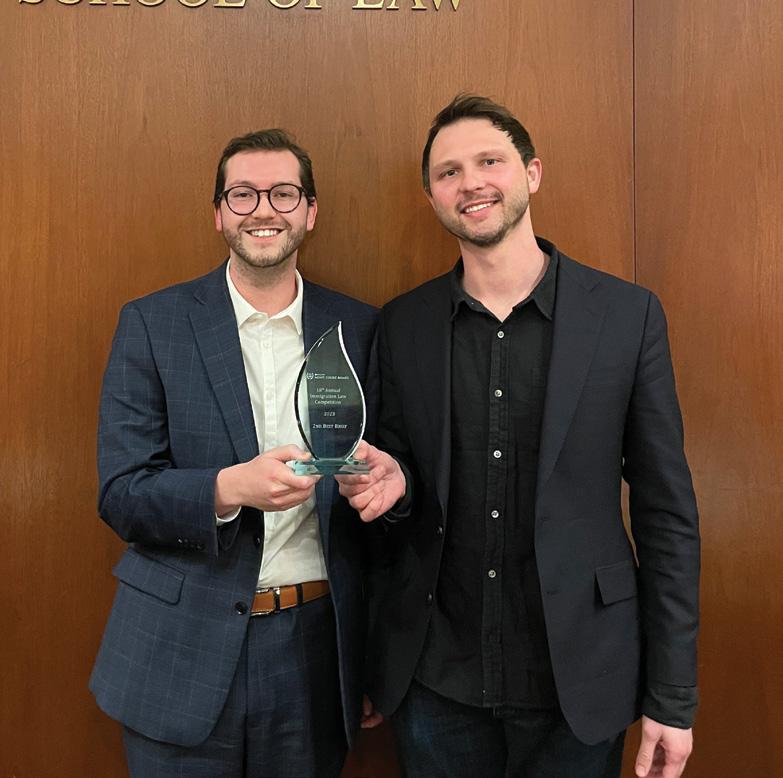
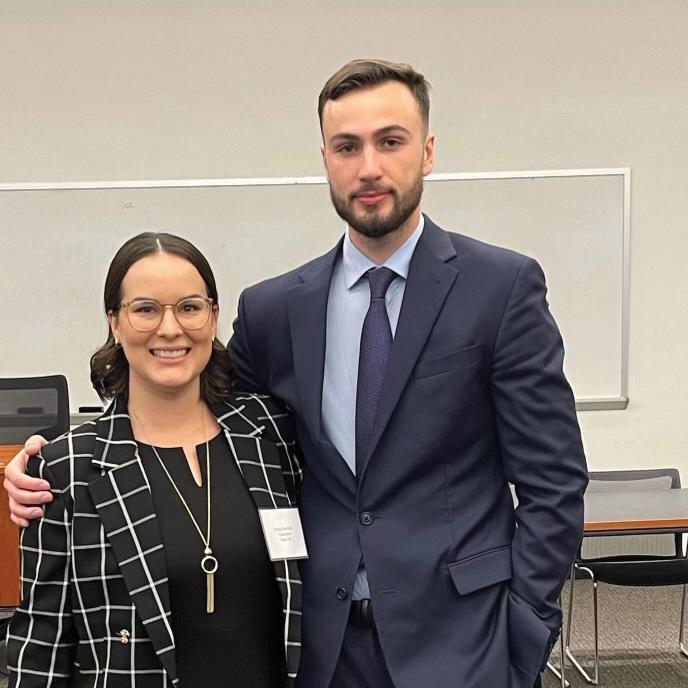
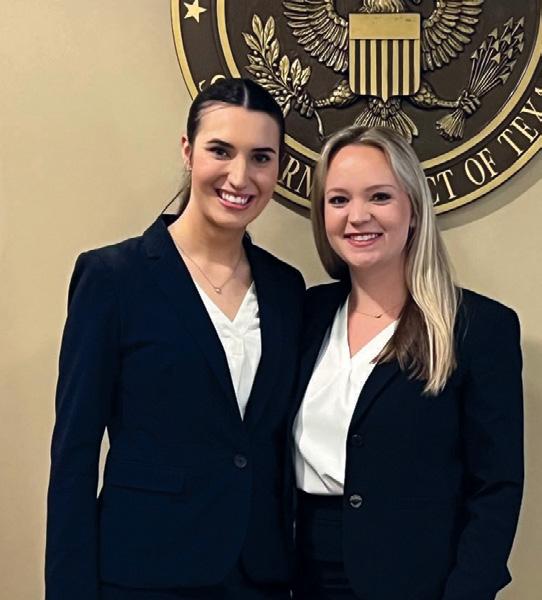
“It started to be community,” said Redmond, who still coaches the Duberstein team. “The lawyers, the judges were invested in it. We were like a family.”
court board and law review programs in 2009. Barquero stabilized the program, formalized the alumni coach process, and expanded the program to participate in more than a dozen moot court programs yearly. Under her watch, the program even started hosting its regional competition: the Cristol, Kahn, Paskay Circuit Bankruptcy Competition, which is now the regional leadup to the national Duberstein competition.
Moot court members, past and present, credit Barquero for being the guiding hand behind the program. “I joke with the students all the time, ‘We didn’t have a Farah Barquero back in the day. You’re very, very lucky and very blessed,’” Kornspan said.
The awards and the national rankings have helped put Miami Law’s moot court team on the map, but students and trainers say the enduring writing and oral argument lessons matter most.
Barquero said the team struggled to write briefs when she started, so they focused on the students’ writing. That effort got a big boost in 2015 when Annette Torres, J.D. ’93, a professor of legal writing at Miami Law, came on board as the faculty adviser and started brief writing workshops
“It’s about taking them to the next level,” Torres said. “We talk about higher-level skills and aspirations, points they should be considering as they craft a compelling narrative, developing their theory of the case, and articulating themes that will grab the court’s attention.”
and a formalized brief schedule that borrowed heavily from real-world law practices. The former shareholder at Stearns Weaver gave the students practical teaching balanced with real-world examples.
“It’s about taking them to the next level,” Torres said. “We talk about higher-level skills and aspirations, points they should be considering as they craft a compelling narrative, developing their theory of the case, and articulating themes that will grab the court’s attention.”
Freddi Mack, J.D. ’14, is a senior assistant city attorney for the City of Miami Beach who primarily handles civil litigation matters at the administrative, trial, and appellate levels. Working in-house for a municipality means juggling cases ranging from land use and zoning disputes to personal injury claims to constitutional challenges. She draws a direct line between her ability to manage such a varied caseload and the brief writing lessons she learned doing moot court at Miami Law. In her regular classes, the moment she started understanding a particular case, it was time to move on to the next. Focusing on one case in moot court and having her work product repeatedly scrutinized by different coaches and practice round judges is what allowed her to hone her advocacy skills.
“Taking the time to build up those fundamentals in a moot court setting was, I think, the best possible way to prepare me for when I don’t have the luxury of time, and I need to just churn out a brief or a motion really fast,’” said Mack, one of the coaches of the Duberstein team.
The same applied to oral arguments, where students have been drilled not only on the substance of their argument but on their style. Redmond taught students to learn the names of the judges they would argue with beforehand so they could address them each by name. Students were trained so hard that they could make their arguments without notes, a rarity in moot court competitions. “When we did that, the comments from the judges were crazy,” Redmond said.
Luis Reyes, J.D. ’18, learned during his time in moot court that it’s not enough to win the legal argument but to remember “the humanity” of each case. A case could have “ugly” facts or a judge may be worried about expanding a law or a precedent. In
those cases, he was taught to “frame the requested result in the narrowest, most reasonable way possible.”
“That’s really where the competitions, I think, are won or lost,” said Reyes, a judicial law clerk for Senior U.S. District Judge Paul C. Huck, who coaches two moot court teams.
Despite all the success and progress over its 70 years, coaches and students still see room for improvement in the moot court program.
Reyes wants to see more students do moot court and law review since doing both helped him learn everything he needed about time management. Kornspan would like to involve more Miami Law professors to enhance the students’ experience. Torres wants to expand the advanced appellate advocacy courses offered by Miami Law, primarily offered to 2L moot court members. She believes all students (and 3L moot court members) could learn from the classes, so she’s been discussing an expansion of those offerings with the administration. “I want Miami Law to have greater offerings for our students to continue cultivating those advocacy skills,” she said.
Bailey Beauchamp, J.D. ’23, president of the moot court board when it earned the No. 3 ranking, would like to see students continue to come together. When she became president, the COVID-19 pandemic was winding down, and she recruited volunteers to help clean out the moot court office, which had become a mess. Now, students spend more time there, helping to rebuild the on-campus community they once had. “We don’t have to be here and do this,” she would tell recruits. “We get to do this.”
William Brandyburg, a 3L and current president of the moot court board, wants to institute a system where 3Ls on the team are assigned to 2Ls to ensure the veterans are mentoring the newcomers. But beyond that, Brandyburg ran for president on a platform of continuity, not change, because of how well the system is already operating. “My campaign point would’ve been made that our process works very well,” he said.
Barquero is also pleased with the program’s current state but wants one more thing: “To be No. 1.”
When William Brandyburg started at Spring Hill College in his hometown of Mobile, Alabama, he had no idea what to major in or what he wanted to become.
The small, liberal arts Jesuit college emphasized rhetoric, writing, and critical thinking, with students regularly discussing topics in class. That taught him how to take in different perspectives, think through problems, and present his best case. The bug was planted. Brandyburg realized he’d make a good lawyer.
Still, he didn’t know what kind of lawyer he wanted to be. But after starting at the University of Miami School of Law in 2021, he found his calling in a 1L torts class. He loved the ambiguity of each story, the gray areas that led to different interpretations, and, most of all, he loved the ensuing rounds of debates.
“The cases in torts spoke to me,” Brandyburg said. “That’s where you can see me forming the idea that I would like to be a litigator. I wanted to be the person making the kinds of arguments you read about in those cases. That’s what led me to moot court.”
With his goal finally set, Brandyburg tried out for the Charles C. Papy, Jr. Moot Court Board at the start of his 2L year. He was in the middle of an externship with U.S. Circuit Judge Adalberto Jordan, J.D. ‘87. Still, Brandyburg did well enough debating the anti-commandeering clause in the qualifying competition to make the team. Within months, he was off to New York City to compete in the Duberstein Bankruptcy Moot Court Competition, where he and his partners advanced to the octo-final round.
His confidence building, Brandyburg decided to make a run for president of the moot court board. His campaign focused on forging bonds between new and existing members, and he proposed that all future teams include a mix of 2Ls and 3Ls so that the more experienced students could guide their new teammates.
It worked. Brandyburg was elected president by the moot court board and took the reins at the start of his 3L year. At first, he felt intimidated. “The weight of the responsibility
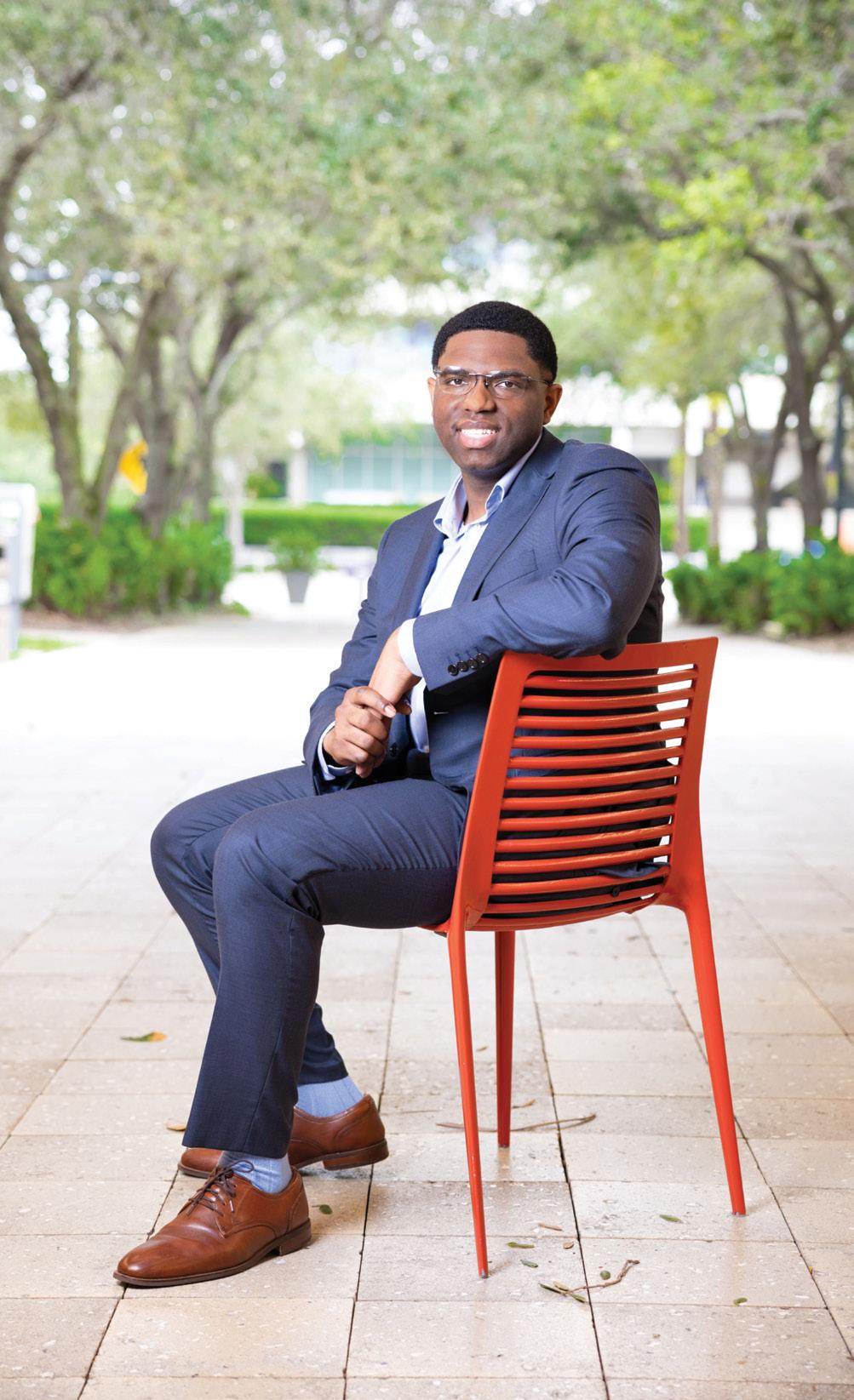
feels really big,” he said. But following the long tradition of alumni and friends of the program coming back to help, Brandyburg has received a lot of assistance from the outgoing president, Bailey Beauchamp.
“She texts me with encouragement and advice,” Brandyburg said. “I try to emulate her and her leadership style, which was knowing everyone, talking to everyone, having open channels of communication, and trying to build on the things she did.”
After years of uncertainty as a young student, Brandyburg, 23, is excited that he has a clear path. He plans to compete again in the New York Duberstein competition in the spring. After serving as a summer associate at the Akerman law firm in 2023, he expects to start there as an associate after graduating in the spring of 2024. Brandyburg is curious to see what life will be like outside his “Coral Gables bubble.” He wants to start fishing again and explore Miami’s diverse food scene more. And he will graduate knowing that he made the right decision by going to UM and joining the moot court.
“I’ve enjoyed my time at UM,” he said. “I’ve met good people, smart people, and I learned a lot.”
Suggestions for Class Notes may be emailed to notes@law.miami.edu or submitted to alumni.law.miami.edu/class-notes

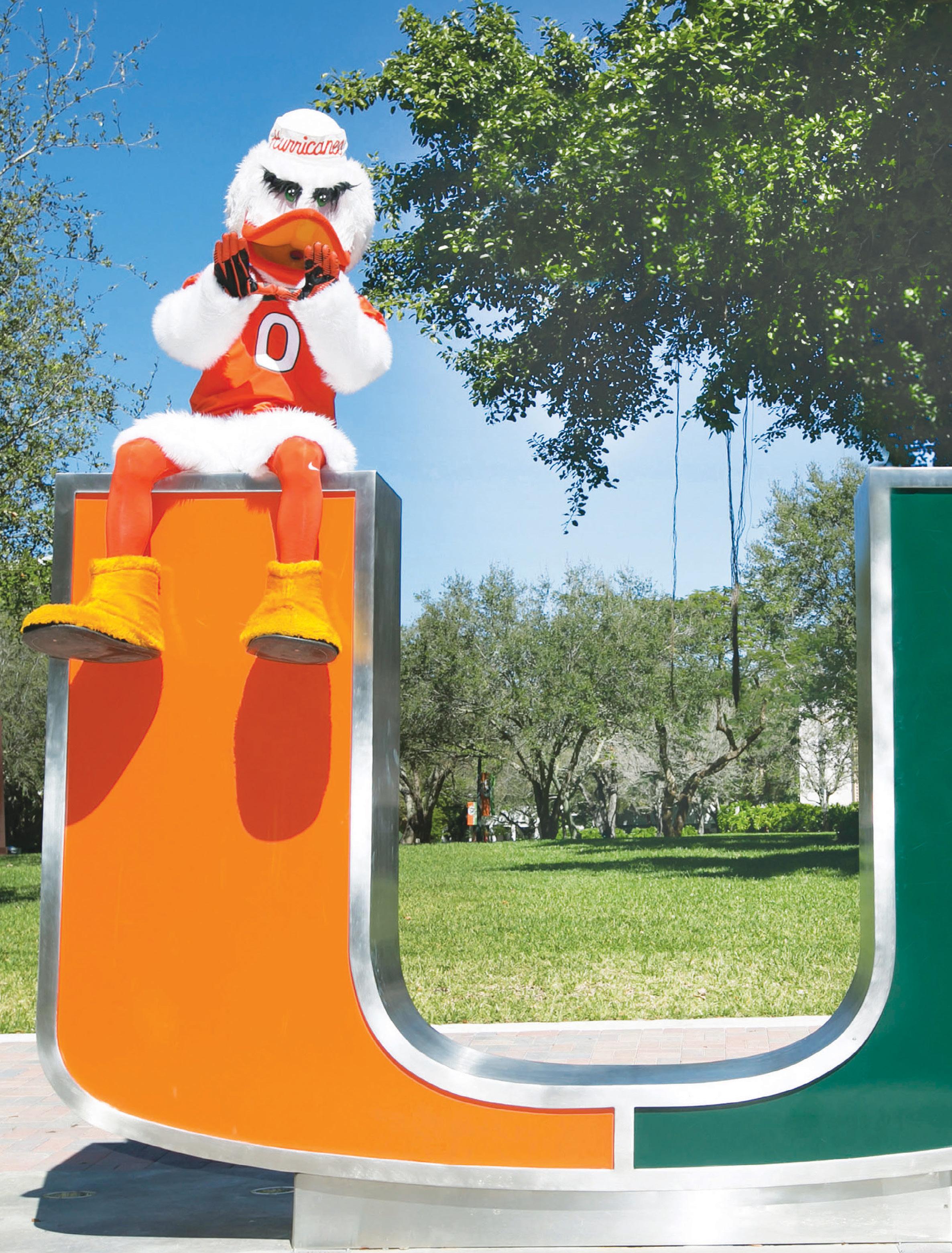 Photo by Jenny Abreu
Photo by Jenny Abreu
JUDD AND LAURA
ZEBERSKY’S, J.D. ’93, PATH TO LEADING ONE OF THE BIGGEST TOY MANUFACTURING COMPANIES IN THE WORLD WAS NOT A TRADITIONAL ONE.
The couple met in 1990 during 1L orientation at the University of Miami School of Law. By the end of the year, they were not only dating but running their own side business, charging attorneys $50 an hour to do legal research. Judd opened a law firm after graduating, and Laura joined a year and a half later. Still, Judd—a business owner at heart who started a boat-
cleaning business in Oyster Bay, New York, when he was still in high school— soon took off to China to explore the possibility of starting a toy company.
Twenty-six years later, Judd is the founder and CEO, and Laura is the president of Jazwares, a multinational company with more than 1,300 employees that manufactures toys, costumes, and pet products for some of the biggest licensors in the world, such as Disney, Star Wars, Marvel, Fortnite, Pokémon, Halo, and CoComelon, as well as their brands including the plush sensation Squishmallows. Their company has expanded to more than 20 offices worldwide, distributes products in
more than 100 countries, and was purchased last year by Berkshire Hathaway, the holding company owned by Warren Buffett.
Despite that meteoric rise, the couple has made a point of sticking to their roots by allowing their employees to explore job opportunities unrelated to their work experience or college degrees. Jazwares offers leadership training, mentorship programs, and life coaching, and actively encourages employees to try new career paths.
“We have lawyers who work in operations. We also have people that started as designers now running our sustainability department,” Laura said.
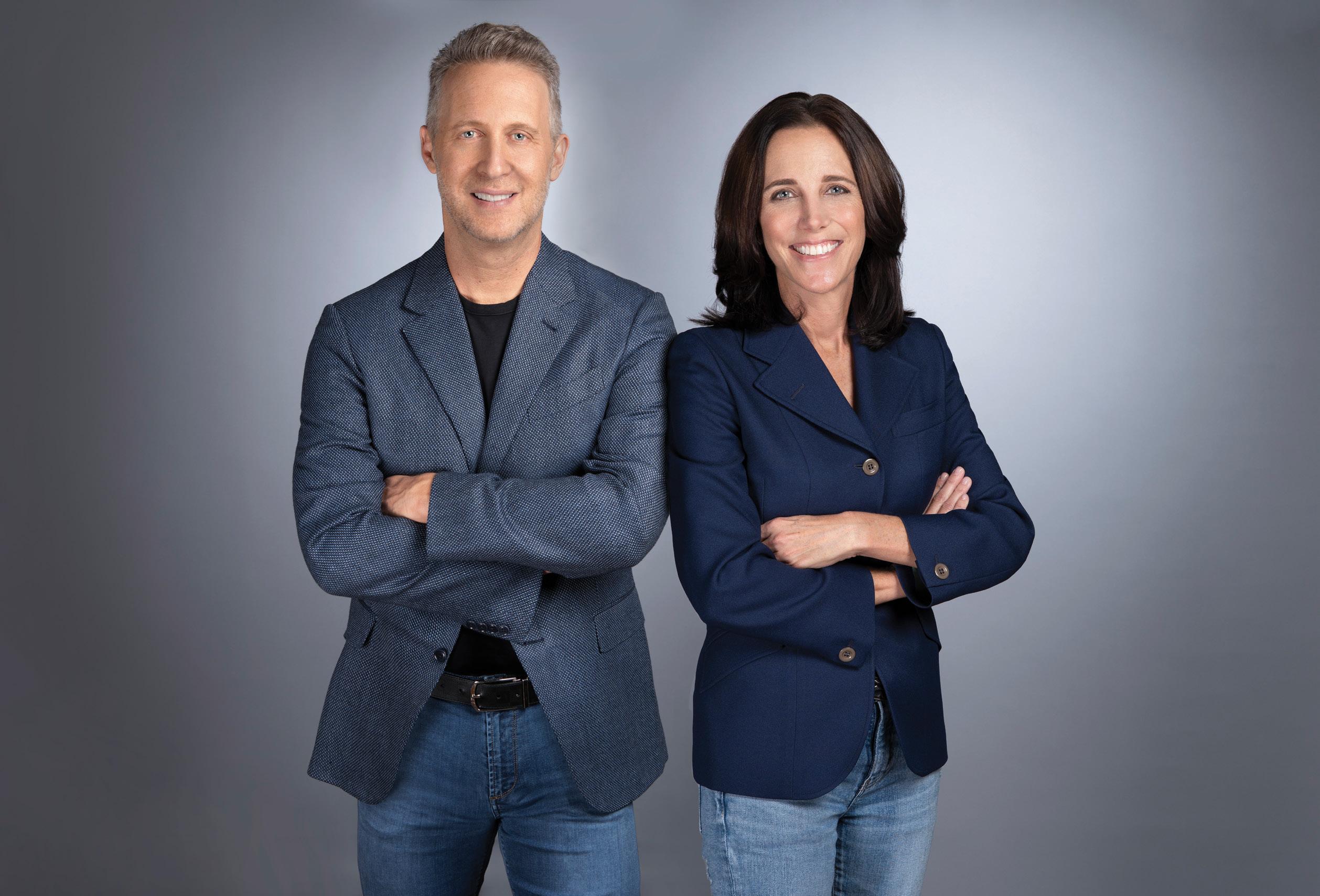
“We offer to rotate people into different roles to help them explore other opportunities and become comfortable in new career areas where they can excel. My path for sure has been a crazy road, but that was because I was given an opportunity and then empowered to thrive and shine.”
The Zeberskys credit their education at Miami Law for much of their success. They say the ability to break down situations, compartmentalize different issues, and identify the best argument or plan of attack all came from their time in Coral Gables. And that’s why they remain actively involved with the school. But like everything else with their career, they do so in their own way.
Laura was a guest lecturer for a class at the U that introduced law students to careers outside of the law. Judd has served on the law school’s Entertainment, Arts, and Sports Law LL.M. Advisory Board and is now a Dean’s Advisory Council member. The couple recently made a gift to the UM School of Law Dean’s Vision Fund because it allows great flexibility in how the money is used, giving the dean the discretion to address changing needs.
And when scanning resumes for new hires, they always keep an eye out for Miami Law grads. “We will give our time to the U,” Judd said as Laura flashed the iconic UM gesture with her hands. “We love the U.”
The last few years have seen their company reach new heights. While the global COVID-19 pandemic destroyed countless businesses and ravaged entire economies, Judd and Laura were happy to see that Jazwares not only endured but continued to grow. With so many families quarantining at home,
“WE WILL GIVE OUR TIME TO THE U,” JUDD SAID AS LAURA FLASHED THE ICONIC UM GESTURE WITH HER HANDS. “WE LOVE THE U.”
parents were buying toys to entertain their bored children.
Jazwares acquired new licenses and businesses and launched new divisions, including costumes, pet toys, and a Squishmallows pet bed that regularly sells out on Amazon. That growth reached the point where they got on Warren Buffett’s radar.
Since 2016, Jazwares operated as a subsidiary of Alleghany Capital Corporation. But last year, Berkshire Hathaway moved to acquire the entire Allegheny portfolio.
At first, Judd and Laura were skeptical about being folded into such a massive company known more for investing in traditional blue-chip companies than toy makers. But after a few meetings with Berkshire Hathway’s leadership, the Zeberskys saw how likeminded they were.
“They are long-term thinkers, they care about leaders, they care about companies. We have always been the same,” Judd said. “In the toy business, things don’t happen right away, so we have always cared about longevity.”
When the deal was finalized last year, Laura called it a “pinch me” moment. The company even created a set of Warren Buffet Squishmallows plush toys at their inaugural showing at the annual Berkshire Hathaway Shareholders Festival to commemorate the moment. “Jazwares is a gem,” Buffett told Reuters last year. “And Judd and Laura are the ideal Berkshire managers.”
The accolades kept coming. In 2023 alone:
¡ Jazwares was included on Fortune’s list of Best Workplaces in Manufacturing and Production
¡ Jazwares was included on Fast Company’s list of Best Workplaces for Innovators
¡ Laura received the Visionary Leader Award, one of the “Wonder Women Awards” granted by Women in Toys, Licensing & Entertainment
¡ Judd was named one of the top global 50 entrepreneurs by The Business Report
¡ Judd and Laura were named the “License Global Influential” of 2023
The company is expanding its footprint in South Florida to manage its continued growth. With space running out in their headquarters in Sunrise, Florida, they’re moving into a new 135,000-square foot facility in Plantation in 2024 that can accommodate the more than 400 employees that work there.
Despite all of that, Laura and Judd remember how it all started. That’s why they have never pushed their children to follow their educational or career paths. Their eldest daughter went to law school in New York and works as a public defender. Their second daughter is a sales manager in California, and their third child started his own technology business.
“Laura and I always encouraged our kids to take courses they may or may not like,” Judd said. “Because all of a sudden, you may find something that you love.”
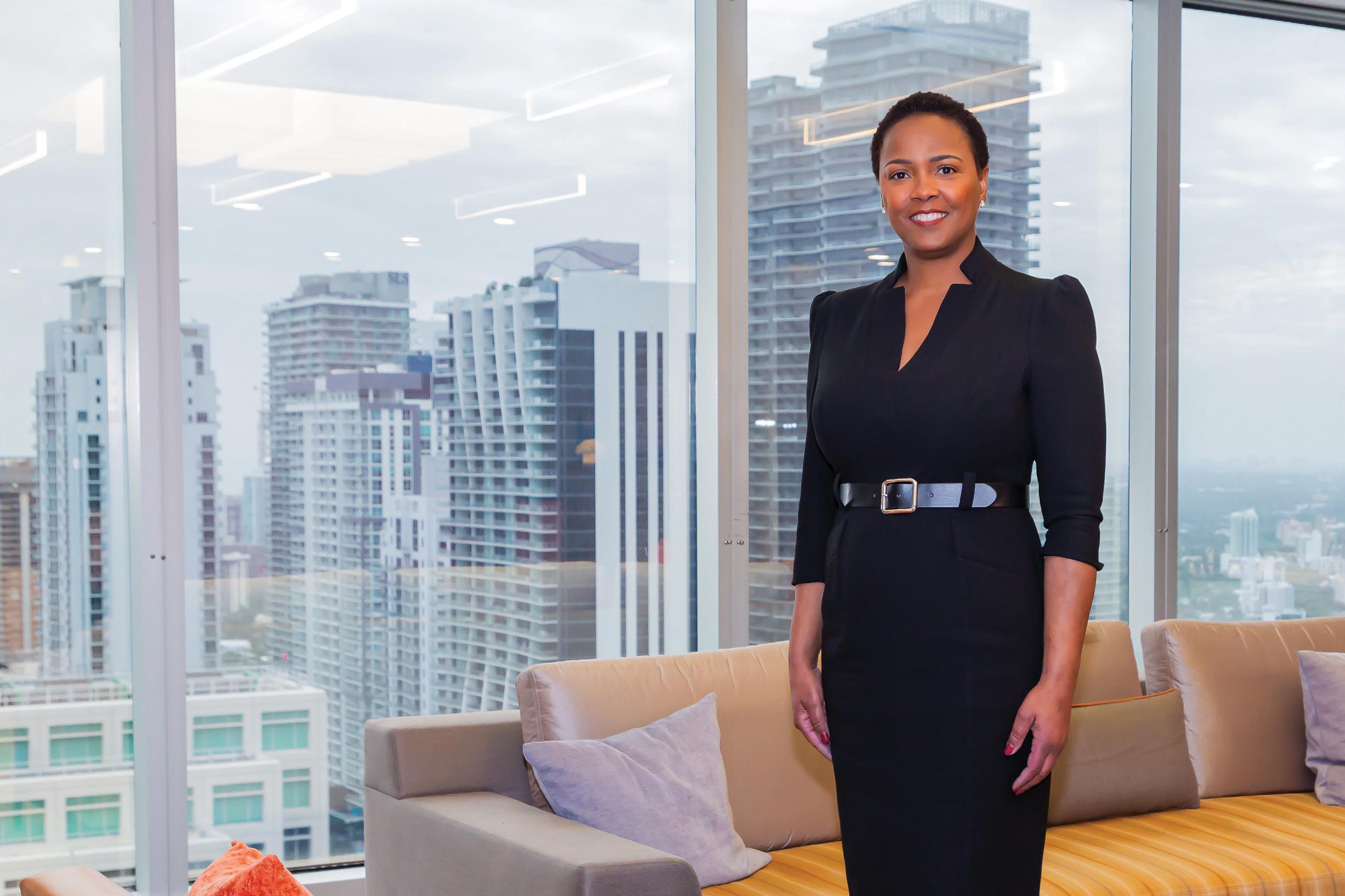 By Alan Gomez
By Alan Gomez
WHEN TIFFANI LEE, J.D. ’97, WAS A YOUNG GIRL, HER FATHER WAS FIRED FROM HIS JOB AS A RESULT OF RACIAL DISCRIMINATION. As the fourth of eight children growing up on a farm in
the rural Florida panhandle, Lee watched her father fight back against his firing while struggling to provide for his family. With little money to spare, the legal challenge was daunting. “The pattern was that he would save up money, get a lawyer, run out of money, not have a lawyer, save up money…,” Lee said.
After several agonizing years, James D. Lee, Sr., won his case. He got his job back and received full back pay. The experience planted a seed that ultimately led Lee to law school.
“For my dad to have won a complete victory, it must’ve been a compelling case,” she said. “If he
had had a lawyer that whole time, it probably wouldn’t have taken so long.”
The memory of her father’s experience lingered in her mind. In 1994, after graduating from the University of Florida and working for two years in South Florida, Lee enrolled at the University of Miami School of Law. She was awarded the prestigious Soia Mentschikoff Scholarship and a scholarship from the Minority Participation in Legal Education Program, which allowed her to be a fulltime day student.
Lee was part of the largest incoming class of Black law students at Miami Law at the time, which sparked complaints about affirmative action and challenges to the Black students’ qualifications to be at the law school. Someone even stole admissions information about those students and gave it to the student newspaper for publication, prompting demonstrations and threats of lawsuits.
Lee said that distressing experience made her all the more determined to excel. She spent hours talking to Professor Robert Waters, the first Black professor at Miami Law, about the injustices she was experiencing. She joined the Black Law Students Association and collaborated with the Association of Caribbean Law Students to fight against the inequities.
“I was much more motivated to demonstrate that I was rightfully there and that I could be as successful as any other law student at UM,” she said. “We were resilient and gritty and determined to be successful.”
Lee not only survived but thrived. She was president of the Honor Council, writing and research editor of the University of Miami Law Review, a Society of Bar and Gavel member,
“I WAS THE FIRST IN MY FAMILY TO GO TO LAW SCHOOL AND BENEFITED FROM SEVERAL GREAT MENTORS,” SHE SAID.
“I FEEL OBLIGATED TO PAY IT FORWARD.”
and a founding fellow of the Center for Ethics and Public Service. In 1997, she was tapped for the Iron Arrow Honor Society.
Lee joined Holland & Knight as a full-time associate in 1997. Shortly after joining the firm, Lee earned a rare opportunity to work directly with Chesterfield Smith, the legendary cofounder. Lee credits Smith with creating unique opportunities for her to learn and grow, making critical introductions inside and outside the firm, and giving great advice. She recalled him introducing her as “my lawyer,” which gave her what she describes as “transferred credibility.”
“That early mentorship and sponsorship by the founder of the firm set me up for success,” she said. “He spoke about doing good and that you can have a great legal career and be somebody in the community.” Throughout her career, Lee has tried to follow those lessons—to do good and be somebody.
Lee has spent her 26-year legal career at Holland & Knight, a global law firm that now has approximately 2,200 lawyers and other professionals in 34 offices worldwide. She concentrated her practice in complex commercial litigation, handling contract disputes, corporate dissolution actions, securities fraud class actions, shareholder derivative actions, and actions alleging various business torts.
Throughout her career, Lee has prioritized doing good inside and
outside the firm. She has provided pro bono representation to foster children, incarcerated persons, and homeless individuals. In the community, Lee is a member of the Orange Bowl Committee, on the board of the Florida Justice Institute, and a member of the Greater Miami (FL) Chapter of The Links, Inc. She also has guided numerous law students and younger attorneys as a mentor. “I was the first in my family to go to law school and benefited from several great mentors,” she said. “I feel obligated to pay it forward.”
Several publications have recognized Lee for her leadership and success, including South Florida Business Journal, Top 40 under 40; Daily Business Review , Top 10 Women in Law; Florida Trend , Florida Legal Elite and Women Leaders in Law; and Super Lawyers magazine. At Holland & Knight, she has led diversity, equity, and inclusion initiatives as the firm’s diversity partner, has served on the Partner Compensation Committee, and will join the senior leadership team as deputy managing partner in April 2024.
Looking back to her time at the law school, Lee is thrilled to see the progress made at her alma mater. The year before she arrived at Miami Law, 27% of entering students were people of color. In 2023, it was 55%. Lee spoke to 1L students during their 2023 orientation. “As a proud UM Law alum, it is great to see how much investment and progress the school has made with respect to diversity, equity, and inclusion,” she said.
And when she thinks back to people who questioned whether she truly belonged at Miami Law, Lee smiles and says: “Sometimes success is the sweetest revenge.”
DAVID CHAPLIN’S PARENTS NEVER PUSHED HIM TO ATTEND A PARTICULAR COLLEGE OR STUDY A SPECIFIC TOPIC, so he applied to several universities and considered different majors. But as he started his senior year of high school, he remained torn.
HIS FATHER, WAYNE CHAPLIN, EARNED HIS
BACHELOR’S DEGREE IN BUSINESS AT THE UNIVERSITY OF MIAMI AND GRADUATED FROM THE UNIVERSITY OF MIAMI SCHOOL OF LAW in 1982. Wayne would become the CEO of Southern Glazer’s Wine & Spirits, a family-owned enterprise that is the country’s largest wine and spirits distributor. David saw how a mix of business and legal education helped his father steer the multi-billion-dollar
company. That convinced David to choose the same educational track: he studied business as an undergraduate, followed by law school.
“My dad set a good example of what you can do and be successful with the background he had,” David said. “It was a good blend. I told myself, ‘If I can arm myself with a similar pedigree, then I feel pretty confident in my skill set.’”
Figuring out where to go was another challenge. David visited Duke,
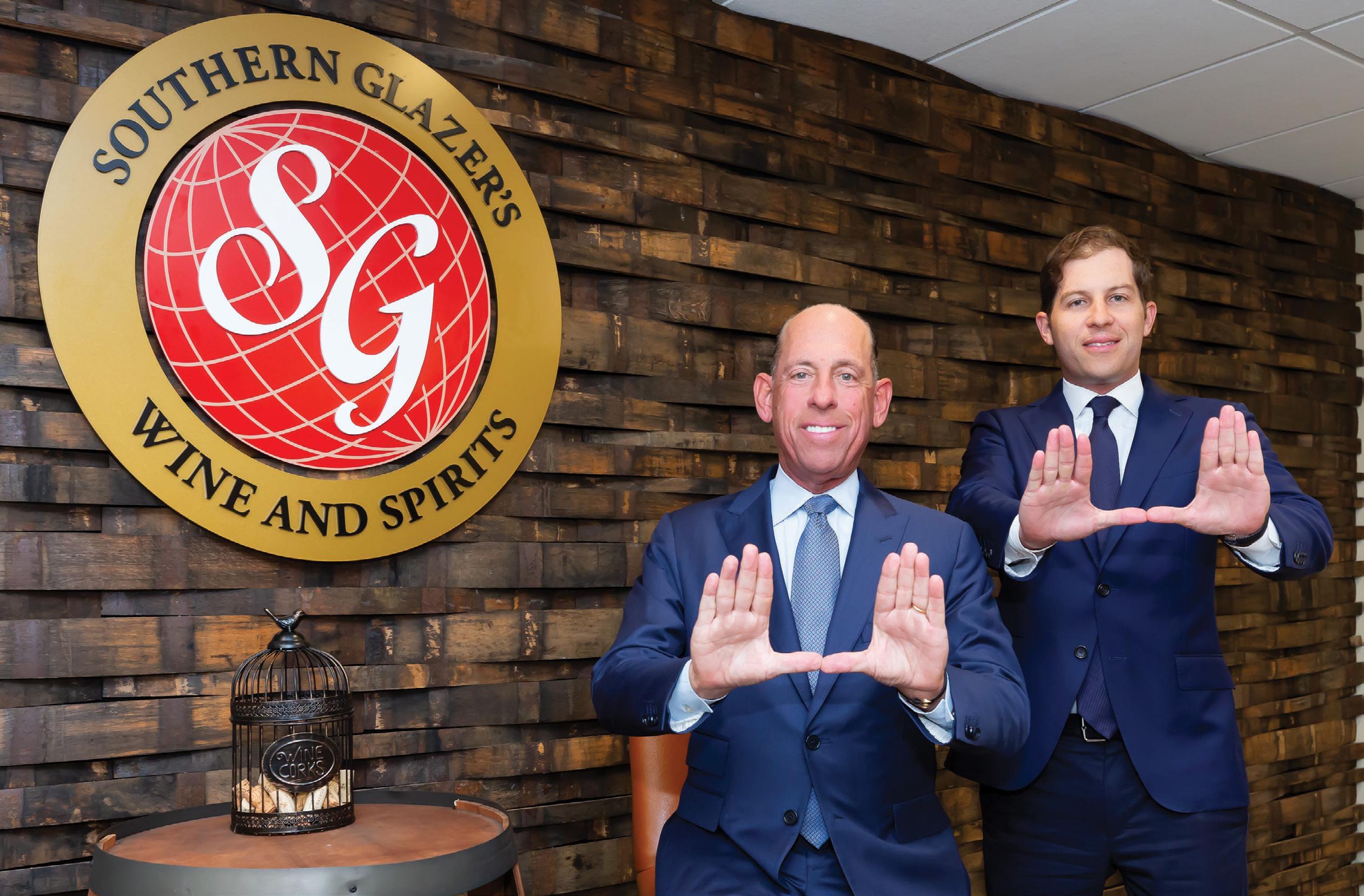
“IT WAS A FEELING I GOT WHEN I WALKED THE CAMPUS THAT THIS WAS THE PLACE FOR ME,” DAVID CHAPLIN SAID.
Boston College, Tulane, and other major universities, but he made up his mind when he toured UM’s Coral Gables campus. “It was a feeling I got when I walked the campus that this was the place for me,” he said.
Once decided, David cruised through his seven years at UM and earned his J.D. in 2013, becoming the latest double ’Cane in the Chaplin family. He went on to join the family business and rose to become Southern Glazer’s chief growth officer, leading its expansion into e-commerce, which has expanded the company’s reach. Now, looking back, father and son each credit their time at UM as foundational to their success.
UM looked a lot different when Wayne started there in 1976. There were fewer buildings, schools, and students, but Wayne said one thing has remained constant: “We had an amazing pool scene.” Despite that continuous distraction, Wayne finished second in his class in business school, his GPA just two-hundredths of a point behind the top student.
What he remembers most, however, is how much he learned and grew in law school. When he started, he was uncomfortable speaking in public, with butterflies always dancing in his stomach. That started changing as he was repeatedly called on by professors who used the Socratic method to engage in intense back-and-forths in class. Then he joined the moot court, forcing Wayne to confront his fears by addressing professors, working
attorneys, and sitting judges who oversaw each round of competition.
“You have to become nimble on your feet,” he said. “The law school changed me as a person and a public speaker.”
David underwent a similar transition during his time at Miami Law, but in a different way. He clerked for U.S. Circuit Judge Scott J. Silverman during his 1L summer and then interned at other law firms during his 2L and 3L summers. He credits that real-world experience, combined with the lessons he learned in class, with his ability to take in vast amounts of information, digest it, and determine which parts are most important.
“In the corporate world, it’s easy to put together a 20-, 30-, 40-page PowerPoint deck, but it becomes a lot more difficult to put a 5- to 10page deck together, to digest what’s important and communicate that out,” he said. “That’s a skill.”
After finishing at the U, David didn’t move straight into the family business. Wayne insisted that each of his three children work elsewhere for a while before coming on board.
David worked at a real estate law firm for two years before joining Southern Glazer’s. Mark Chaplin, another double ’Cane with his undergraduate degree and M.B.A. at UM, worked as a sales representative for Gallo Sales Company before joining Southern Glazer’s. He currently serves as senior vice president of sales and marketing. And Jennifer Chaplin—the lone Chaplin who didn’t attend the University of Miami—graduated from NYU and worked at the William Morris Endeavor talent agency before joining Southern Glazer’s and becoming its vice president of family-owned brands.
“YOU HAVE TO BECOME NIMBLE ON YOUR FEET,”
WAYNE CHAPLIN SAID.
“THE LAW SCHOOL CHANGED ME AS A PERSON AND A PUBLIC SPEAKER.”
David said that outside experience has been invaluable for each of them. “I want to be able to think analytically and add value to a company and not just walk in from getting a degree and thinking I’m going to change the company,” he said. “I wanted to put the work in.”
Wayne said that outside experience has helped ensure the family business will survive long after he retires. “I think we’re in great hands for the future.”
Now working together, Wayne and the rest of the family have continued to support their community and their alma mater. Wayne often does that work with his wife, Arlene, another University of Miami graduate whom he describes as the glue of the family. Wayne co-chaired Momentum, a fundraising drive that raised $22.5 million for the Law School, and then co-chaired Momentum2, which raised an additional $30.5 million. Wayne has served as the chair of the Visiting Committee for Miami Law for over 10 years and is currently a member of the Dean’s Advisory Council
Wayne and Arlene established the Chaplin Family Scholarship, which awards full tuition for one student every three years. And David recruited some classmates to fund another scholarship in 2018. When asked why they continue donating their time and money to the university, David put it simply: “We’re a Hurricane family.”
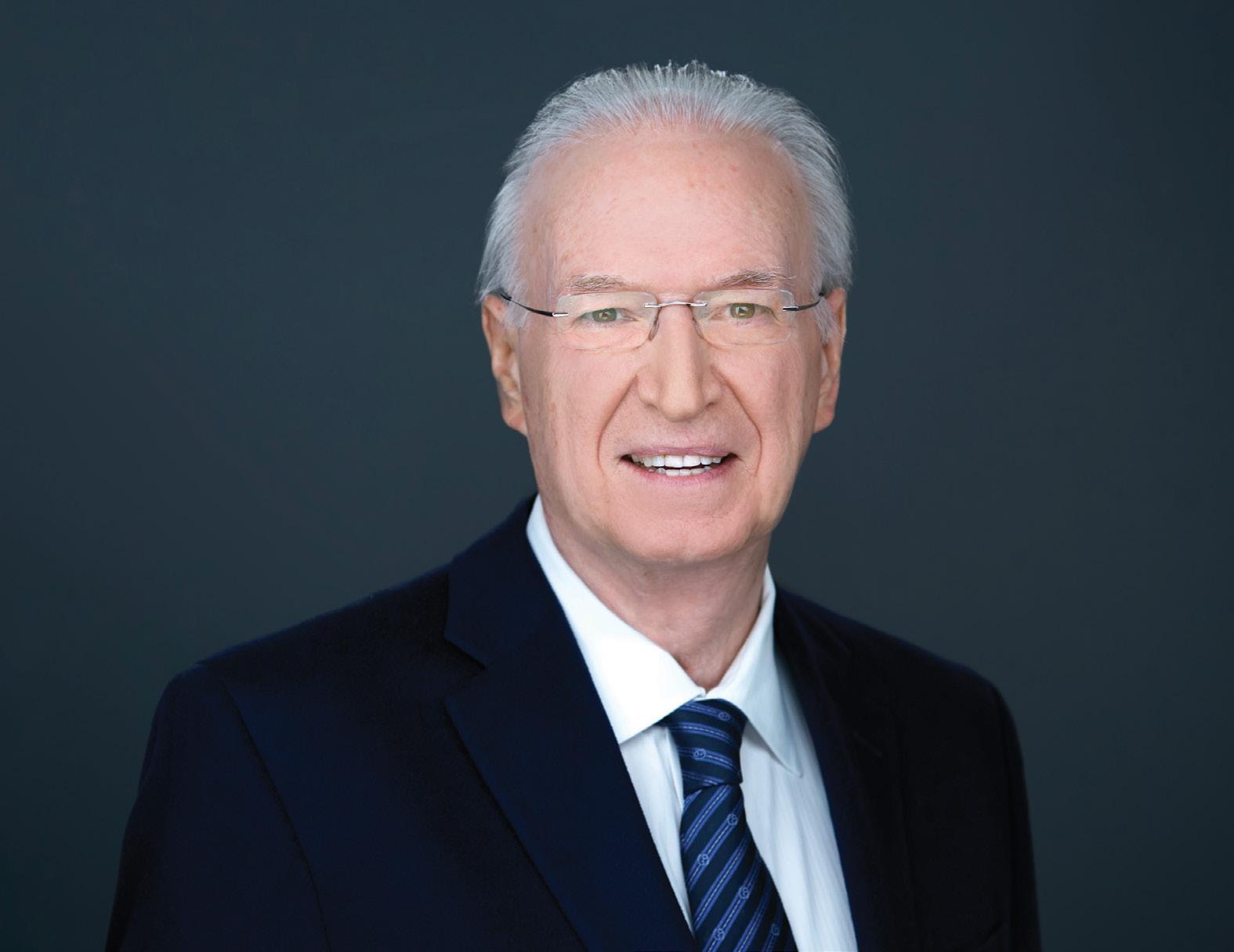 By Alan Gomez
By Alan Gomez
ROY BLACK, JERRY HOLLO, AND ANA VEIGAMILTON ENROLLED AT THE UNIVERSITY OF MIAMI FOR VERY DIFFERENT REASONS: Black wanted to be an oceanographer, Hollo missed the warm weather, and VeigaMilton knew there was no way a Cuban girl could convince her parents to leave Miami.
Yet all three joined an exclusive group: double ’Canes, who graduated from the U undergrad and Miami
Law. In the decades since, they’ve remained fans of and advocates for the U, they’ve sent their children there, and each of them, in their own ways, has continued giving their time, talent, and resources to the University of Miami.
“I attribute the growth of Miami not as a party place, but as a real city of substance, partly to the growth of the University of Miami,” VeigaMilton said. “I am an ambassador of the university, and I’m thrilled that my family and I can be a part of it.”
BLACK, B.S. ’67, J.D. ’70, who has become one of the most high-profile defense attorneys in the country, started his journey at the University of Miami with dreams of the ocean. His stepfather was British and moved the family from Jamaica to the Bahamas when Black was a boy, exposing him to island life.
“I did a lot of ocean swimming, so I thought I wanted to go into oceanography,” he said.
He started as a chemistry major at the U, taking classes in what was then known as the North Campus (now the Coral Gables Library). But he changed course when he took a series of government classes (now called political science). He loved doing research and writing about a wide variety of subjects. And then, when deciding what to do after receiving his bachelor’s degree, he recalled another lesson he learned in the islands.
Black had a math teacher in Jamaica who had it out for him.
“Either because I was white or I was American, or possibly because of both,” he said. The teacher constantly picked on Black, ordering him to the blackboard to solve equations based on English currencies like pounds, shillings, and pence.
“He did it so he could embarrass me,” Black said. “That drove me crazy. I grew to hate petty authority. That
generated my interest in going into the law, into becoming a public interest lawyer, a public defender.”
So, Black applied to the University of Miami School of Law and was accepted the next day. While there, he grew to love and hate one class in particular: a contracts class taught by the legendary Professor Richard Hausler, a 52-year veteran of the school who specialized in the Socratic Method.
“You would sit there on the edge of your seat praying, ‘Don’t call me,’” Black said. “But it was the greatest education because you had to be prepared, you had to know the subject matter intimately, you had to be able to articulate it, you had to work under pressure, you had to be able to answer his questions. He was one of those once-in-a-lifetime professors…that makes an indelible mark on you.”
After graduating, Black went straight to work at the Miami-Dade County Public Defender’s Office. From there, he built a career defending some of the most controversial defendants in recent memory, including Jeffrey Epstein, Rush Limbaugh, William Kennedy Smith, and a long list of serial killers, drug traffickers, and billionaires facing all kinds of charges. Black says he’s taken on those cases because of the lessons he learned in Jamaica and later as a public defender representing primarily Black and Hispanic people.
“You get into that kind of thinking where it’s you and your client against the world, against the state, and later on, against the federal government,” he said. “It’s a mindset one adopts to survive.”
The other constant throughout his career has been the classes he teaches at Miami Law. Three years after graduating, he started teaching a workshop focused on federal
“I REALLY ENJOY TEACHING IT,” BLACK SAID. “YOU GET THESE VERY BRIGHT KIDS IN THERE, SO I’M TRYING TO PASS IT ON TO THE NEXT GENERATION.”
evidentiary rules. That has morphed into a training course on how to argue at trial, running his students through mock witness examinations and exchanges with a judge. Black said that’s his favorite way of giving back to the school that launched his career.
“I really enjoy teaching it,” he said. “You get these very bright kids in there, so I’m trying to pass it on to the next generation.”
The road to the University of Miami differed slightly for HOLLO, A.B. ’90, J.D. ’93.
As the son of real estate mogul Tibor Hollo, who founded Florida East Coast Realty and built many of Miami’s most iconic buildings, Jerry Hollo always knew he wanted to be part of that legacy. But he wanted to get his education and earn his keep to contribute and grow the family business.
At first, that quest took him north. After growing up in Miami Beach, Hollo wanted to explore another part of the country, so he started at George Washington University. He loved the school and the energy of living in Washington, D.C., but he soon grew tired of going to school in the crowded capital city, so he transferred back home and started at the University of Miami. “There is no campus at GW. It’s a true city school,” he said. “To have that campus at UM was a much different experience.”
His school finally decided, Hollo dug into the work. He realized early on
that he wanted to attend law school, so he picked a major that he thought would translate well: philosophy. “It requires you to do a lot of writing and critical thinking,” he said. After earning his bachelor’s degree in 1990, he entered Miami Law.
As a law student, Hollo interned for U.S. District Judge James Lawrence King during a hectic period. Federal agents arrested five judges for corruption in “Operation Court Broom,” and Judge King oversaw some of the cases. “I wanted an opportunity to see different things, so it was an incredible time to be working with him,” Hollo said.
But for most of his time at Miami Law, Hollo crafted a unique schedule where he worked at the family business while attending school simultaneously. He’d spend at least 15 hours a week at Florida East Coast Realty learning about construction, acquisitions, and property management and then spend the rest of his time attending class, studying, and writing his papers. “Essentially, I created my own LL.M. development program,” he said.
That combination of development work and legal education allowed Hollo to visualize a deal from all sides. “You need to understand where you can get caught in quicksand,” he said. “[Classes at Miami Law] taught me to look around the corners on deals and contractual issues.”
After graduating from Miami Law, Hollo worked at a transactional firm for a few years before finally going fulltime at Florida East Coast Realty. He now serves as co-CEO with his brother, Wayne Hollo, and has helped guide the company as it continues expanding and remaking Miami’s skyline.
And all the while, he’s continued helping his alma mater. Hollo serves
on the School of Law’s Robert TraurigGreenberg Traurig Real Property Development LL.M. Advisory Board, his family’s company is a sponsor of the school’s annual Real Estate Impact Conference, and Hollo continues spreading the gospel of the University of Miami to anyone who will listen.
“The university is really wellpositioned,” he said. “I get calls from people all over the country asking if I can help get their kids into the school. It’s like nothing I’ve ever seen before. We need to build on that.”
VEIGAMILTON, B.S.E.E. ’87, J.D. ’93, briefly considered going away for college.
Her family left Cuba when she was a baby and eventually settled in
“YOU NEED TO UNDERSTAND WHERE YOU CAN GET CAUGHT IN QUICKSAND,” HOLLO SAID. “[CLASSES AT MIAMI LAW] TAUGHT ME TO LOOK AROUND THE CORNERS ON DEALS AND CONTRACTUAL ISSUES.”
Miami, where VeigaMilton excelled at Southwest Miami Senior High. She earned the highest GPA in MiamiDade County (5.3) and got a partial scholarship to Duke University, but when she imagined telling her parents, she knew what to expect. “Tears of sadness,” she said.
So VeigaMilton set her sights on the University of Miami and earned the Isaac Bashevis Singer Scholarship—one of the premier scholarships awarded
to exceptional and academically accomplished high school seniors. At first, she followed in the footsteps of her father, who spent his career as a telecommunications engineer in Cuba, Spain, New Jersey, and South Florida. VeigaMilton studied electrical and computer engineering and became very involved on campus, joining several honor societies and the Society of Women Engineers. She helped organize social events for the reclusive engineering students. “The girls ruled the school,” she said with a laugh. “It was a great experience for me.”
After graduating in three years, she started working for BellSouth as a strategic planner in the company’s Fort Lauderdale office and later on the operations side in Miami. However, she found her education lacked rhetoric and

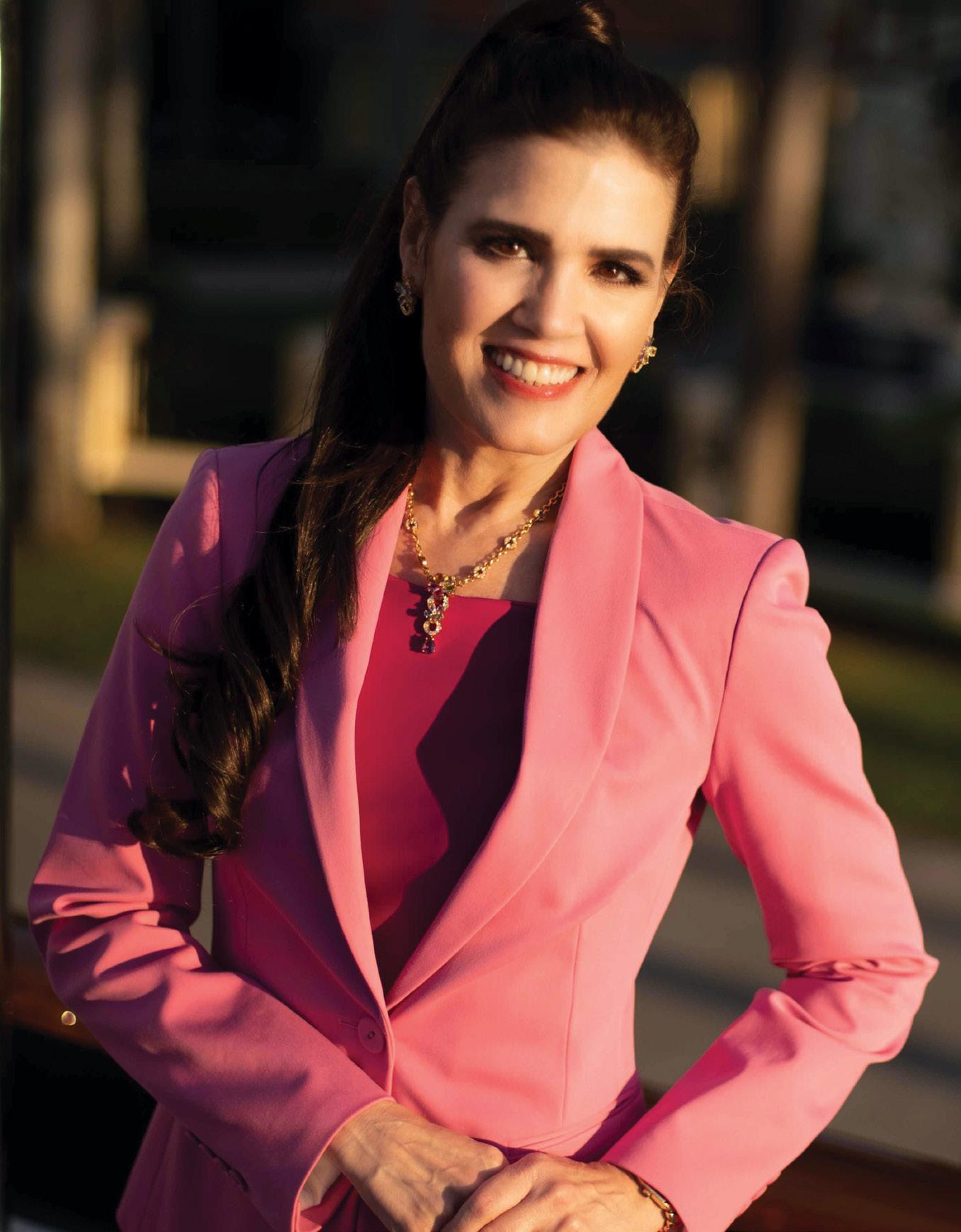
language arts and yearned to return to school. She was interested in something other than the business degrees most people gravitated toward during the economic boom of the late ’80s.
Instead, she was determined to go to law school, was accepted at Miami Law with a full Dean’s Merit Scholarship, and was thrilled when she realized that her engineering education, which was filled with analysis and problem-solving, was perfect preparation for law school. “The logic
is exactly the same, but you use your words instead of numbers to make your argument,” she said.
VeigaMilton married just before law school and gave birth to her first son in early 1993 as a 3L. She had the option to postpone graduation until winter, but VeigaMilton pushed through, graduating on time, summa cum laude. She was honestly too exhausted to study for the Florida Bar exam. Still, she passed on her first try, a feat she credits to her Florida constitutional law class.
“I WAS ON THE RECEIVING END OF PHILANTHROPY, AND THAT’S WHY PHILANTHROPY IS SO IMPORTANT TO ME, TO HELP A STRANGER ON THEIR PATH—TO HELP CATAPULT SOMEONE’S FUTURE,” VEIGAMILTON SAID.
After becoming a member of the Florida Bar, she practiced family law, taking pro bono cases. But she has since joined the leadership of the business started by her father-inlaw—United Property Management— and presides over the charitable organization created in his name—the José Milton Foundation. She has also become involved in various nonprofits, including the South Florida Red Cross, United Way Miami, Jackson Health Foundation, and Zoo Miami. She is a past president of the University of Miami Citizens Board and is on the board of trustees, currently chairing the Academic Affairs Committee. “I look for gems in the community that help elevate Miami,” she said.
At the University of Miami, she created a scholarship that marries her two educational loves: science and the law. The Ana VeigaMilton and Diana Milton Endowed Tech Law Scholarship is also named after her daughter, who completed her undergraduate degree at Georgia Tech and graduated from Miami Law in 2023. Her engagement with the University of Miami, VeigaMilton said, is her way of giving back after she received so much scholarship money to attend the University and Miami Law.
“I was on the receiving end of philanthropy, and that’s why philanthropy is so important to me, to help a stranger on their path—to help catapult someone’s future,” she said.

Seeking part-time faculty positions for our forthcoming ONLINE MASTER OF LEGAL STUDIES program for non-lawyers
We are looking for creative and innovative practitioners who are interested in developing and teaching online courses for our MLS program launching this year. Courses will be taught predominantly asynchronously (not in real-time) in a highly interactive manner and developed with one-on-one help from an in-house instructional designer.
JD degree required
Online teaching experience preferred but not required
Areas of expertise desired:
» Employment Law/Human Resources Compliance
» Healthcare Law Regulation and Compliance
» Real Estate Law

WE ARE HERE FOR YOU!
The Law Alumni Association is open for business and available to you. Please reach out to us at 305-284-3470 or by email at alumni@law.miami.edu

The University of Miami School of Law prepares 21st century lawyers to practice in an increasingly complex and connected world. Educating the next generation of capable and honorable interdisciplinary problem-solvers is possible because of the generous investment alumni and friends make in Miami Law. There are many ways you can help make difference.


It is a great honor and privilege to serve as the 2023-2024 president of the University of Miami Law Alumni Association. During the second half of my term, I remain committed to providing opportunities for alumni to network with one another, grow their practices, and engage with the law school and student body. The LAA is here for you.
We are strengthening our alumni outreach throughout the country and internationally with the support of our National Advisory Council. Council members provide resources to their local communities ranging from advice on the best places to watch a ‘Canes game to potential employment opportunities. Your interest in joining the NAC is welcome, and we hope to hear from you soon.
Additionally, we are using our LAA electronic newsletters, personal communications, and social media platforms to recognize alumni, faculty, and students, share events, and connect with you. Please continue to share your successes with us and participate on the various platforms.

We have renowned alumni leading our courts, government, law firms, companies, and community organizations, and we want you to connect with each other at our events. Join us this spring at our Dade and Broward Judicial Receptions, our community fair, or one of the many law school events on campus.
We know the importance of recognizing our prominent alumni in all fields of endeavor. This fall, we recognized so many with Alumni Achievement and Alumni Leadership Awards as well as We Are Proud of You awards, and we will continue to do so. We thank our distinguished members of the Bench and Bar for their service; they are role models for our students and future generations.
We are grateful to the deans and faculty of Miami Law. They teach, mentor, and support our students and our alumni and can serve as great resources throughout your practice.
Thank you to our alumni leaders and our alumni boards. Your support is essential to student and faculty recruitment, and student and alumni placement. You are always there to answer the call of Miami Law, serving as volunteer coaches and judges for moot court competitions and trial teams, and supporting our award-winning clinics.
If you are not already involved, please consider sharing your time and talents. And, if possible, please contribute financially to the law school. Our alumni community is stronger than ever, and we are accomplishing so much by working together. We could not do it without you!
The LAA welcomes your feedback and ideas. Please contact me at stephanie.carman@gray-robinson.com or via Georgina Angones, Assistant Dean, Law Alumni and Community Relations at gangones@law.miami.edu to share your thoughts.
I look forward to hearing from you and seeing you at our upcoming events.
Go ‘Canes!
Warm
Regards, Stephanie L. Carman, J.D. ’01 President, University of Miami Law Alumni Association Shareholder, GrayRobinson
Stephanie L. Carman, J.D. ’01 President, University of Miami Law Alumni Association Shareholder, GrayRobinson
“I truly thought I had zero chance of getting accepted to Miami Law,” begins the HONORABLE RICHARD V. MARGOLIUS, AKA RIC ZWEIG, J.D. ’73. At the time, Margolius had been attending Ithaca College in New York while actively working as a booking agent in the post-Woodstock musical scene. “I was making good money as a booking agent,” he shares, “and I was far from a ‘fastidious student,’ if you know what I mean. I believe my cumulative average was around a 2.2. A graduate degree was probably one of the furthest things from my mind.”
Fortunately, those close to Margolius all saw a more fantastic future for him. Friends of his would often tell him he would make a great lawyer because of his ability to discuss or argue a particular subject intelligently. A trusted professor, Robert Kurlander, convinced the young Margolius to at least apply to law school. “To call my application adventurous would be an understatement,” Margolius recalls. “It was already late into the summer, July or August, and most applicants had already been accepted and made their decisions. There were very few spaces left anywhere that late in the game.”
Margolius says he felt compelled to apply to law school anyway because no one had ever encouraged him to pursue such a lofty goal. He chose not to live his entire life wondering, “What if.” When the School of Law responded with an acceptance just a few weeks later, he didn’t initially believe it. “In fact, I even called to verify,” he says, “because surely it must have been a mistake.” It wasn’t a mistake, of course, and he moved down to Miami without a place to live and only a little bit of savings and the funding from his GI bill.
Throughout the rest of his studies and into his professional life, the hand of fate kept working in his favor. From the kind Ms. Osman, who rented him an apartment for $40 a month instead of the advertised $100, provided he would also cut the grass, to the Honorable Gerald
Wetherington, who was a professor with Miami Law at the time and would prove instrumental in Margolius earning his degree.
“Gerald Wetherington wasn’t even one of my professors, but he stepped up for me at a time when I needed someone the most,” Margolius explains. “There I was, only a week or two from graduation. My family had already made travel arrangements to come down. Then I find out I’m not going to pass a required course because a paper I had turned in had gone missing. I believe I was sitting in the hallway on the floor when Wetherington noticed me. I can only imagine how forlorn I must have looked. He came with me to the professor of the class and negotiated that I could take an exam in lieu of the paper.” He passed and graduated, but Margolius never forgot that simple act of kindness, and it was all the more meaningful when Wetherington swore Margolius in as a circuit court judge.
“And those were just a few of the legal greats I had the honor of being surrounded by in the Miami Law program,” he continues. “Phillip Hubbart and Bruce Rogow were giants and true champions of the ideals that made me interested in law.”
In the Miami-Dade Public Defender’s office, Margolius would work under Hubbart and his successor, Bennett H. Brummer. From there, he would meet other prominent
“Without everyone who has been in my corner over all these years, my life would look very different.”
“Even if I had never graduated, I would still be indebted to the University of Miami for all it has given to me. I’ve done well in all aspects of life, and it’s all because of UM.”
members of the Miami legal community, including Judge Manny Crespo, Osvaldo Soto, Jose A. Villalobos, and “countless others” who would continue pushing Margolius toward more opportunities and achievements. Margolius reflects on all of it fondly.
“Without everyone who has been in my corner over all these years, my life would look very different. I would never have considered a judgeship, nor would I have spent so many wonderful years in the courtroom, or on the bench [Margolius was part of more than 500 jury trial cases in his career].”
Since his retirement in 2001, Margolius has returned to one of his first passions, music, donning a new name, Ric Zweig (his mother’s maiden name) to go with the new career. To date, his time as a singer/songwriter/guitarist has yielded six albums with the rock band Fresh Air and several solo endeavors, including 10 YouTube videos, and he’s still performing.
Not bad for a guy who almost got kicked out of college in the late ’60s for having a girl (his fiancée at the time) in his dorm room. He says he never would have guessed how the stars would align in those days.
As for his generous gift to Miami Law, Margolius offers the following: “Even if I had never graduated, I would still be indebted to the University of Miami for all it has given to me. I’ve done well in all aspects of life, and it’s all because of UM.”
The testamentary gift will create an endowed scholarship fund designated the Richard V. Margolius, aka Ric Zweig Endowed Law Scholarship. He hopes that by providing a means to afford a Miami Law education, others will have the chance to chase the tremendous opportunities he has been fortunate to encounter. He also would love to see scholarships awarded to students like himself, those with a background or interest in music, those who would like to pursue careers in the judiciary or legal services, and those seeking to pursue music or entertainment law.
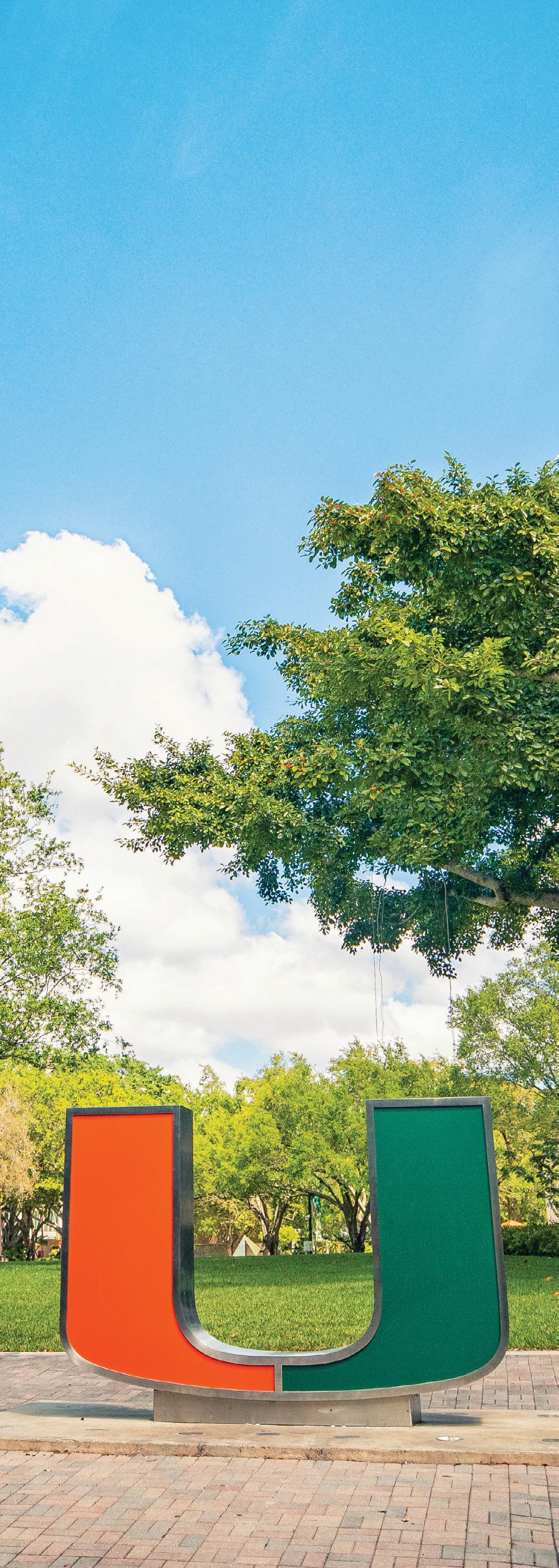
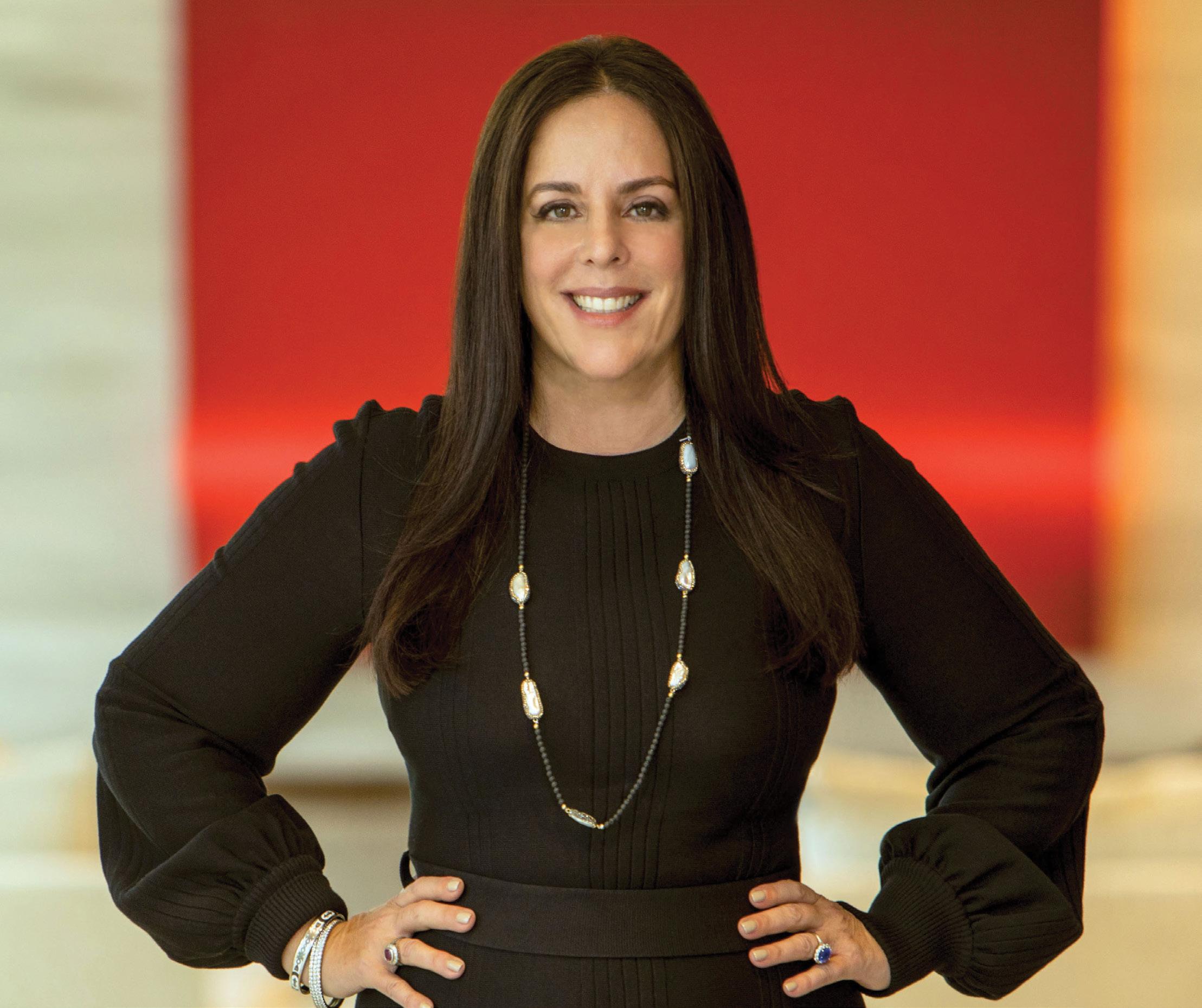
Aristotle once said, “For the things we must learn before we can do them, we learn by doing them.” It is a concept central to mock trials in any law school environment, especially at the University of Miami, which prides itself on preparing students to begin making immediate impacts in the field upon graduation. To date, the Miami Law Mock Trial Team has consistently competed at a high level, finishing as finalists against strong opposing teams.
The program hopes to continue to place high in tournaments and earn the top award on a regular basis. That is why it is so exciting that YVETTE OSTOLAZA, A.B. ’86, J.D. ’92, Sidley Austin LLP’s management committee chair, has generously established The Yvette Ostolaza Mock Trial Endowment in support of mock trial and litigation skills for Miami Law students.
“With rising costs and inflation, it is especially crucial for alumni to make sure that they are giving back to the school so that other students can benefit from the same programs that existed when we ourselves attended.”
Ostolaza was a member of the mock trial and moot court while attending the university and was a member of winning and successful teams.
“That experience,” she says, “along with the litigation skills clinic prepared me so well for a career in trial work that I felt confident in pursuing a career in litigation and have been enjoying it for the past 30 years.”
While she admits it was challenging, she recalls having dedicated educators to guide the team. “Professors [John T.] Gaubatz and [M. Minnette] Massey were wonderful professors who did an excellent job of teaching us the fundamentals of
critical thinking in their specific areas of expertise,” she shares. “Professor [Terence] Anderson was also an impressive mock trial coach. At this point in my career, I’m grateful to be in a position to establish an endowed fund for the mock trial program that I benefitted from so much when I attended the University.”
The endowment, which will be used to fund costs associated with mock trial competitions, including out-ofstate travel, case materials, entry fees, and more, will be commemorated with a plaque to be installed at the Law School. The trial team will also be named in honor of Ostolaza.
“The mock trial team has always done quite well thanks to the professors and volunteers in the Miami community who prepare students for the courtroom experience,” Ostolaza continues. “I hope that the endowment in support of the mock trial team enables the University to enter additional competitions in the future.”
During her years with Miami Law, Ostolaza also had the distinction of being a member of the University of Miami Law Review. She recalls with pride being able to publish a case note on AIDS discrimination when the existing law had yet to evolve. The article and her note are still cited today in many cases. She was also a founding member of the University of Miami Business Law Review along with James Gassenheimer, J.D. ’92.
However, all these achievements, like currently serving on the Dean’s Advisory Council, were only possible for Ostolaza with the support of Miami Law’s generous alumni donors.
“I was fortunate to receive an academic merit scholarship while attending the School of Law. If I had not, it would have been difficult to attend UM,” she recalls. “At the time, there were other universities offering me scholarships, and ultimately, the opportunity to have both a scholarship and the option to stay with such a strong academic program so close to home was an ideal scenario.”
Ostolaza also appreciates the thriving Miami legal community that allowed her to participate in rewarding internship programs she credits with further preparing her for her 30-year career in private practice.
The Yvette Ostolaza Mock Trial Endowment is another example of alumni involvement helping to pave the way for the University of Miami’s ongoing legacy as a leader in all fields of academic excellence. For Ostolaza, the donation is vital to the Law School continuing to rise in stature and recognition.
“To compete as a law school, it is important that Miami Law receives endowments that can support special programs. With rising costs and inflation, it is especially crucial for alumni to make sure that they are giving back to the school so that other students can benefit from the same programs that existed when we ourselves attended. This will make sure we attract and retain top students.”
 By Andi Speedy
By Andi Speedy
When STEPHEN L. COHEN, J.D. ’97, was about to enter his second year at Miami Law, he found himself at a crossroads. “I was advised by several people in my life to try to transfer to a ‘higher-ranked’ law school,” he recalls. “I was very happy at Miami and had just made
University of Miami Law Review, but I appreciated that certain law schools in N.Y. or D.C. might increase my career options in those cities. I was profoundly concerned about my educational loans—both from college and law school—and needed to maximize my career opportunities. I was deeply conflicted.” In discussing his concerns with the Dean’s office, Cohen was happy to learn that scholarships were available based on specific academic achievements and he was able to continue his studies at the School of Law through The Paul R. Gordon Scholarship Fund and The Paul B. Anton Scholarship.
“I made amazing friends in Miami and was excited to continue my education and serve on Law Review,” he continues. “These scholarships, given my financial circumstances, unquestionably made a difference in my decision to stay at Miami Law and become a proud graduate of the U. Putting aside how happy I am with my education, I am blessed with lifelong friends that I made at UM that have been an important part of my life in ways that were not imaginable back in 1995.
“I have never forgotten the generosity of those families and what it meant to me that they would share their funds as an investment in my future,” he said, “and always hoped that I would be fortunate enough one day to do the same. I feel incredibly fortunate in the trajectory of my career since leaving UM, having had the opportunity to serve in government and private practice while repaying my substantial student loans. I am inspired to help make the same opportunity available for future rising 2Ls so that they may choose to stay and contribute to our community rather than taking their skills elsewhere.”
This year, Cohen followed through on that inspiration by establishing an endowment for The Stephen L. Cohen Endowed Law Scholarship. The aim is to provide highachieving 1L students with the means to stay at Miami Law without taking on additional or burdensome educational debt. Cohen also says the scholarship might support those eager to pursue careers in public service after graduation (as he did) without feeling pressured to take higher-paying entry positions to repay student loans.
After graduation, Cohen worked as a U.S. Department of Justice trial attorney and spent nearly a dozen years with the U.S. Securities and Exchange Commission, rising from assistant chief litigation counsel to senior advisor to the chairman and, ultimately, associate director for the Division of Enforcement. He is now a partner at Sidley Austin LLP and is the global practice leader of the Regulatory and Enforcement Group.
“There are many ways to make a difference through scholarships of any size, and I encourage folks to reach out to the school if you are grateful for your legal career and would like to pay it forward.”
As for his own scholarship experience and what it meant to stay with and graduate from Miami Law, Cohen offered the following:
“The diversity of experience of the professors and the students is one of the richest parts of UM as a law school. My law career has allowed me to practice nationally in multiple different environments at different time periods. [Studying] with people who mirror those different environments helped me appreciate different experiences and different ways of thinking about issues and even provided friends to visit across the country.
“I also appreciated that Miami as a city attracts really talented professors from some top law schools and adjunct professors with deep experience to share as a complement to my traditional legal education,” he said.
The Stephen L. Cohen Endowed Law Scholarship is part of the University’s Centennial Law Scholarship Challenge, which seeks to establish 25 new named scholarships by the University’s Centennial in 2025. Cohen shares some motivation for those considering donating to Miami Law as a scholarship endowment or similar gift.
“Scholarships allow the school to invest in someone’s promise based on their talents or circumstances. They create important opportunities for people who might otherwise need to take a different path. They create important opportunities for the school to maximize the potential for a deep and diverse set of backgrounds and skills in our student body, which greatly enriches the law school experience. There are many ways to make a difference through scholarships of any size, and I encourage folks to reach out to the school if you are grateful for your legal career and would like to pay it forward.”
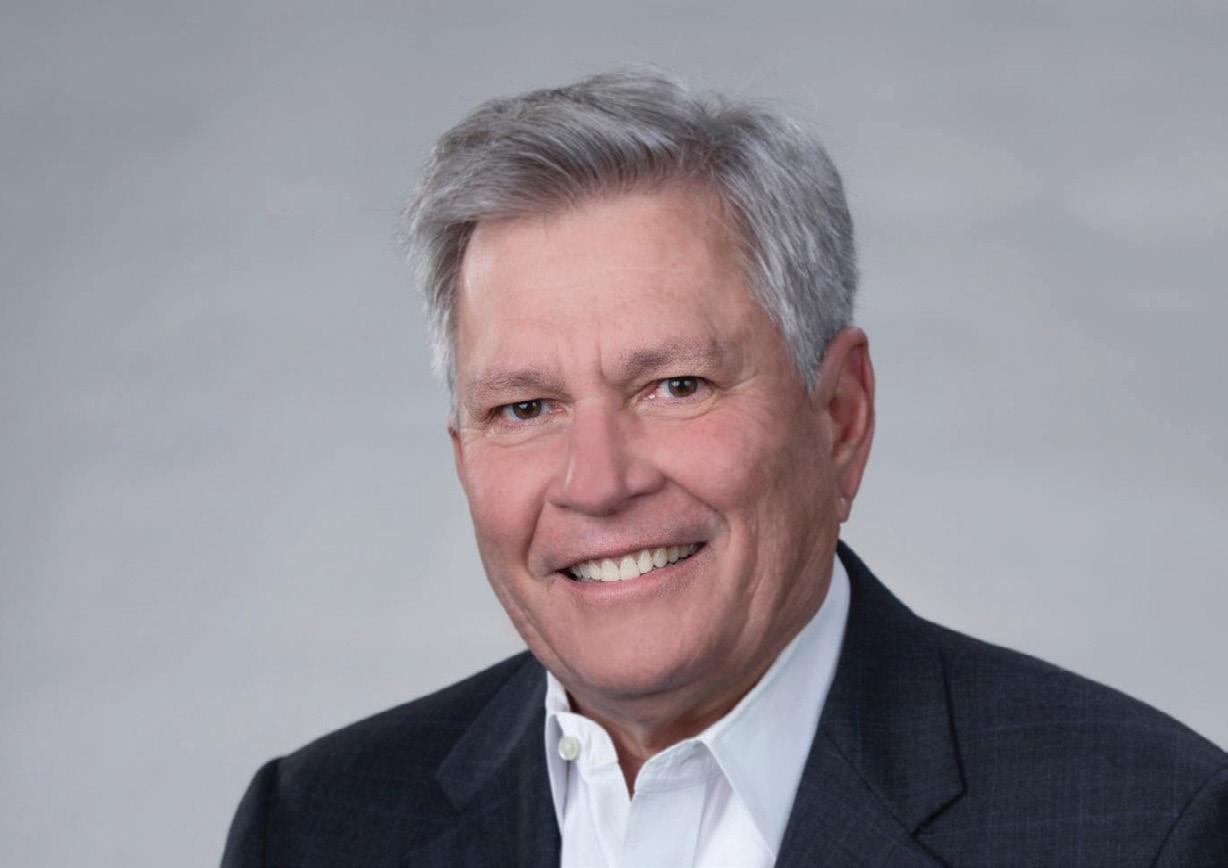 By Andi Speedy
By Andi Speedy
Like many Miami Law alumni, CARLOS M. HERNANDEZ, J.D. ’79, feels he can directly attribute much of his professional success to the generosity of donors who helped make his law school and undergraduate education possible. “My story is not unique,” he said. “I was a fairly typical student growing up in Miami... someone who would need scholarships and other financial assistance to make my future goals possible. Thankfully, I had some scholarship money available, which allowed me to attend law school here [at the University of Miami]. It made an attractive law school attainable and financially reasonable.”
It is with this grateful mindset that Hernandez and his family recently established an endowed law scholarship fund via the Carlos & Deborah Hernandez Foundation. They hope
“…You’re not just giving one person a chance at law school; you’re empowering them to become powerful agents for positive change in the lives of their families and their communities.”
the fund will create opportunities for those who might not have otherwise been able to afford law school.
“Improving people’s lives through education is a multigenerational gift,” Hernandez shares, “especially for those from non-affluent backgrounds. You’re not just giving one person a chance at law school; you’re empowering them to become powerful agents for positive change in the lives of their families and their communities.”
During his years at Miami Law, Hernandez fondly recalls the rigorous curriculum, diverse educational experiences, talented faculty, and mentorship of Dean Soia Mentschikoff as instrumental in his professional development.
“Just before graduation, I had a professor who told me I wasn’t ‘anything...yet,’ but that he hoped I felt I gained the tools to become whatever I wanted. I think that preparation for the real career world is where Miami Law excels. Whether through internships, law clinics, or other experiential learning, you learn to apply an analytical mind toward success in nearly any kind of endeavor,” he said.
For Hernandez, that became a combined focus between the law and engineering, allowing him to approach business situations with an informed, thoughtful advisory perspective. That led to positions as in-house counsel and eventually as the chief executive officer of Fluor Corporation, a leading engineering and construction company.
“A legal education has broad applications in all aspects of business,” he said. “You may not be a law firm lawyer your entire career. Or, you may. At the time, it was unusual to have a combined discipline like engineering and law, but the University of Miami made it possible. It is our greatest wish that this scholarship fund attracts the kinds of students looking to pave the way for themselves in a similar manner.”
Hernandez also hopes to grow the endowment over time to serve more students with the ability to reduce or eliminate debt associated with higher education. “When you graduate without an enormous financial burden, there is more freedom to explore a greater variety of career opportunities across a wider universe of professional disciplines. You can look beyond the highest initial paycheck to pursue what really matters most to you, or where you feel you can make the greatest impact. That is what scholarships make possible— one student at a time.”
Ask any former law student what it took to earn their J.D., and you are likely to hear the same answer over and over: hard work. At a minimum, pursuing a law degree took years of dedication to academic rigor. For many, however, it also took the additional effort of holding down outside employment to cover the costs of tuition and other educational expenses. Such was the case for BEATRIZ “BIBI” AZCUY, J.D. ’94, who attended night courses in her first year at Miami Law while working full-time. Her perseverance at that time paid off. In her subsequent years, Azcuy received various scholarships that improved her path.
“After a very successful first year, I was awarded the Ford Foundation Scholarship,” she said. “This scholarship allowed me to transfer to the day program and participate in extracurricular activities such as the University of Miami Moot Court Board. Those moot court board competitions made me feel a part of the school community, and through them, I met amazing people—many of whom are outstanding and notable members of our Miami legal community.”
Today, as co-managing partner of the Miami office of Sidley Austin LLP, as well as head of the firm’s Miami real estate group, and the local chair for the Diversity, Equity & Inclusion Committee, Azcuy hopes to give the next generation of promising legal minds the same kind of support she so appreciated during her studies through the Beatriz Azcuy Endowed Law Scholarship.
“Having been a recipient of several scholarships at the University of Miami, this scholarship represents a full-circle moment. Now, after gaining 30 years of law experience, it is exciting for me to be able to give back and support future generations of legal leaders. This scholarship is not just a financial contribution; it’s an investment in education and in the potential of young legal minds who will shape the future of the legal profession and our community,” she said.
Azcuy goes on to say that the scholarships she received were pivotal in shaping her professional trajectory, equipping her with more than legal knowledge but also the critical thinking, communication, and leadership skills that would ultimately help her navigate the complexities of the legal world. “The University of Miami’s commitment to excellence and inclusivity instilled in me a sense of purpose and confidence, allowing me to overcome challenges and take
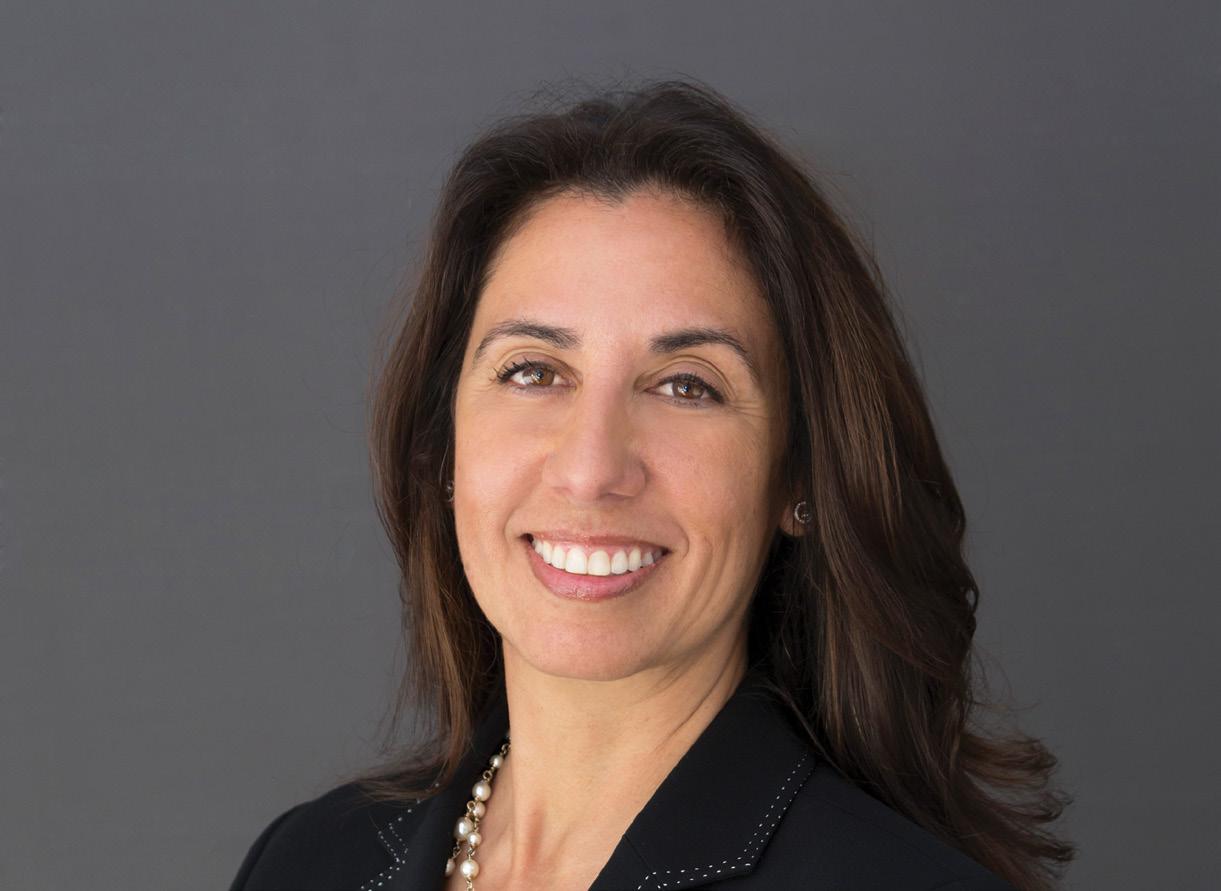
opportunities that may not have been possible otherwise,” she said. “It’s a testament to the power of quality legal education and the impact the University of Miami School of Law has on its graduates.”
As for the endowed scholarship established in her name, Azcuy hopes to foster the development and success of all aspiring law students, especially first-generation college students like her. She shares her vision by saying, “[For those] who demonstrate dedication, passion, and potential in the field of law, [I would like this scholarship] to alleviate some financial burdens... and allow talented and deserving individuals to focus on their studies, participate in extracurricular activities, and engage in internships and externships.”
Further, Azcuy feels that establishing scholarships elevates the University of Miami and the students it serves.
“By offering scholarships,” she said, “the Miami Law program sets itself apart from other top-tier law schools by actively investing in the future of aspiring legal professionals who may face financial constraints. This commitment attracts a more diverse pool of talented students and creates a richer academic experience. Scholarships help cultivate a student body that reflects a broad range of perspectives, backgrounds, and experiences, enhancing the overall learning environment and preparing graduates to excel in a diverse legal landscape. This is perfect for the University of Miami School of Law, where the commitment to inclusivity is ingrained in its ethos.”
Celebrates Anniversary with Goal of Establishing 25 Funds of $25,000
The HOPE (Helping Others Through Pro Bono Efforts) Public Interest Resource Center is celebrating its 25th anniversary with a goal of establishing 25 funds of $25,000 to benefit Miami Law students. The donations will support the HOPE Public Interest and Miami Scholars Fund. Since its inception, HOPE has been dedicated to promoting public interest work and social justice through legal education and advocacy.
Over the past quarter century, HOPE has provided countless opportunities for students to engage in meaningful public service work and gain hands-on experience in the legal field.
Since 1998, the program has provided 132,120 hours of service locally, nationally, and internationally by its 367 HOPE Fellows. Since 2014, 134 Summer Public Interest Fellows have served the South Florida community. Over 350 volunteers started the 2023-24 school year by serving 19 agencies across Miami-Dade County through HOPE Day of Service.
Miami Law students logged 15,000 pro bono hours in 2022-23 and won the MVP Pro Bono Champion Award from
The Florida Bar Foundation’s Pro Bono Law School Challenge in 2020 and 2022.
Assistant Dean Marni Lennon serves as director of the program, one of the few dedicated deans of public interest and pro bono at a U.S. law school.
“It is remarkable to celebrate 25 Years of HOPE, marking generations of students, lawyers, and alumni working together to promote access to justice,” said Lennon. “This anniversary is a testament to Miami Law’s commitment to fostering community and cultivating a pro bono ethic in our graduates and the profession.”
On top of career and course advising to law students interested in social justice and public interest, HOPE also serves as the hub for public interest and community engagement for Miami Law students, offering an array of advocacy initiatives and service opportunities to inspire a new generation of public interest lawyers.
Some of HOPE’s signature programs and projects include the Miami Scholars Public Interest Program, HOPE Fellows Program, Summer Public Interest Fellowship Programs, and the Pro Bono and Community Service Challenges.
Help us reach our goal of establishing 25 GIFTS of $25,000 to benefit Miami Law students. All donations will support the HOPE Public Interest and Miami Scholars Fund.
$25,000*
$10,000+
$500 – $999 to $499 HOPE 25th Anniversary Hero Champion Leader Advocate Visionary Innovator Friend of HOPE
$5,000 – $9,999
$2,500 – $4,999
$1,000 – $2,499

*For gifts over $25,000, please contact Marni Lennon at mlennon@law.miami.edu.
“The editors of our journals work very hard, and their work reflects extremely well on the law school. This financial support and recognition are wonderful.”
The law firm of Sidley Austin LLP recently created a new scholarship at the University of Miami School of Law, the Sidley Austin Endowed Law Review Scholarship.
The scholarship will be awarded annually to the thirdyear student serving as the editor-in-chief at the University of Miami Law Review and the third-year student serving as the editor-in-chief at the Business Law Review
“We appreciate this generous gift from our friends at Sidley Austin,” said David Yellen, former dean and M. Minnette Massey Professor of Law. “The editors of our journals work very hard, and their work reflects extremely well on the law school. This financial support and recognition are wonderful.”
The scholarship aims to support students, to be known as Sidley Scholars, in their law school education by providing the necessary resources to meet their professional goals. The scholarship will strengthen students’ unique voices and continue the advancement of top legal talent at the start of their young careers. Sidley bolsters its commitment to nurturing a dynamic workforce by investing in education and student leaders. The scholarship starts in 2024.
“This is a full circle moment for me—I received my B.A. and J.D. from the University of Miami and served on both law reviews. This is a part of Sidley’s commitment to supporting the future generations of legal leaders and to celebrating our new office,” said Management Committee Chair Yvette Ostolaza. “We will continue to win the talent war by attracting the best talent as a result of our inclusive culture, elite client service, and our dedication to being ‘Built to Win.’”
The announcement came on the heels of Sidley’s anniversary of the opening of Sidley’s office in South Florida. The Miami office has over 40 lawyers and boasts 17 graduates from the University of Miami School of Law, with an additional 10 lawyers who graduated from the University of Miami with undergraduate degrees.
“The creation of this scholarship is a reflection of our values, as well as a pledge to the Miami community that has so graciously welcomed us in Florida,” said Beatriz Azcuy, co-managing partner of Sidley’s new Miami office. “My time at the University of Miami and serving on the law review created the strong foundation on which I built my career. I’m excited for the future students who will benefit from this gift.”
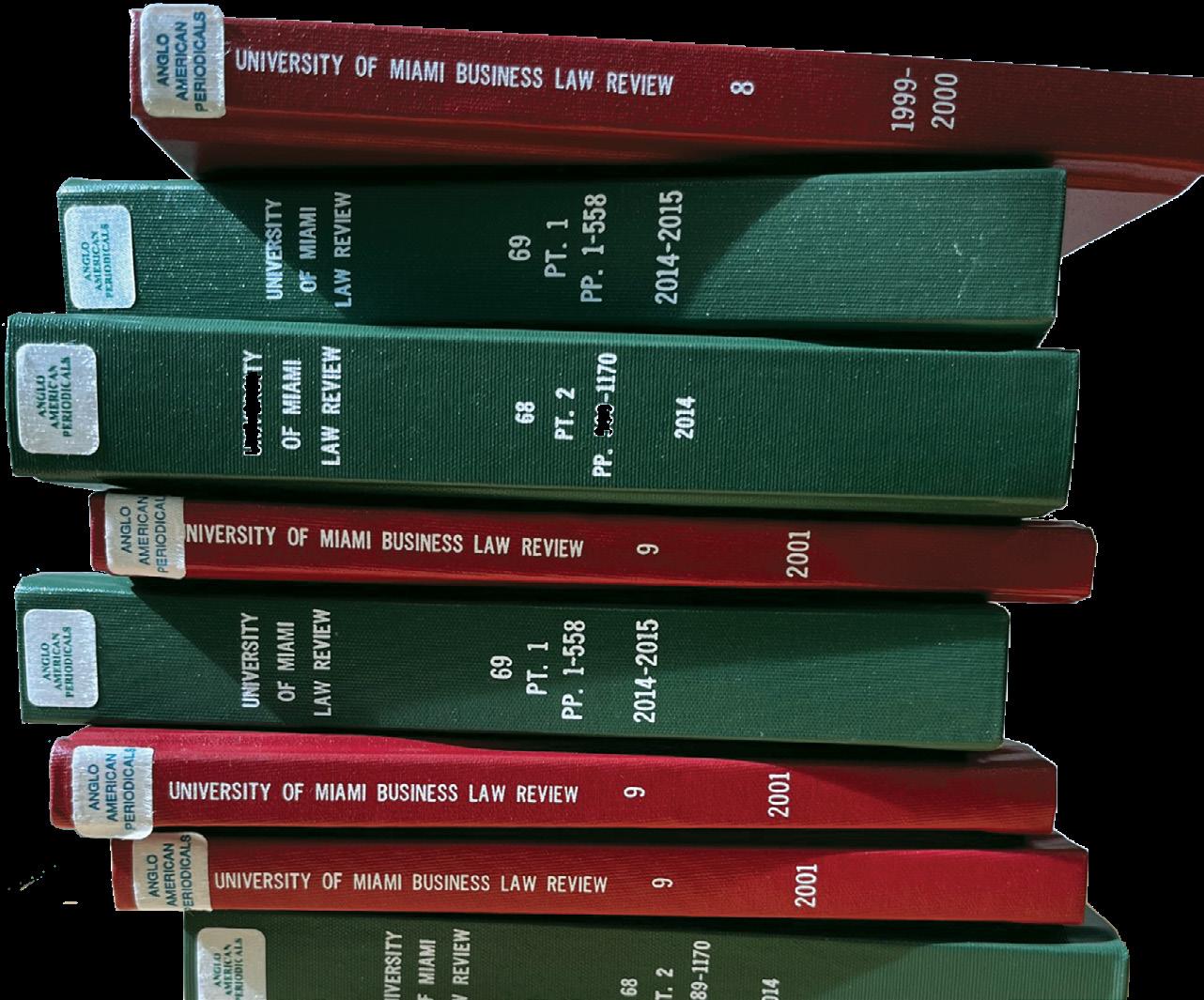
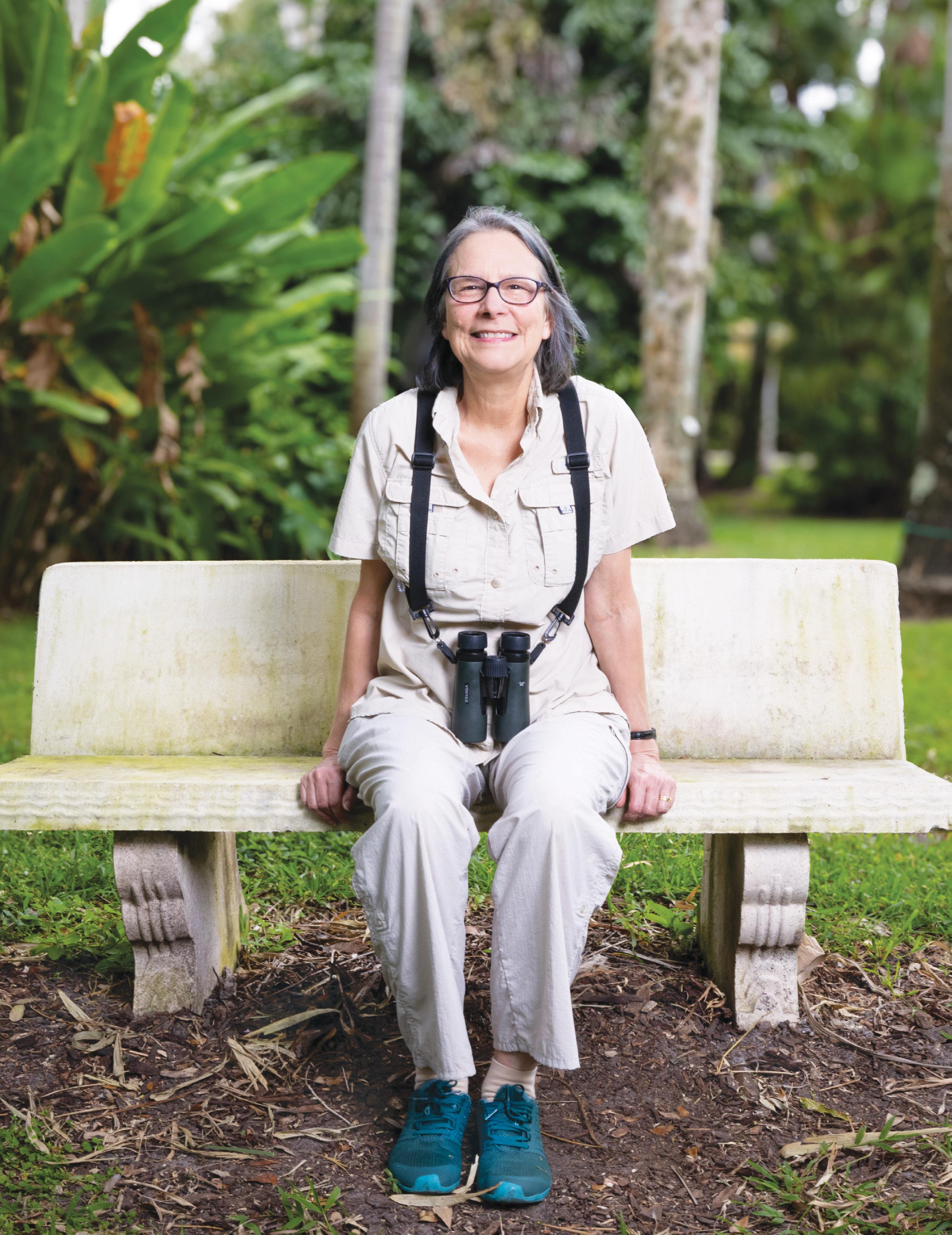 By Catharine Skipp
By Catharine Skipp
A still and warm morning breaks over South Florida under robin’s egg-blue skies. Traffic hums in the distance, but the sky above A.D. “Doug” Barnes Park is alive with bird song. More than a dozen women—30-somethings to boomers, clad in the colors of the woodlands, gather in a circle of folding chairs, faces upturned.
Among the group of all-female birders is Professor Donna Coker, a nationally recognized scholar on intimate partner violence and restorative justice but known in the bird group as an avid spotter of flight and feather.
Coker has been birdwatching on and off for a couple of decades, though the professor confesses that recently, she

“I love that birding gets me outdoors and I find birds endlessly fascinating, but what I love about birding— that is, the viewing and identifying of birds— is that it requires intense focus.”
has been more off. “And when off, my skills go downhill fast.” Nevertheless, she has spotted and identified dozens of birds as the park sits on the migratory route of many birds.
She is one of the rarified birders who has experienced the March migration stop of roughly 1 million sandhill cranes along the Platte River in Nebraska.
“I love that birding gets me outdoors, and I find birds endlessly fascinating, but what I love about birding—that is, the viewing and identifying of birds—is that it requires intense focus,” said Coker. “You need to pay attention to your location, time of year; you must pay attention to bird behavior, size, and calls. It’s that pay attention quality that makes it so rewarding.”
Coker grew up in a college town in Searcy, Arkansas, where her dad was a minister and the dean of the education department at Harding University. Her mother was a schoolteacher and later taught in the curriculum lab in Harding’s education department. Growing up with three sisters and a brother, much of their lives were university—and churchcentric.
Coker considered several career paths as she was finishing high school: journalism, “this was the era when Barbara Walters was a thing, and I was really interested in people and ideas,” she said. “And writing was a way to have an influence on the world.
“But also, this was coming up at the tail end of the war on poverty. Before we moved to the city, I had seen rural poverty. My parents instilled in me the importance of helping people. Plus, I was a voracious reader of news magazines, and they were really focusing on community organizing, the problems of the inner-city, and low-income communities,” she said. “This was also a time when the women’s movement was becoming prominent.”
She ended up getting a bachelor’s and master’s degrees in social work from Harding and the University of Arkansas at Little Rock, which would yield her first up-close and personal experience with what would guide her career and scholarship. It would also lead to her future husband, Tom Dukowitz.
“I ended up doing a practicum at a newly opened shelter for battered women in Little Rock,” she says. “I saw this as an opportunity to be involved in furthering women’s equality.”
A fortuitous downpour took Coker to deliver an umbrella
to her roommate, who had a temp job at the University of Arkansas Medical School. Coker crossed paths with a cute med student who was getting drenched. Now, two kids and half a dozen moves later, it’s still a rom-com movie in the making.
One of those moves led Coker to don the binoculars and add birder to her life story, leading to the million-crane moment.
Med school Tom became Dr. Tom, then Navy Lieutenant Commander Tom, and Coker started using her social work degrees in what was called at the time “the battered women’s movement.” She would stay in the field for 11 years, working in shelters and community organizations in Little Rock and then Honolulu, where Dukowitz was stationed.
As Dukowitz was finishing his naval career in northern California, Coker headed to Stanford Law, followed by a turn at a prestigious San Francisco firm doing litigation.
“After two years, I quit the firm, and I started teaching at Stanford and Santa Clara Law Schools. I was also doing lobbying work with the California state legislature for the California Coalition Against Domestic Violence. I always knew that I wanted to be an academic. Before I left the firm, I published an article and prepared to enter the academic marketplace.”
Miami Law came calling, and for a while, Coker was in Miami with her youngest, Jacob, and Dukowitz was in Palo Alto with their oldest, Zachary. Eventually, everyone ended up in Miami, and Miami Law became her home.
After her stint as associate dean, Coker took off a year. Dukowitz had transitioned from medicine to art. The couple moved to Southern Pines, North Carolina, where Dukowitz studied at the Academy of Classical Design.
“Birding was big, big, big there, and we became good friends with a couple who were both ornithologists,” she said. “They had been studying the red-cockaded woodpecker for years. And we joined a naturalist’s society.”
From there, she was hooked. A wedding anniversary celebration led Coker and Dukowitz to “the coolest birding experience ever”—the Nebraska flatlands to watch the great sandhill crane migration.
“You are out before the sun comes up, and you are surrounded by thousands of these sandhill cranes just waking up,” she says. “They make a very loud honking sound. It’s the most spectacular thing ever.”
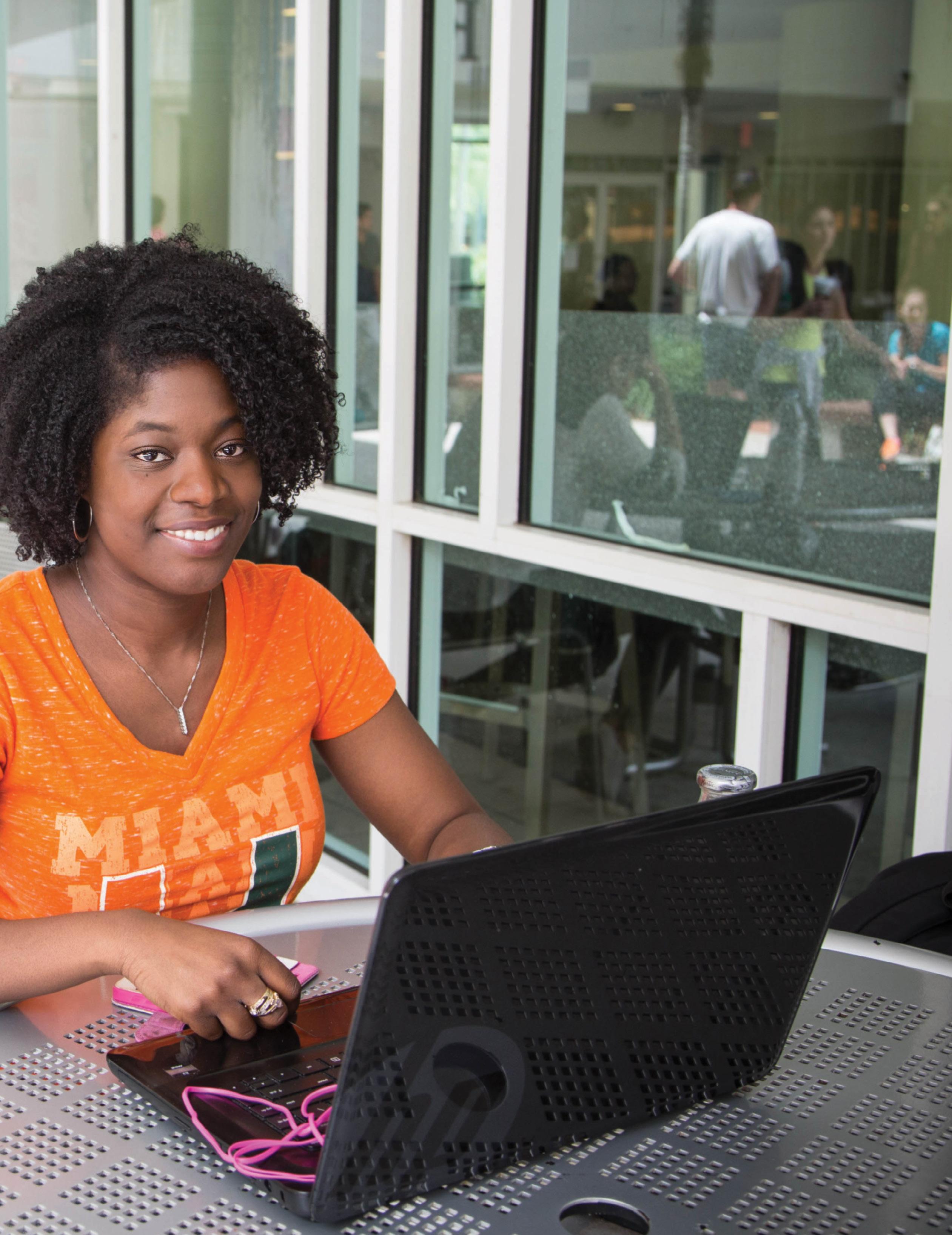
For nearly 100 years, philanthropy has inspired extraordinary achievements at the University of Miami School of Law—from providing essential funding for student scholarships to legal training through clinics and externships. With the right planned gift to the School of Law, you can protect yourself and your loved ones while taking advantage of tax and income benefits. Join us to transform lives today and for generations to come.
• Name the U in your will, codicil, or revocable trust
• Designate the U as a full or partial beneficiary of your retirement account (e.g., IRA 401 (k), 403 (b))
• Designate the U as a beneficiary of your Iife insurance policy
For more information on how you can leave a legacy at the School of Law, contact Kyle Paige, executive director, Office of Estate and Gift Planning, at 305-284-2914 or kpaige@miami.edu, or visit us at miami.edu/plannedgiving.
